CHANGE
Charting Your Future in a Shifting Legal Landscape

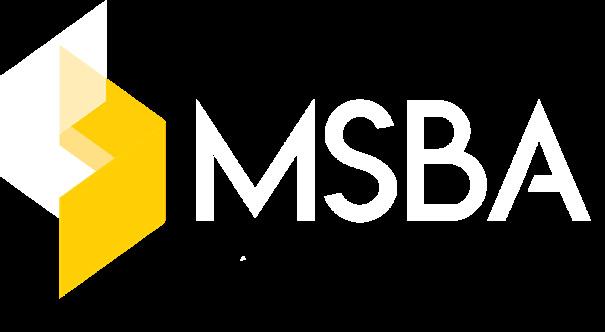

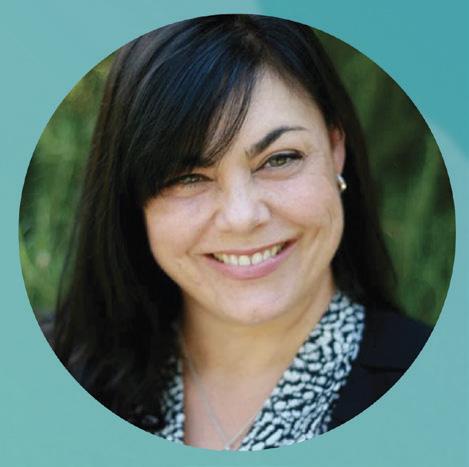



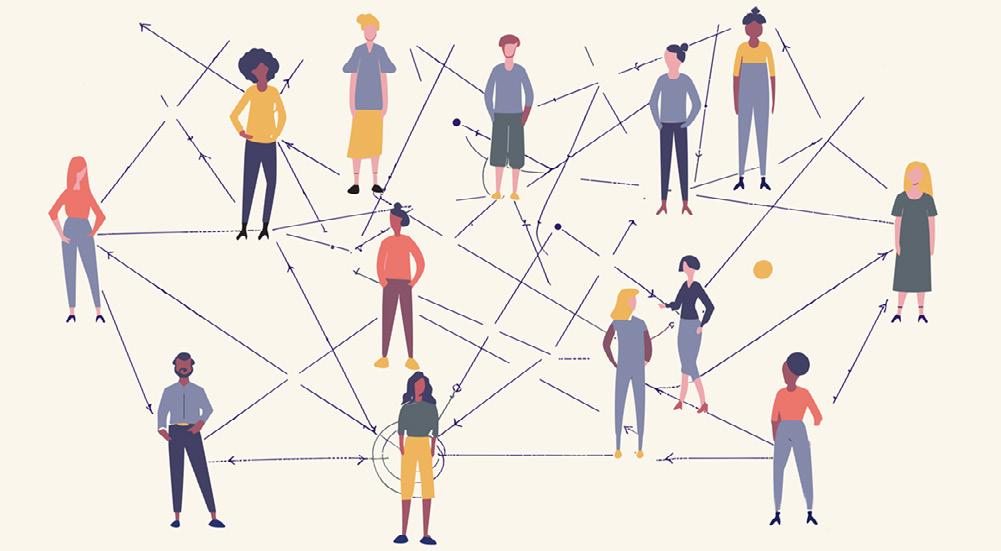


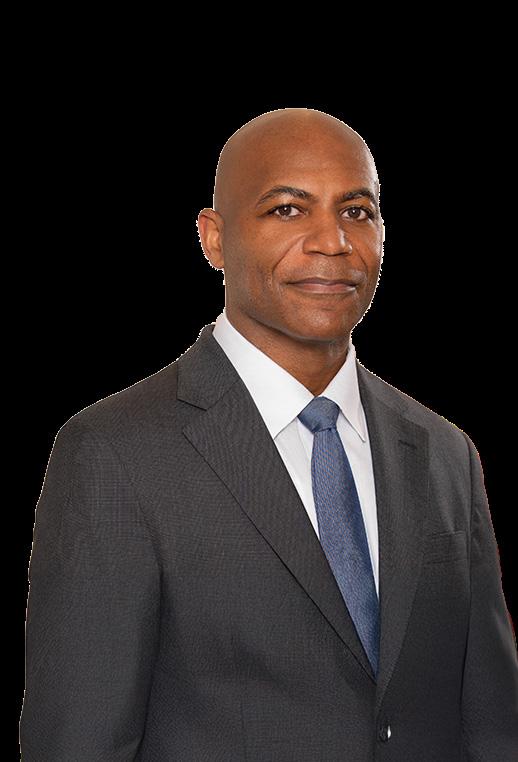
4 President's Message 6 2025 Legal Summit
12 2024-2025 Bar Year Award Recipients
14 The Honorable Anselm Sodaro Judicial Civility Award
15 Edward J. Gilliss Community Service Award
16 100% Law Firms
17 2024-2025 Sustaining Members
18 Young Lawyers Section Charity Event
42 MSBA Leadership Academy Fellows Launch "EmpowerED" Podcast
45 Maryland Bar Foundation Grant Recipient
47 Fireside Chat: Tisha Edwards
63 Fireside Chat: Maryland Attorney General Anthony Brown
123 Staff Profile: Pamela Langham
124 Executive Director's Message: Strategic Path Forward for FY26
INSIDE ANNAPOLIS
40 2025 Legislative Recap: MSBA Again Defeats a Tax on Services and Promotes Security for the Profession
HEALTH AND WELLNESS
100 What Do You Really Have Control Over? Understanding Circle of Concern vs. Circle of Control
CAREER HIGHLIGHTS
70 Ava Lias-Booker
72 Judge Mark Scurti
74 Erek L. Barron
ACCESS TO JUSTICE
49 Maryland Access to Justice Commission’s New Strategic Vision
57 Bridging the Justice Gap: The Vital Role of Volunteers in Increasing Access to Justice in Maryland
65 ACE Funding in Maryland: Protecting Housing Stability
Publication Date: Summer 2025
Published quarterly by the Maryland State Bar Association, Inc.
520 W. Fayette St. Baltimore, Maryland 21201
Telephone: (410) 685-7878 (800) 492-1964 Website: www.msba.org
Executive Director: Anna Sholl
Chief Content Officer: Patricia Stockland
Managing Editor: Colleen Aracri
Advertising Sales: Association Media Group
Subscriptions: MSBA Members receive the digital edition of the Maryland Bar Journal as part of their annual membership. In addition, MSBA Members can opt to receive paper copies of the Maryland Bar Journal for an annual subscription cost of $10.
POSTMASTER: Send address change to THE MARYLAND BAR JOURNAL
520 W. Fayette St. Baltimore, MD 21201
The Maryland Bar Journal welcomes articles on topics of interest to Maryland attorneys. Proposed articles can be submitted through the MSBA website at msba.org/content-portal
Advertising: Advertising rates will be furnished upon request. All advertising is subject to approval by the Editorial Advisory Board.
Association Media Group 901 34th Avenue North, Suite 7064 St. Petersburg, FL 33734
Chad Slager Operations and Technology cslager@associationmediagroup.com
Member Content Committee
Corinne M. Pouliquen, Esq., Co-Chair Jessica Markham, Esq., Co-Chair
MSBA Officers (2025-2026)
President: Marisa Trasatti
President Elect: Natasha Dartigue
Secretary: Randolph Stuart Sergent
Treasurer: Natasha Marina Nazareth
Photography: Profile photographs provided by Travis Marshall Photography unless otherwise noted.
All writing submitted to the Maryland Bar Journal must be wholly original to the Author, not generated in whole or in part by generative artificial intelligence tools, and reflect the Author’s own independent analysis and judgment. The use of AI-assisted tools limited to grammar, spelling, or formatting is permitted, provided they do not contribute substantive content.
Statements or opinions expressed herein are those of the authors and do not necessarily reflect those of the Maryland State Bar Association, its officers, Board of Governors, the Editorial Board or staff. Publishing an advertisement does not imply endorsement of any product or service offered.
MEMBER CONTENT COMMITTEE (2025-26 BAR YEAR)

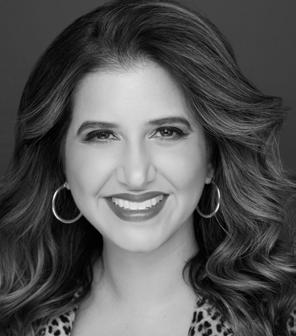





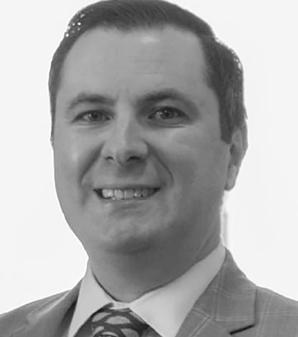
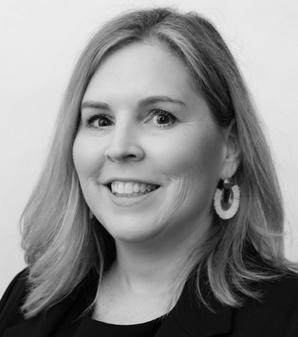

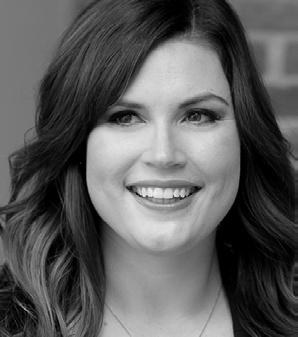
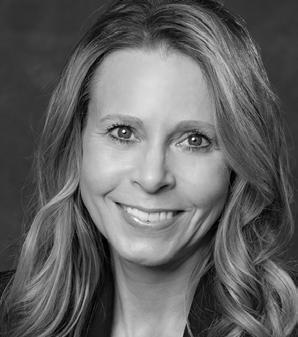
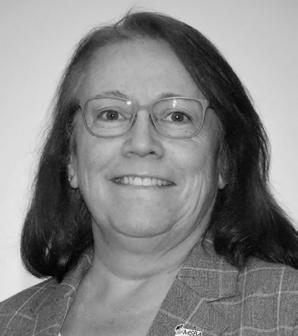
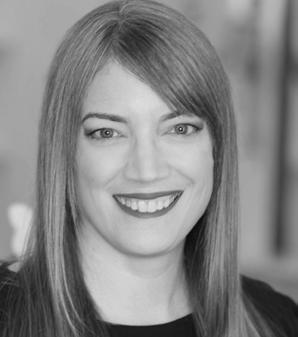
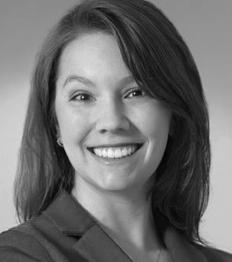



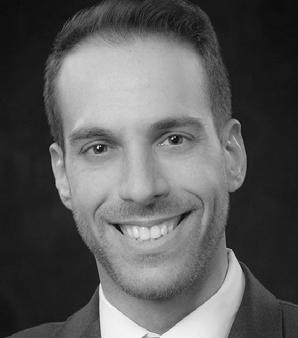
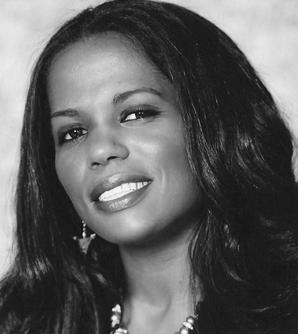

EDITOR'S NOTE:
The editorial staff of the Maryland Bar Journal wishes to acknowledge and sincerely apologize for two errors that appeared in Volume 6, Issue 3, published in Spring 2025.
In the article titled "Mental Illness and the Capacity to Parent Under Maryland Law," an incorrect photograph was used to identify Brittany Nwadike. We deeply regret this error and any inconvenience or distress it may have caused Ms. Nwadike and our readership. We are committed to ensuring accurate representation in our publication.
Additionally, in the article "Balancing the Scales: How Law Firms Can Support Attorney Caregivers," one of the author's names was misspelled. "Thomas Adrien" should have been correctly identified as "Thomas Adrian." We apologize to Mr. Adrian for this oversight.
MSBA is dedicated to producing a high-quality publication that provides timely and accurate information to our members. We take these errors seriously and are reviewing our internal processes to prevent similar occurrences in the future. We appreciate our readers' understanding and continued support as we strive to uphold the standards of journalistic integrity and professional excellence.
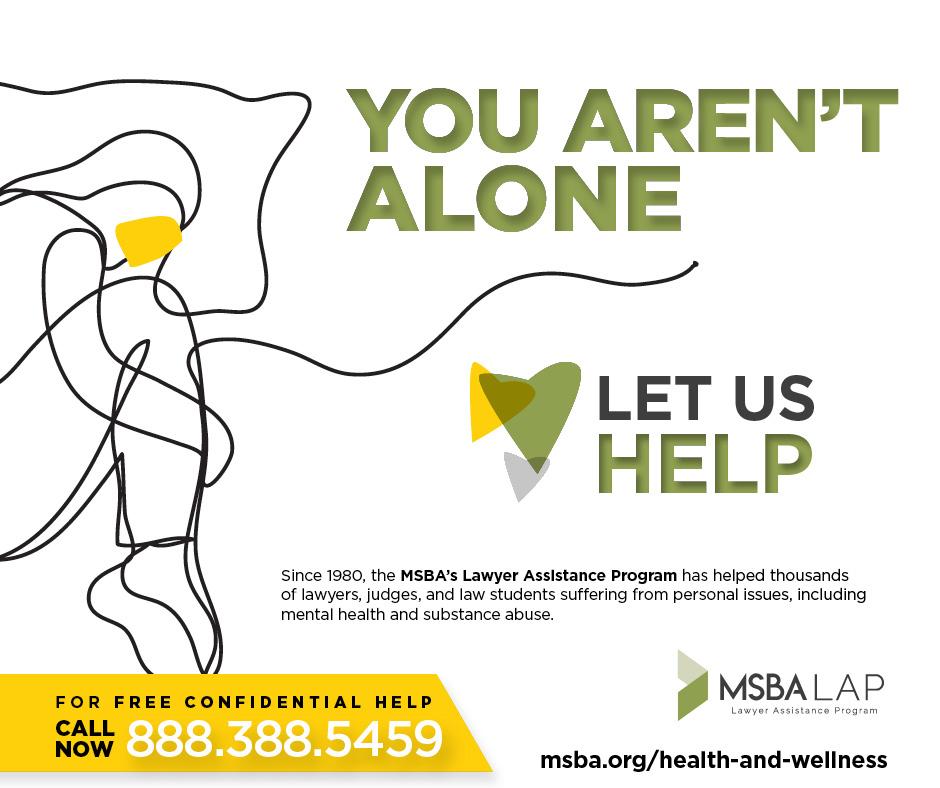
NAVIGATING CHANGE
102 Steering the Future: Navigating Change in Maryland's Offshore Wind Energy Development
108 Just Keep Swimming: Navigating Transition During Uncertain Times
112 Navigating Change: Maryland Attorneys on Adapting to a Shifting Legal Landscape
116 MSBA Resources for Attorneys Experiencing Career Transitions
ETHICS
122 Ethics Docket: Providing Legal Services Through Accounting Firms with Non-Attorney Ownership
ARTIFICIAL INTELLIGENCE UPDATES
31 AI vs. Attorneys: Insights from the Vals’ Legal AI Report
FOR YOUR PRACTICE
20 Hiding in Plain Sight: Cybercriminals Take Advantage of U.S. Cloud Providers
24 2025 Legislation Impacting Employers Throughout the State
38 How to Generate Referrals as a Young Lawyer (Even If You Aren’t a Partner)
53 Can Maryland Revolutionize the Office of Public Defenders with Social Workers as Legal Paraprofessionals?
78 My Honor
83 The Mask of Success: When Professionals Live with Abuse
90 Best Practices for Working with a Headhunter
93 "Earned Upon Receipt" for Attorney Fee Arrangements Ended in Maryland Effective July 2025
97 Proper Ways to Leave Your Law Firm
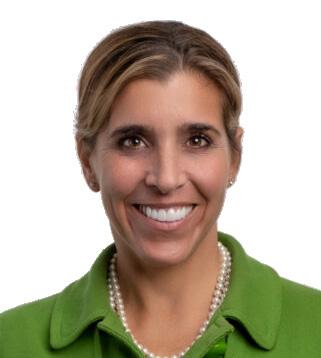
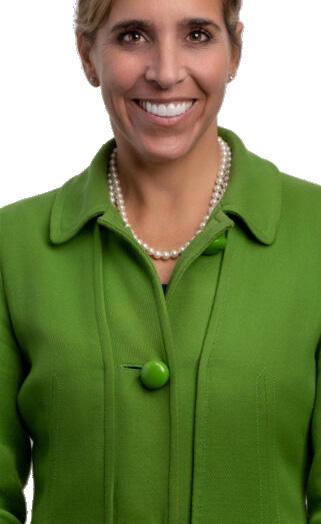
I am honored to lead MSBA into its next chapter. I hope to inspire all of you to work collectively with us and give your best this Bar Year, which began on July 1, so that together we can achieve the initiatives I outlined at my induction.
I. PROMOTING THE RULE OF LAW
In these challenging times, our commitment to upholding the rule of law is more crucial than ever. We, as lawyers, are the guardians of our liberties. We will, therefore, launch a statewide town hall discussion to educate the public on the importance of an independent judiciary and the role of lawyers in safeguarding democratic principles. We must defend judges at all times from partisan political or personal attacks. There is no greater or more honorable profession than being a lawyer or judge, and both deserve the highest respect. We can’t have a strong democracy without a strong independent judiciary and well-trained lawyer advocates.
My Initiatives for the 2025-2026 Bar Year
II. CIVILITY AND LEADERSHIP PROGRAMS
As leaders in our communities, we must teach others to respect one another’s ideas and feelings. We don’t have to agree with everything someone says or does, but we should respect and defend their right to express these views. We will launch initiatives to promote civility in the legal profession and develop the next generation of legal leaders. These programs will focus on ethical practice, professional courtesy, and effective communication.
III. STRATEGIC PLANNING SESSION
To chart the MSBA’s course for the future, we will convene a Strategic Planning Session, bringing together diverse voices from across our membership to define our priorities and goals for the next five years. The Strategic Planning Session will include these three items:
A. Attracting Corporate Counsel & Large Firm Attorneys
To strengthen our association, we will focus on engaging corporate counsel and attorneys from large firms. Their point of view has often been overlooked. We will create tailored programs and networking opportunities to address the unique challenges faced by in-house lawyers and large firm attorneys, fostering a more inclusive MSBA and one that reflects our lawyer population in Maryland.
B. MSBA as Maryland’s Premier CLE Provider
Continuing legal education is the cornerstone of professional excellence. We must make sure that all of our members have the necessary tools for a successful and effective practice. We will expand our CLE offerings, leveraging both in-person and virtual platforms to provide accessible, cutting-edge training for all attorneys who practice in Maryland.
C. Embracing Legal Technology
There is no greater challenge today than the advancement of technology in all phases of our lives, including within the legal profession. MSBA’s Artificial Intelligence Taskforce has been doing tremendous work for over a year now, including publishing An Overview of Ethical Considerations for Attorney Use of Generative Artificial Intelligence Technologies so that our members are aware of the ethical concerns of AI.
We will be expanding the scope of the AI Task Force’s work and renaming it the Legal Technology Task Force. It will identify new and emerging technology and, through articles and programming, educate our members on its use and how it will make their practices more efficient and effective. We will also seek to work with the judiciary to ensure that all courtrooms are equipped with the latest technology. The practice of law is constantly changing, and we want to make sure that the MSBA is a leader in educating our members so that they are prepared to adjust and embrace each change.
There’s a lot going on in our state, in our organization, and in the world, so we have a lot to do this year. As we embark on this journey together, let us remember that our strength lies in our unity and our shared commitment to justice. The MSBA has a proud 129-year history of connecting and empowering Maryland's legal community. Together, we will build on this legacy, ensuring that our association remains a beacon of excellence, innovation, and integrity in the legal profession. I look forward to serving you and working alongside each of you in the year ahead.

Marisa A. Trasatti, President
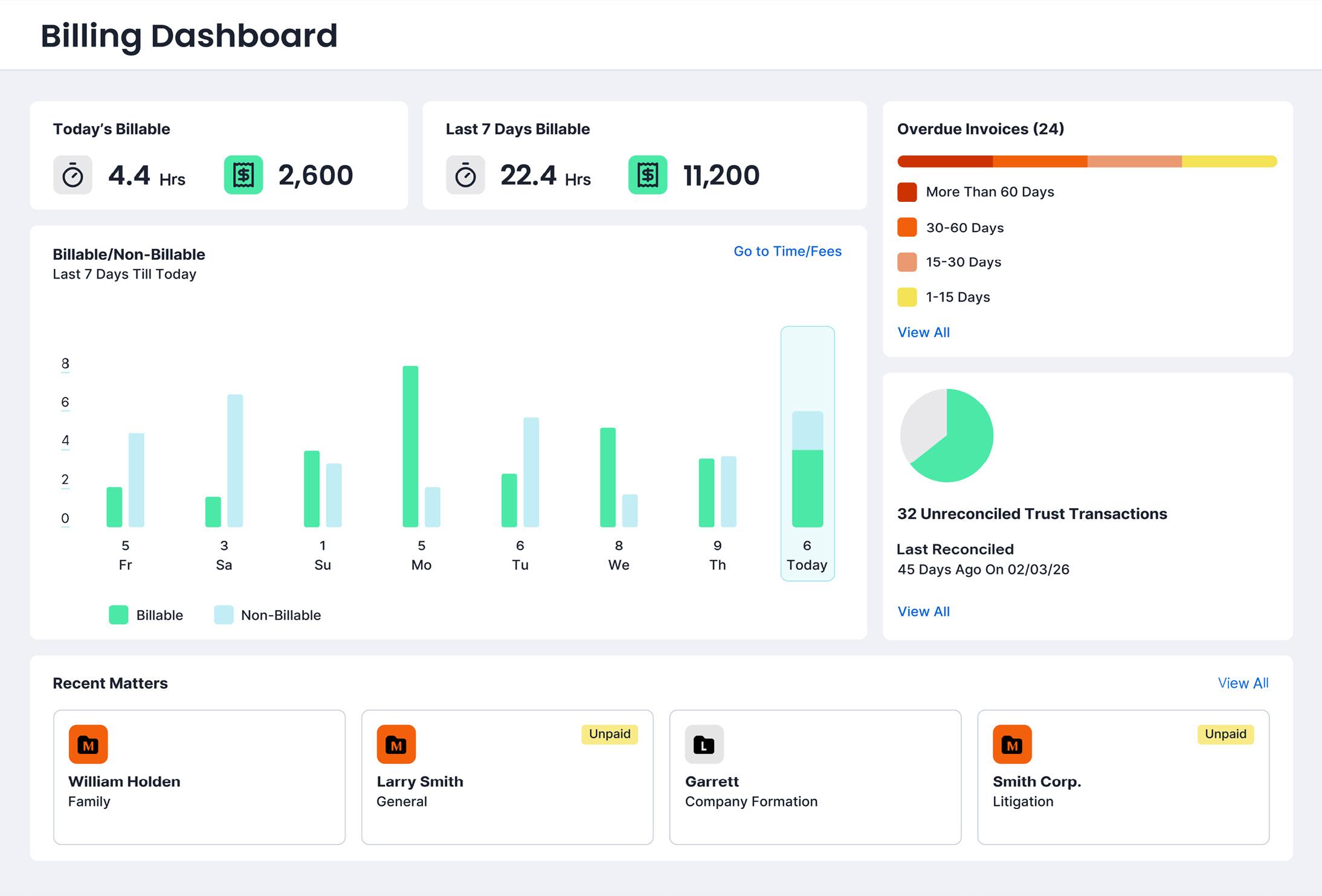
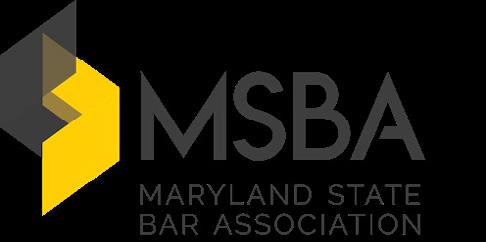




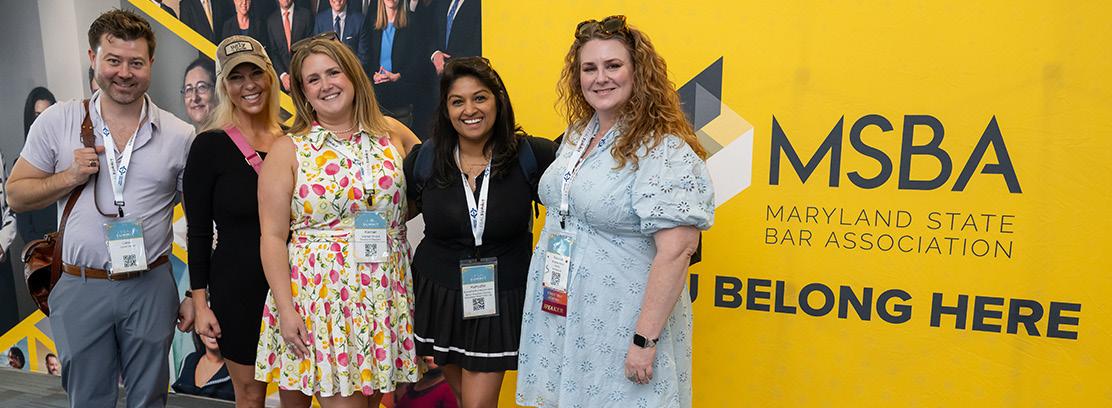

MSBA's 2025 Legal Summit & Annual Meeting was an unforgettable threeday experience in Ocean City, packed with unparalleled learning, ample opportunity for networking, and exciting social events for Maryland's legal community. This year marked 30 years of MSBA offering programs and events designed to elevate practices and expand horizons for legal professionals across the state.
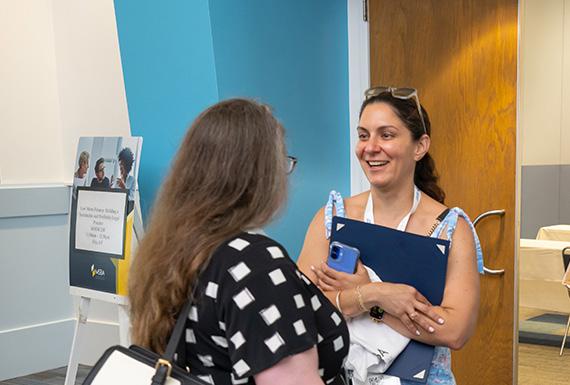
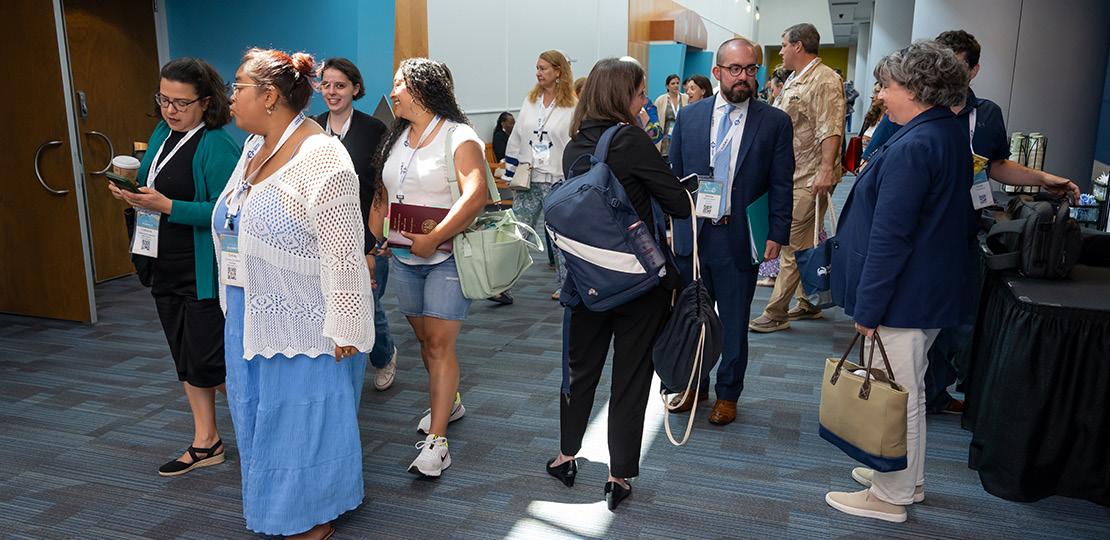
Connecting Learning Community
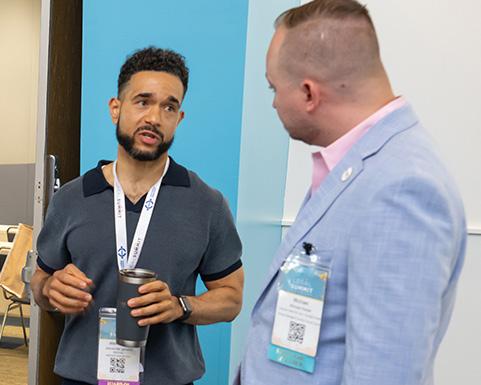
CULTIVATING CONNECTION
The Legal Summit was a hub for connection, bringing together over 1000 legal professionals from every segment and career stage. From the lively Welcome Happy Hour and "Juris-tunes" Karaoke to the sophisticated President's Reception, attendees forged new relationships and strengthened existing ones.


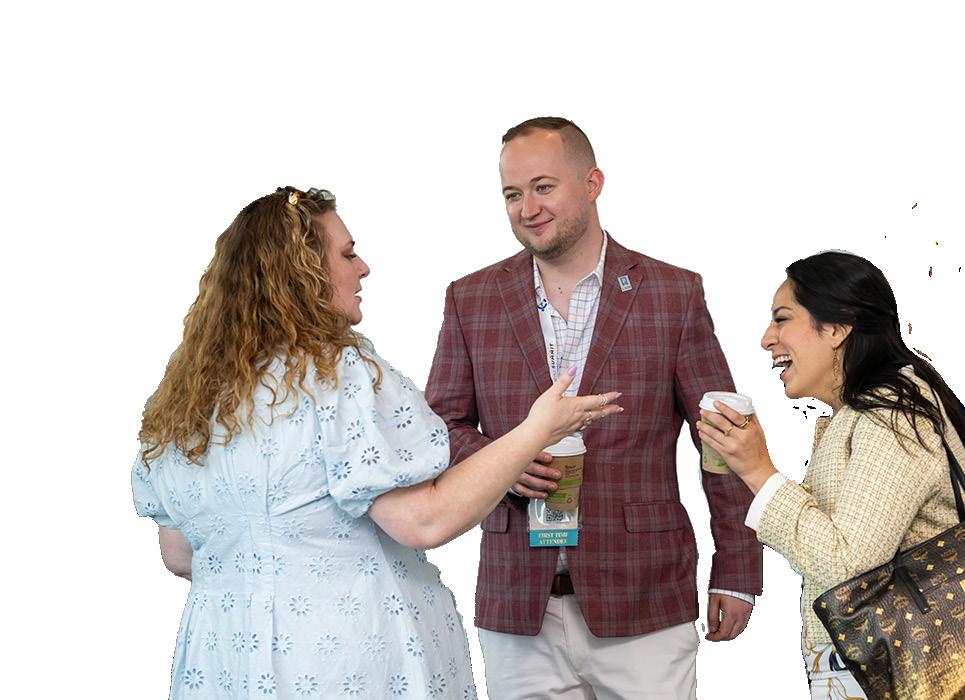


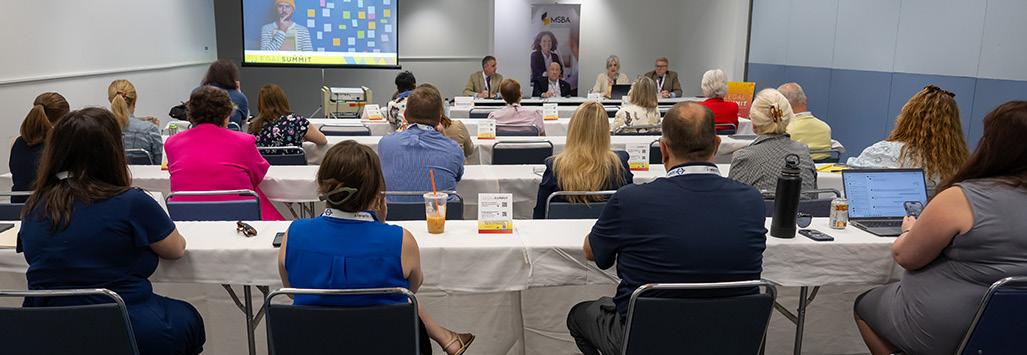


UNPARALLELED LEARNING
Attendees took advantage of a wide range of learning opportunities, including 70 accredited CLE programs. Throughout the Legal Summit, notable speakers like Attorney General Anthony Brown and Tisha Edwards shared invaluable insights, helping Maryland attorneys stay ahead in their field.
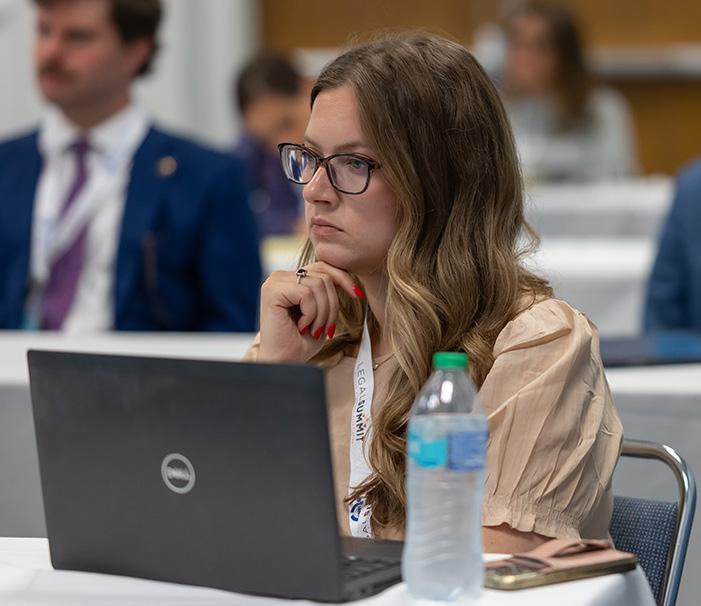
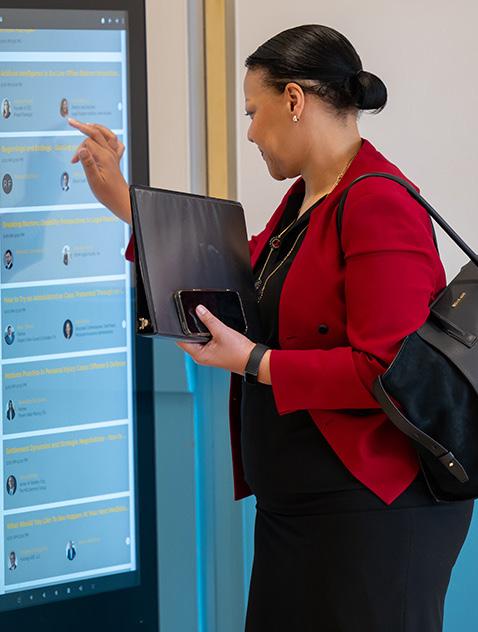

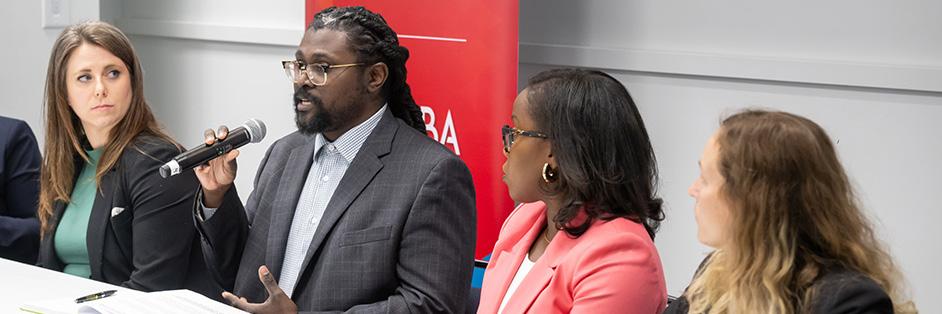
Connecting Learning Community



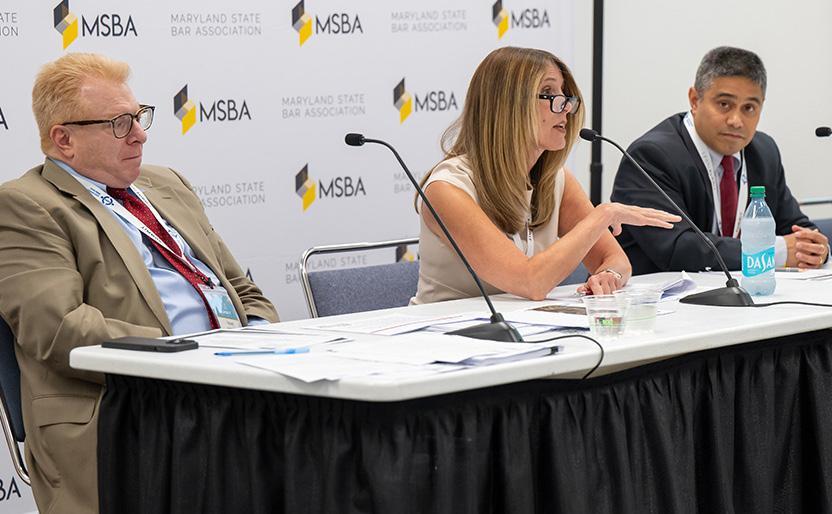



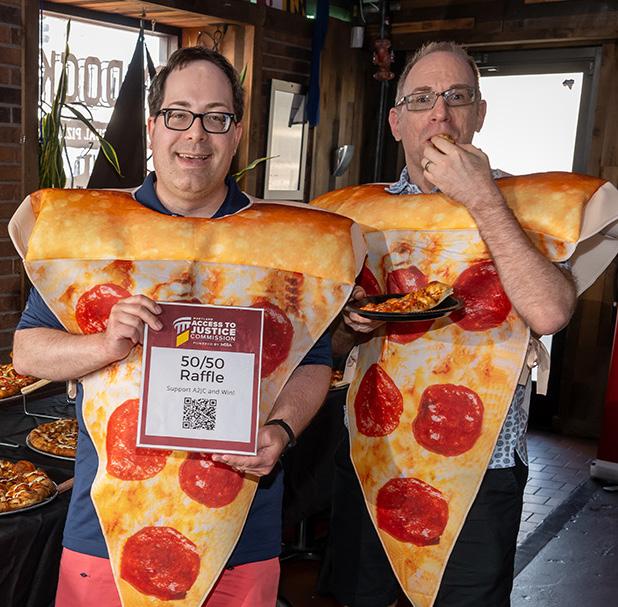

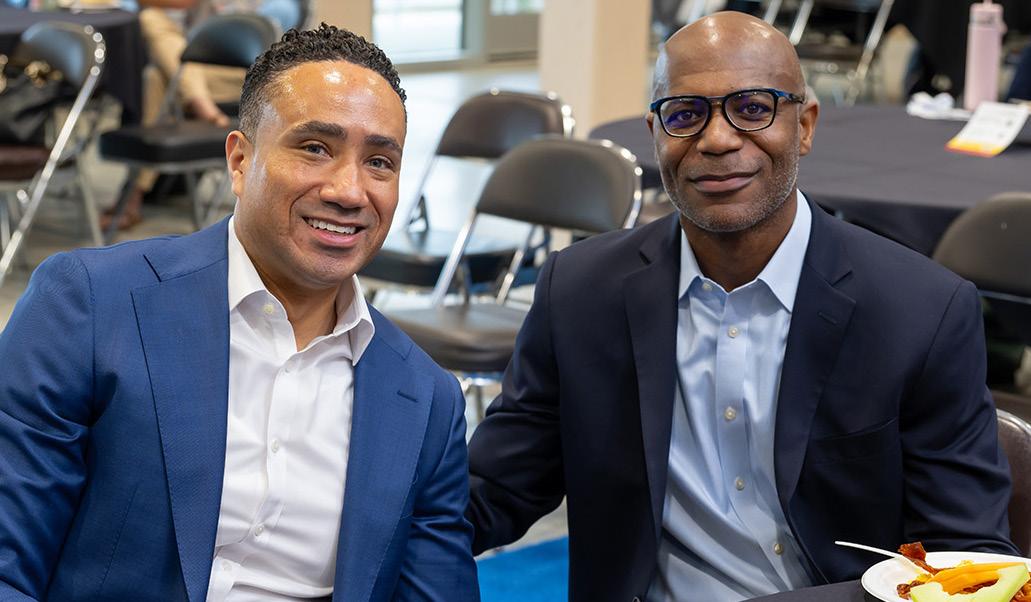

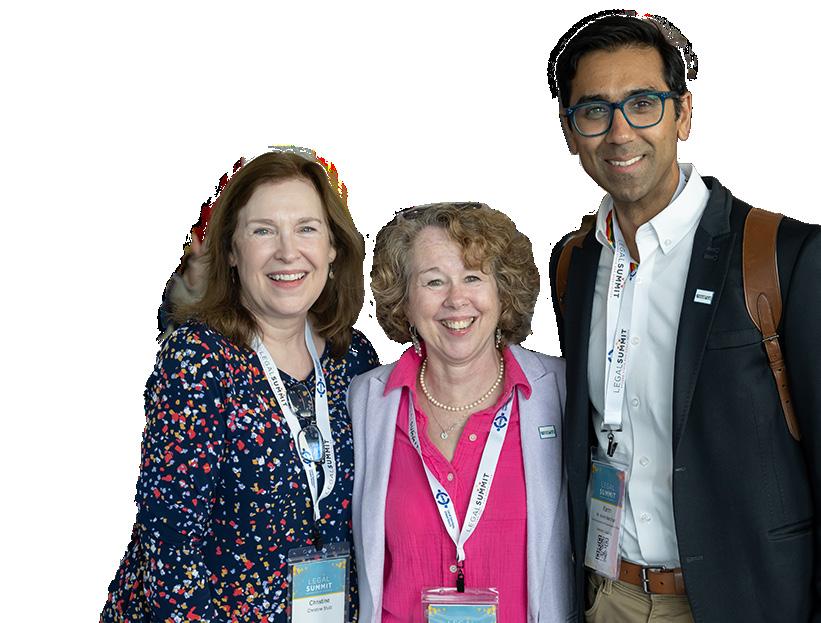
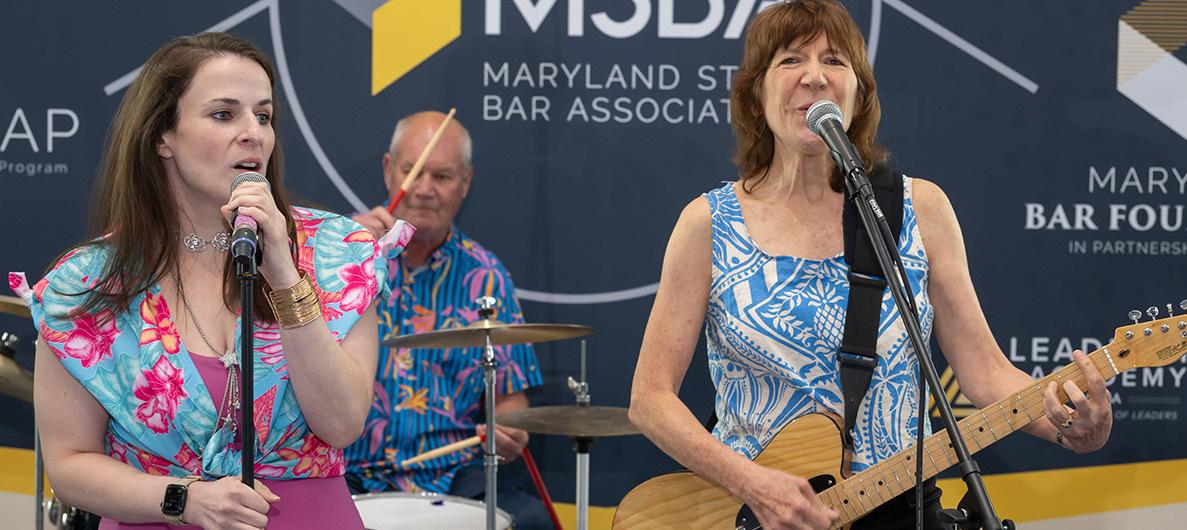
Connecting Learning Community

BUILDING COMMUNITY
The Legal Summit fostered a strong sense of community. MSBA offered attendees opportunities to honor pro bono service, induct new Maryland Bar Foundation fellows, and engage in vital discussions about advancing legal accessibility and an equitable justice system.


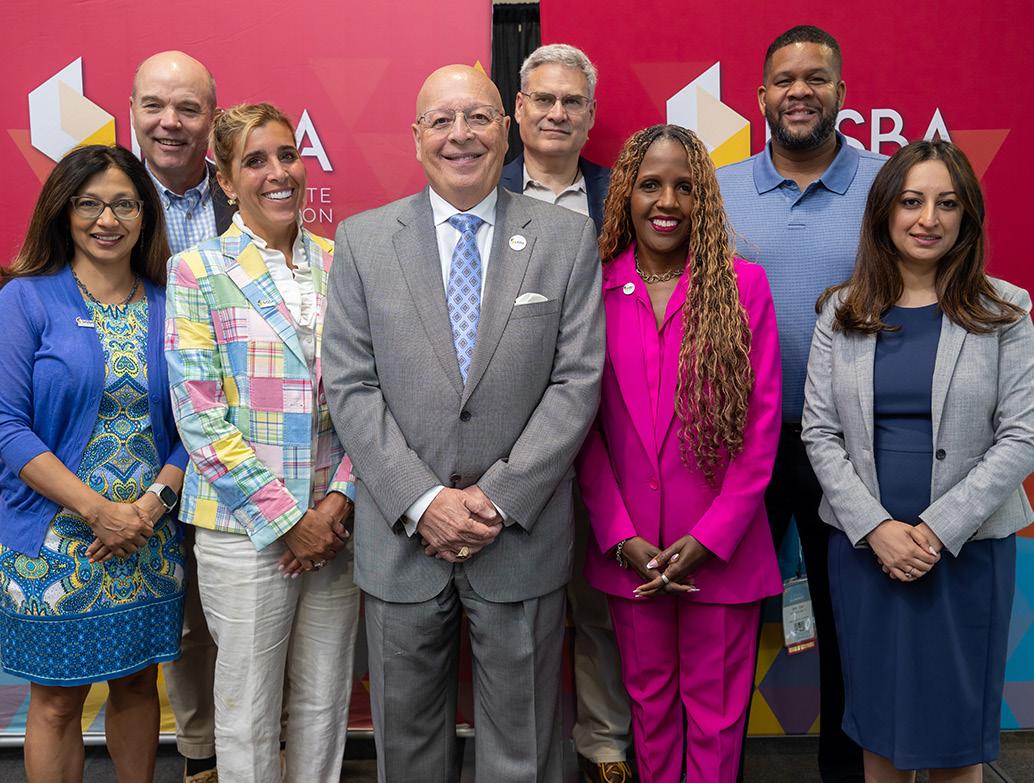
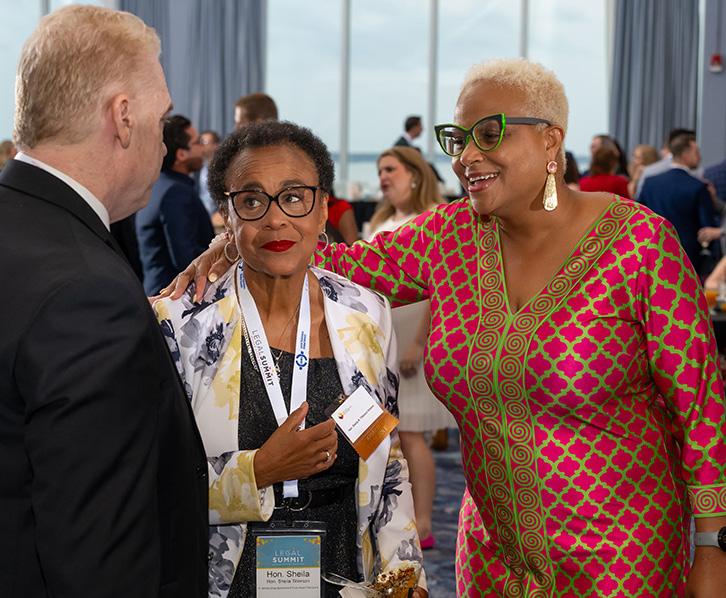
2024-25 Bar Year Award Recipients
Litigation Law Section
Presidential Best Section Project Award to Benefit the Membership: "Home Court Practice"
PRESIDENTIAL AWARDS SECTION AWARDS
Leanne F. Broyles, Esq.
Presidential Outstanding Service Award
Honorable James R. Eyler
Chief Judge Robert M. Bell Award
ALTERNATIVE DISPUTE RESOLUTION
A. Howard Metro, Esq.
James Hanks Lifetime Achievement Award BUSINESS LAW
Gregory C. Deyesu
Mandell Scholarship Award BUSINESS LAW
Brian A. Tucci, Esq.
The Alan J. Belsky Award
CONSUMER BANKRUPTCY SECTION
Joshua R. Treem, Esq.
The Robert C. Heeney Award
CRIMINAL LAW & PRACTICE SECTION
Paul S. Caiola, Esq.
Litigator of the Year
LITIGATION SECTION
MSBA thanks and congratulates our outstanding 2024-2025 bar year award recipients. These dedicated volunteers exemplify exceptional service and commitment to advancing the Maryland legal community.
David S. Dejong, Esq.
Tax Excellence Award
TAXATION LAW SECTION
Hon. Sidney A. Butcher
LITIGATION SECTION
Heather L. Posey, Esq.
The J. Ronald Shiff Memorial Pro Bono Award
TAXATION LAW SECTION
Hugh B. McClean, Esq.
Brigadier General Philip Sherman Award
VETERANS' AFFAIRS & MILITARY LAW SECTION
Raelyn J. Schuh, Esq.
Rising Star Award
YOUNG LAWYERS SECTION
Chris S. Jennison, Esq.
Melody Tagliaferri Cronin Award
YOUNG LAWYERS SECTION
Sen. Shelly L. Hettleman
Access to Justice Leadership Award A2J SECTION
MSBA Honors Commitments to Judicial Civility and Community Service
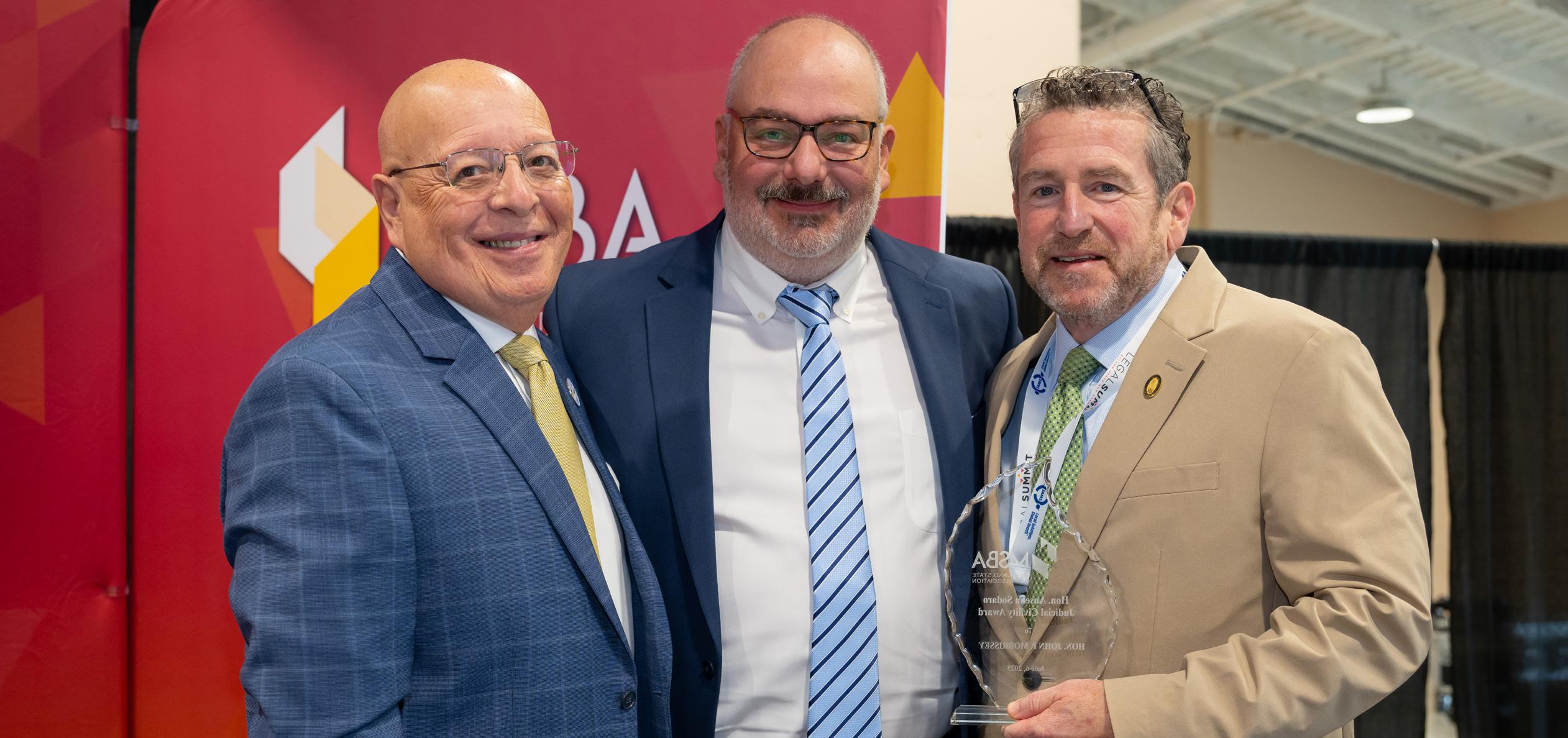
The Honorable Anselm Sodaro Judicial Civility Award
THE HONORABLE ANSELM SODARO JUDICIAL CIVILITY AWARD is presented annually to a sitting judge of the district, circuit or appellate courts of Maryland who demonstrates exceptional judicial temperament, civility, and courtesy to attorneys, litigants, and others.
Judge Sodaro stated that courtrooms should be ‘inviting’ to attorneys and litigants. Judge Sodaro believed that while judges must maintain order and control of the courtroom, they should do so in a manner that does not demean or embarrass attorneys, litigants, jurors, or witnesses. He noted that lawyers always sought judges who provided a ‘level playing field.’ Judge Sodaro made it a practice to compliment attorneys and litigants and to recognize in open court the efforts of both sides in presenting difficult cases. This award seeks to honor judges with similar qualities.

The recipient of the 2024-25 Sodaro Judicial Civility Award was the Honorable John Morrissey. Chief Judge Morrissey has guided the District Court through trying times, including the implementation of MDEC, the COVID crisis, and rising threats to judges, courts, and courthouse staff. He has done so with a positive attitude and willingness to engage with attorneys, judges, staff, and the general public. His tradition of taking every new District Court judge to lunch has resulted in a kinder, more approachable District Court.
Edward J. Gilliss Community Service Award
THIS YEAR, THE MSBA BOARD OF Governors created the Edward J. Gilliss Community Service Award, to honor the late Gilliss's extraordinary commitment to civic engagement. The MSBA is a grateful beneficiary of much of Gilliss’s volunteer time and expertise over the years, including his leadership as a past president, and proudly created this award as an enduring remembrance.
This annual award will be presented to an MSBA member who embodies the same spirit of dedication to community service that Gilliss exemplified.
The inaugural recipient of the Edward J. Gilliss Community Service Award was David Shapiro. Shapiro’s commitment to the MSBA is unquestionable, having served as Past President and Past Chair of the Business Law Section. In service to the MSBA, Shapiro has chaired several important efforts, including the Executive Director Search Committee following Victor Velazquez’s resignation in October 2022, MSBA’s first ever Board of Governors nominating committee, and MSBA’s Spark Series program focused on promoting attorneys’ role in preserving the rule of law, which he co-chaired with Donna Hill Staton.
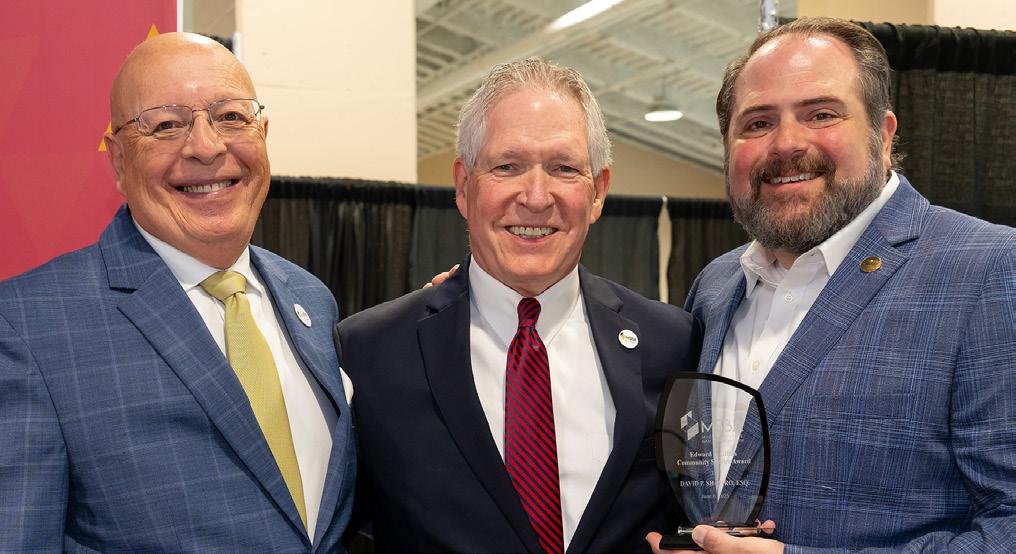
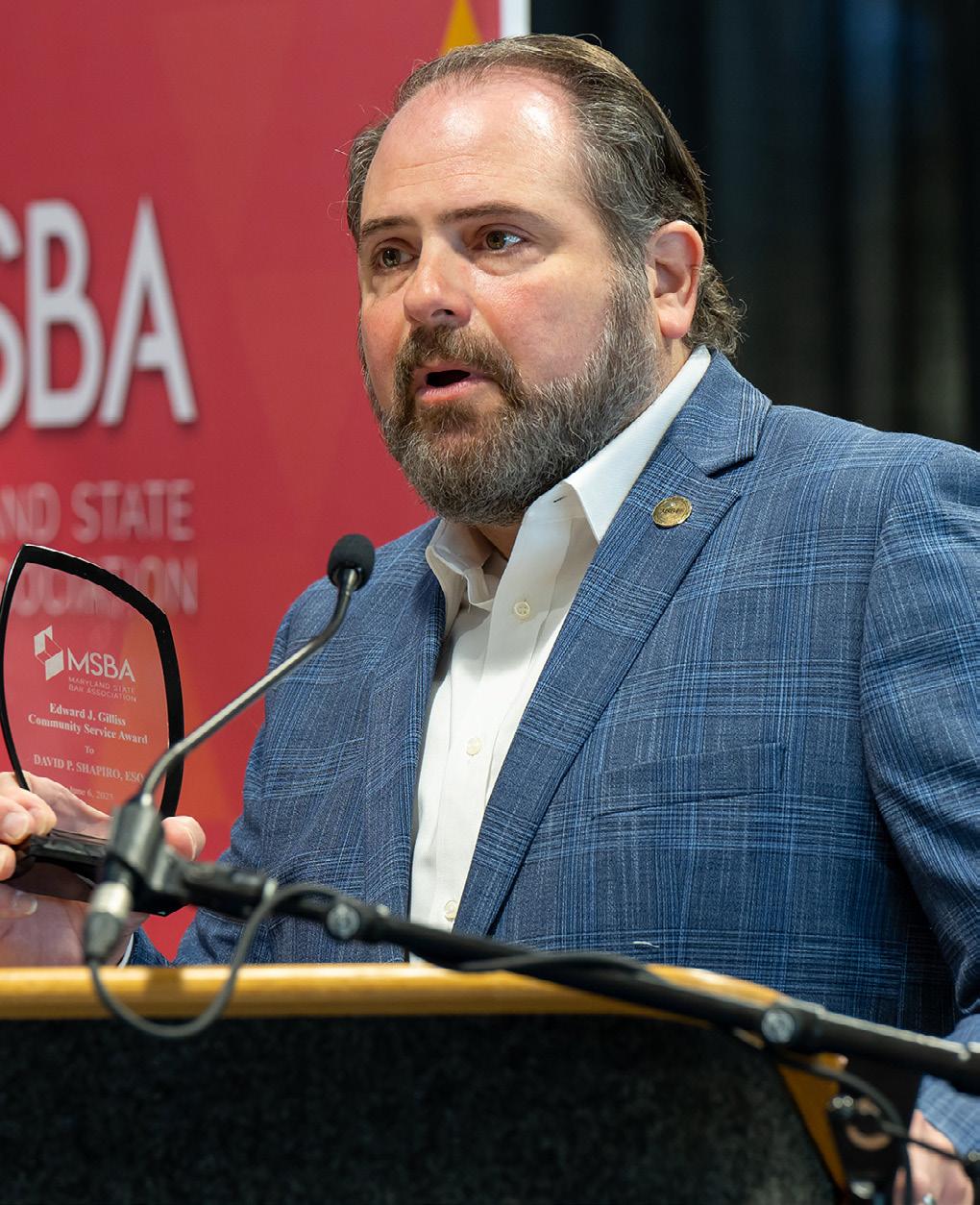
MSBA
LAW FIRMS
100% OF THE LAWYERS at these Maryland law firms and branch offices renewed their MSBA memberships for the 2025-26 Bar year. MSBA is grateful for their commitment to MSBA’s leadership in the legal profession, Annapolis advocacy, and increasing access to justice in Maryland and beyond.





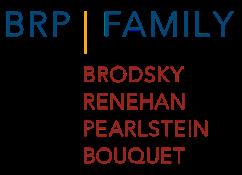



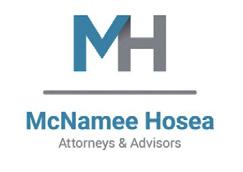

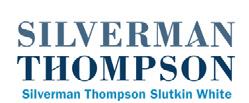



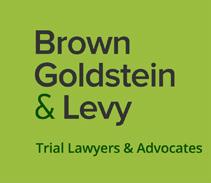
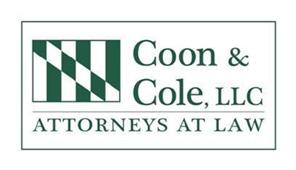
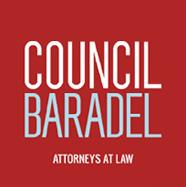
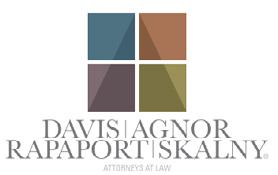

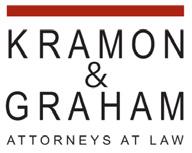
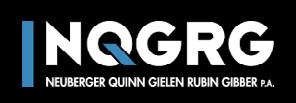






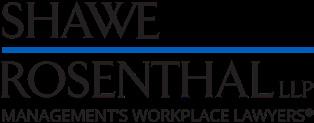




The firms listed here are 100% Law Firms as of July 22, 2025, when this issue went into production. Firms joining this list after that date will appear in the next issue, which will publish in November 2025. The 100% Law Firm program is available to Maryland law firms or branch offices with ten or more attorneys. For more details please contact MSBA Director of Membership, Bob Bershad, at bob@msba.org or 443.703.3011.

As the leading voice for Maryland’s legal community, MSBA is dedicated to advocating for the legal profession, providing comprehensive services and resources for our members, and championing the core values of a just and ethical legal system.
Sustaining members of the MSBA play a vital role in upholding and advancing our mission. Their support aids MSBA's efforts in promoting professionalism, fostering diversity in the legal profession, expanding access to justice, encouraging service to the public, and upholding respect for the rule of law. By investing in the MSBA, sustaining members directly contribute to the ongoing development and strength of the Maryland legal profession.
Prof. Michael Bakhama Nusinov Smith, LLP
Joan Bondareff Blank Rome LLP
Benjamin Boscolo ChasenBoscolo Injury Lawyers
Katherine Howard Regional Management, Inc.
Howard Janet Janet, Janet & Suggs, LLC
Jacob Ross Keith
William Kiniry III DLA Piper LLP (US)
David Lacki Lacki & Company LLC
Natasha Nazareth Nazareth Bonifacino Law Benefit LLC
Lilah Rosenblum Lichtman & Rosenblum PLLC
David Wildberger
Meredith, Wildberger & Brennan, P.C
Sean Woolums
College Living LLC


Young Lawyers Section Charity Event Benefits Believe in Tomorrow Children's Foundation
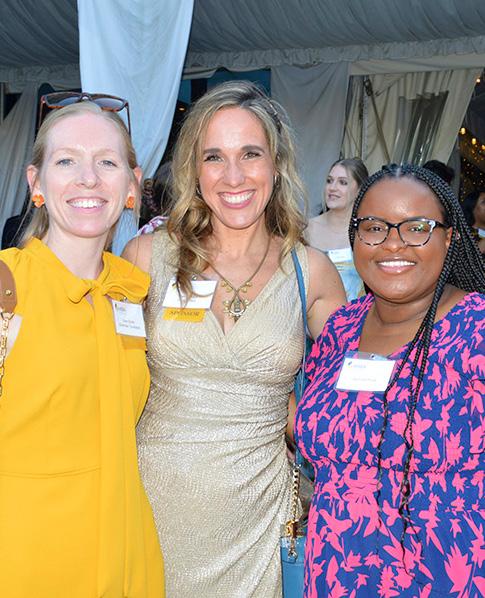
APPROXIMATELY 150 PEOPLE GATHERED for the Young Lawyers Section (YLS) Annual Charity Event on May 2, 2025, at Gertrude’s in Baltimore, Maryland, blending a commitment to service with an evening of networking and fun. This year’s event raised money to support the Believe in Tomorrow Children’s Foundation, an organization that has provided critical assistance to families facing childhood illness for over 30 years. Their work includes operating the Children’s House at Johns Hopkins, offering respite properties, and ensuring families stay together during challenging times, aiding families from all 50 states and over 90 countries. The total amount raised for the Believe in Tomorrow Children’s Foundation was $18,000.
This year’s event raised money to support the Believe in Tomorrow Children’s Foundation, an organization that has provided critical assistance to families facing childhood illness for over 30 years.
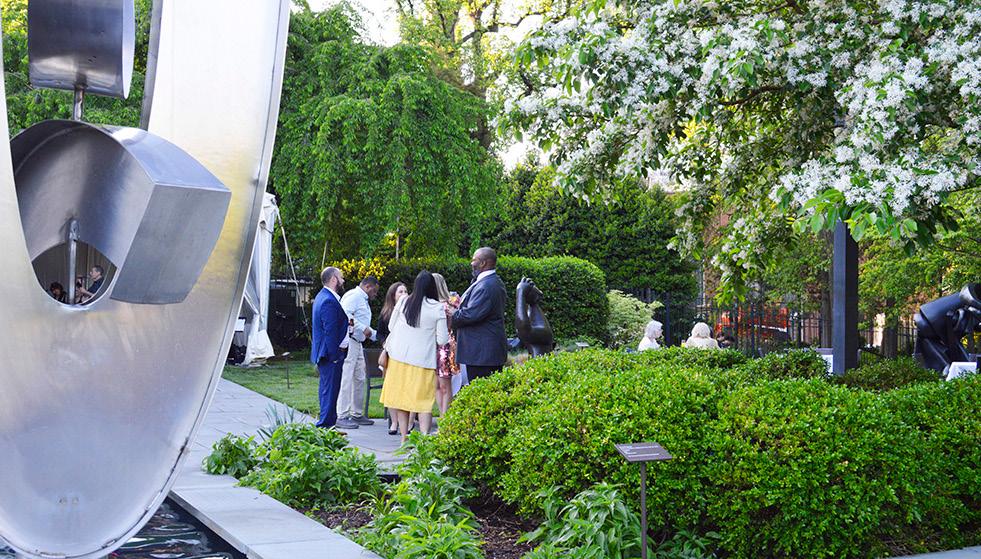


EXCLUSIVE PLATINUM SPONSOR THE YOUNG LAWYERS SECTION THANKS THE FOLLOWING SPONSORS FOR THEIR GENEROUS SUPPORT OF THE EVENT.
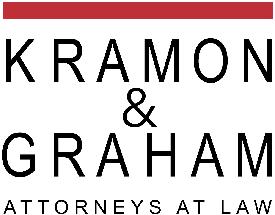
SILVER SPONSORS


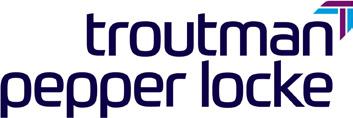
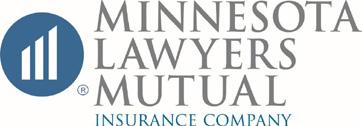
BRONZE SPONSORS


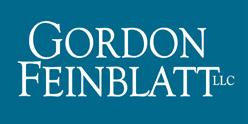

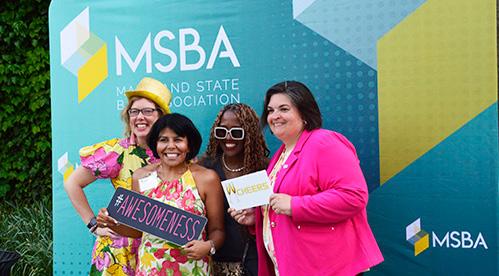
GOLD SPONSORS
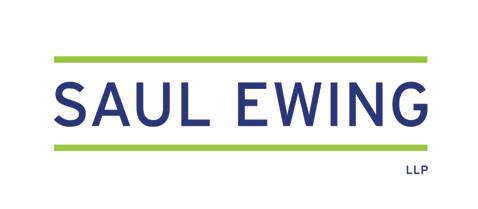
BRIAN HOCHHEIMER & MARJORIE WAX
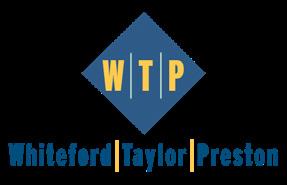




FRIENDS

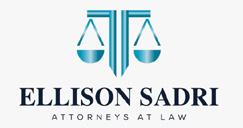

ANNA S. SHOLL, ESQ., MSBA EXECUTIVE DIRECTOR
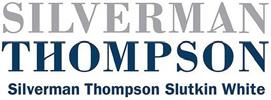
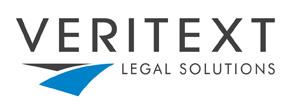

HIDING IN PLAIN SIGHT Cybercriminals Take Advantage of US
Cloud Providers
BY MICHAEL C. MASCHKE, SHARON D. NELSON, ESQ. AND JOHN W. SIMEK

ONE LONG-STANDING cybersecurity measure has been the ability to block malicious threats by Internet Protocol (“IP”) addresses. A public IP address is like your home’s street address on the Internet. It’s a unique number assigned to your internet connection by your service provider, allowing other devices and websites to find and communicate with you online.
Just like your home address lets mail reach your house, a public IP address helps websites, apps, and other online services know where to send data when you browse the internet. System administrators and cybersecurity professionals used to spend countless hours updating block lists using the originating public IPs of ransomware attackers, spam and phishing senders, malicious websites, and sources of Denial of Service (“DoS”) attacks. Maintaining these lists quickly proved ineffective. Just as soon as an IP address was added, the attacks would continue from a new IP address, like an internet-based game of Whac-A-Mole.
Facing the frustrations of maintaining these lists, administrators sought to block traffic based on geographical locations by blocking IP addresses leased or located in a particular country or region, rather than one at a time. On the face of it, this seems like a reasonable step to take, mainly when a business operates primarily in the United States and doesn’t likely need to access information or public websites hosted within countries often present on these lists – for example, North Korea, Iran, Russia, and China.
This approach has also worked reasonably well for law firms, restricting access to resources inside or originating from countries well-known to harbor cybersecurity attackers. An attacker based in China can’t obtain an IP address used or belonging to an Internet Service Provider based in the United Kingdom or the European Union, right?
Cyberattackers Adjust Tactics
The first significant test to block traffic and malicious attacks based on the geographic location of IP addresses came with the usage of Virtual Private Networks (VPNs), which allow a user to select a VPN server to connect to that will encrypt all internet traffic from the user’s computer to the public internet. Typically, VPN software will allow you to choose a VPN server from your desired location, and any internet traffic is then routed through that country. Luckily, many adverse countries prohibit the usage of VPNs to curb and control free speech, so this evasion technique hasn’t been as widely successful as once thought.
What if cybercriminals could originate their traffic from within the United States, at will?
That is precisely what cybercriminals have started to do. Rather than originate malicious traffic overseas to attack the U.S. government, businesses, and citizens, which is more likely to be inspected, analyzed, and filtered, Cybercriminals based in China and Russia are more frequently funneling their operations through large U.S.-based cloud providers. Amazon Web Services and Microsoft Azure have been targeted to provide services to Chinese front companies, which have been used to attack U.S.-based businesses by hosting fake trading apps, gambling websites, and retail phishing pages. Using U.S.-based infrastructure, cybercriminals can bypass geolocation and IP-based filtering and rent out their infrastructure to other cybercriminals, akin to sub-letting a spare bedroom in an apartment you are leasing. This practice makes it very difficult to control who is behind the “renting” of Microsoft or Azure’s virtual services. All the activity and internet traffic originating behind a single front company may share the same Public IP address, and administrators will not start blocking cloud providers. As an added bonus, activating and deactivating cloud virtual services is very quick. This means back actors can “stand up” an evil environment, run it for a short period of time, and then tear it down before victims start taking action.
What can be done about these new tactics?
Just last year, the U.S. Department of Commerce proposed a rule that would require cloud providers to collect data from customers to determine whether each potential customer is a foreign or U.S. citizen, in addition to reporting any transactions that may allow a foreign entity to train AI models that could be used in malicious cyberactivity. How they will implement this requirement and its effectiveness remains to be seen. We know that cybercriminals constantly adjust to the changing environment and will most likely find a way around any new measures that we implement. It is a never-ending challenge.
Michael C. Maschke is the President and Chief Executive Officer of Sensei Enterprises, Inc. Mr. Maschke is an EnCase Certified Examiner (EnCE), a Certified Computer Examiner (CCE #744), an AccessData Certified Examiner (ACE), a Certified Ethical Hacker (CEH), and a Certified Information Systems Security Professional (CISSP). He is a frequent speaker on IT, cybersecurity, and digital forensics, and he has co-authored 14 books published by the ABA. He can be reached at mmaschke@senseient.com.
Sharon D. Nelson is the co-founder of and consultant to Sensei Enterprises, Inc. She is a past president of the Virginia State Bar, the Fairfax Bar Association, and the Fairfax Law Foundation. She is a co-author of 18 books published by the ABA. snelson@ senseient.com
John W. Simek is the co-founder of and consultant to Sensei Enterprises, Inc. He holds multiple technical certifications and is a nationally known digital forensics expert. He is a co-author of 18 books published by the ABA. jsimek@senseient.com
CHAMPIONING FAMILIES AND JUSTICE IN CARROLL
COUNTY
SAMANTHA
Z. SMITH
LAW OFFICES OF SAMANTHA Z. SMITH, P.A.
SAMANTHA Z. SMITH, is a family law lawyer who has dedicated herself to helping people through some of the most emotionally challenging times of their lives. A Westminster resident and graduate of the University of Maryland, Samantha has argued before Maryland’s Court of Special Appeals and Court of Appeals, contributing to significant cases in domestic relations and criminal law.
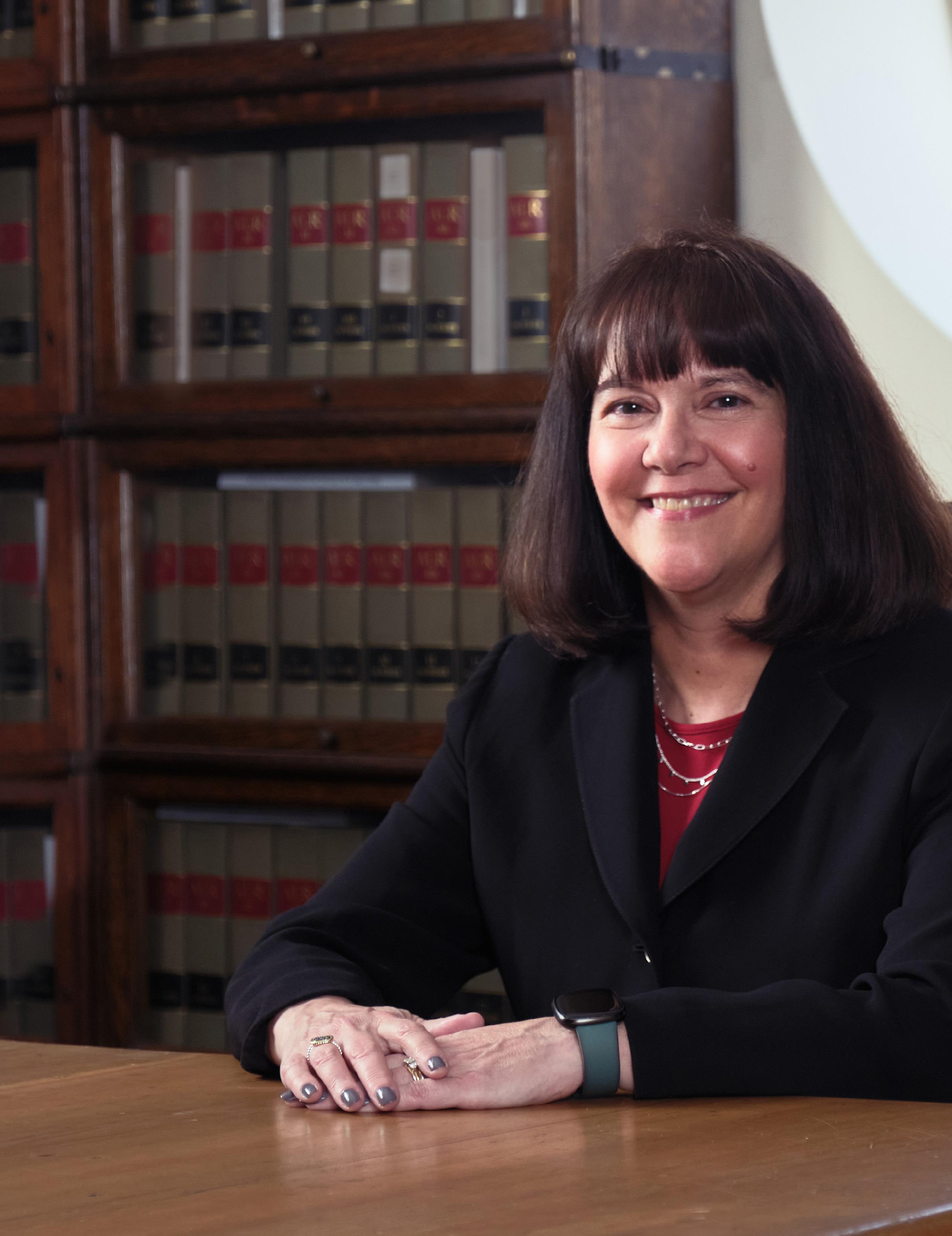
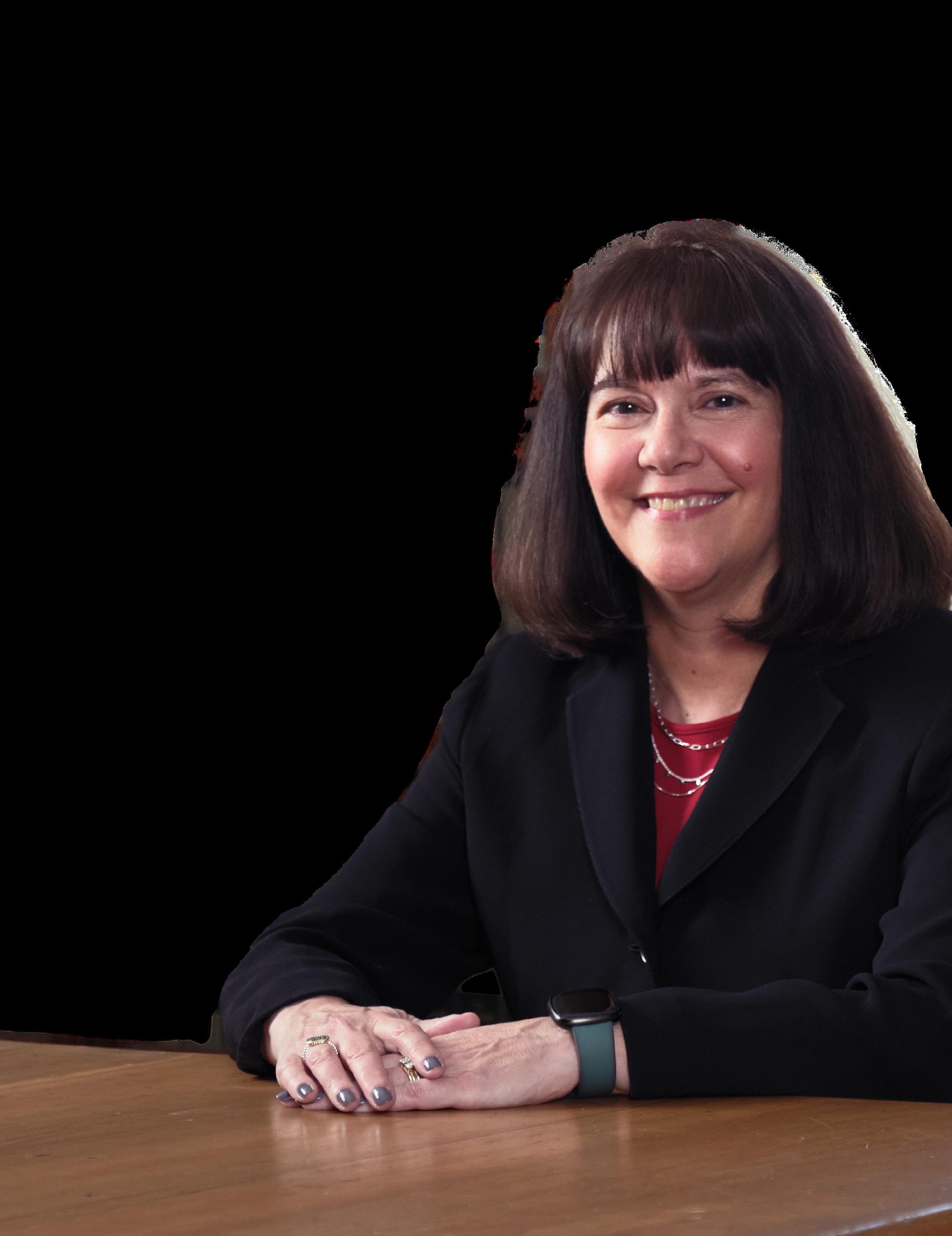
“
My best accomplishments are helping clients on a day-to-day basis manage their divorce and hopefully come out of it in the best place they can mentally, emotionally, and financially.
Her practice focuses on family law, personal injury, employment, contracts, debt collection, consumer issues, landlord/ tenant disputes, criminal defense, and general civil matters, including adoptions and guardianships. She has been appointed as a Best Interest Attorney for children in divorce cases and serves as a settlement conference officer for the Circuit Court for Carroll County. Samantha actively volunteers for the Maryland Volunteer Lawyers Service and Carroll County’s domestic self-represented litigant clinic.
She has held leadership roles, including chairing the Family Law Subcommittee for the Carroll County Bar Association and the Ethics Panel for the Carroll County Board of Education. She has served on the Judicial Nominations Commission and was shortlisted for a Circuit Court vacancy. Samantha is affiliated with the Maryland Association of Justice, Maryland State Bar Association, and Carroll County Bar Association, demonstrating her commitment to both her profession and community.
Samantha was selected to Super Lawyers for the years 2020-2025, one of the most prestigious honors for top-rated attorneys in the nation.
Why did you enter the legal profession?
I became a lawyer because I liked the intellectual exercise of arguing and advocacy. Along the way, I became a family law lawyer and dedicated myself to helping people through some of the most emotionally challenging times of their lives.
What are some accomplishments you've achieved during your career?
I have done a fair amount of appellate advocacy, including two cases in the Supreme Court of Maryland and a number of reported decisions in the Appellate Court, which I have truly enjoyed. But my best accomplishments are the ones no one knows about. Those accomplishments are helping clients on a day-to-day basis manage their divorce and hopefully come out of it in the best place they can mentally, emotionally, and financially.
Describe a memorable MSBA event or product that has had an impact on you personally or professionally. MSBA programs have always been extremely valuable to me. I have always looked forward to the Family Law Update to keep my knowledge current. Last year's Legal Summit had so many great programs that I learned a tremendous amount about some other areas of law that I handle, like landlord/tenant and some estate and trust matters.
How do you spend your free time?
I am an avid reader. Running is the thing that keeps me sane and off medications.
What is an interesting fact about you that no one would guess?
I used to make art out of marshmallow Peeps for the annual Peep Show in Westminster.
Do you find time to relax and unwind?
I do, but it is difficult. As a solo practitioner in a small town, we are overworked, and I work long hours. My county has seen the retirement of many excellent attorneys in recent years. We need more family law lawyers. We need people who want to live and work in our community. We have many solo attorneys, and so many don't feel that they can devote the time and money to hiring associates. I think it is important to have a robust local bar with enough attorneys to meet the needs of the community, and in recent years, Carroll County has started to struggle with that. It's something I worry about.

2025 Legislative Update: Legislation Impacting Employers Throughout the State
BY FIONA ONG, ESQ.
TYPICALLY, BUSINESSES IN MARYLAND face onerous new employment laws following the state’s annual legislative session. This, however, was an unusual year. Perhaps distracted by budget concerns, the Maryland General Assembly was remarkably restrained in the labor and employment area this year. Only three laws were passed, despite a multitude of employment bills (e.g., increased minimum wage, increased salary level for overtime exemptions, expansion of the misclassification law to all employers, harassment reporting and training requirements). Moreover, two of the three new laws—a delay to the paid Family and Medical Leave Insurance program and clarification of the Parental Leave law—were actually positive developments for employers, while the third— expanded military protections—has little practical impact for most employers.
An 18-Month Delay for the Paid Family and Medical Leave Insurance Program
As many Maryland employers know, in 2022, the General Assembly passed a law, over then-Governor Larry Hogan’s veto, to create a paid family and medical leave insurance program (FAMLI). The program will apply to all employers with employees in Maryland. It will provide eligible employees with 12 weeks of paid family and medical leave, with an additional 12 weeks of paid parental bonding leave when an employee has taken FAMLI leave for their own serious health condition (for a possible total of 24 weeks of paid leave).
Employees are eligible for FAMLI leave if they have worked for any Maryland employer, not just their current one, for 680 hours in the prior 12 months. While taking FAMLI leave, employees are guaranteed continued health care coverage and, with very limited exceptions, job reinstatement.
In addition to parental bonding leave, FAMLI covers reasons similar to those under the federal Family and Medical Leave Act (FMLA): the employee’s own serious health condition, to care for a family member with a serious health condition, to care for a service member who is the employee’s next of kin, or because of a qualifying exigency arising out of the deployment of a service member who is the employee’s family member. However, there are several notable differences between the leave entitlements under the federal FMLA and FAMLI. Among them, FAMLI’s definition of “family member” is considerably broader than FMLA’s parent, child, and spouse. It also includes a legal guardian or ward, domestic partner, grandparent, grandchild, and sibling. Moreover, while military exigency leave is tied
Among other things, the Employment and Insurance Equality for Service Members Act expands employment protections for military personnel from just the U.S. Armed Forces and National Guard and Reserve to include all uniformed services and reserve components.
insurance fiasco during the COVID-19 pandemic, it recognized that it needed more time to set up this complicated program correctly. Under the most recent delay, contributions from employers and employees to fund the program will begin January 1, 2027, and benefits will begin some point thereafter, but no later than (and most likely close to, if not on) January 3, 2028.
Other important dates were also changed. The initial contribution rate (which cannot exceed 1.2% of an employee’s wages, up to the Social Security wage base ($176,100 in 2025)) will now be set by the Secretary of Labor on or before May 1, 2026. Thereafter, the Secretary will set the rate by November 1 each year, to take effect on the following January 1.
The legislation also proposes a new definition: “Anchor Date,” meaning the earlier of when an application for benefits is complete or when FAMLI leave begins. The wage rate for the employee, which is used to calculate their benefit amount, will then be based on the highest of the previous four calendar quarters immediately preceding the anchor date.
Finally, the legislation also provides for a possible annual increase in the weekly benefit amount tied to the Consumer Price Index.
One additional note: the MDOL has engaged in an extensive regulatory process over the past several years, and it finally released proposed regulations in two parts, last fall and earlier this year. However, following the passage of the implementation delay, those regulations have now been removed from the FAMLI webpage. Given these circumstances, it is possible, even likely, that the MDOL will issue a revised set of proposed regulations.
Frankly, most employers view the forthcoming FAMLI program with a great deal of trepidation. The contribution cost is effectively yet another payroll tax that increases the financial burden of
to the deployment of a service member, the deployment must be to a foreign country under FMLA, but not under FAMLI. This $2 billion program will be administered by the State and funded by contributions from employers and employees. Contributions were originally set to begin October 1, 2023, with benefits starting January 1, 2025. The Maryland Department of Labor (MDOL) was directed to issue regulations to implement the provisions of the law.
Setting up the FAMLI program has been challenging, and the General Assembly passed legislation to delay implementation, first in 2023, then again in 2024, and at the request of the Maryland Department of Labor (MDOL), yet again this year. To the MDOL’s credit, and drawing lessons from its unemployment

The only significant employment law to pass, the FAMLI delay, benefits Maryland employers, while the other new laws only have limited effect.
doing business in Maryland. For large employers, the sum total of these contributions is significant. For small employers, these contributions cut into increasingly narrow profit margins. And, as many employers woefully know, managing extended or unpredictable intermittent leave situations while keeping their business operations running can be incredibly complicated. Thus, this law brings no small amount of relief for employers, particularly in this turbulent economic climate.
A Clarified Definition of Employer Under the Parental Leave Act
The federal FMLA, which provides up to 12 weeks of unpaid leave for various reasons, including parental bonding time, applies only to employers with 50 or more employees. To extend similar rights to employees of smaller employers, the Maryland General Assembly passed the Parental Leave Act in 2014, requiring employers with 15–49 employees in Maryland to provide eligible employees with up to six weeks of unpaid leave for purposes of childbirth, adoption, or foster care placement.
Although intended to cover those smaller employers to whom the federal FMLA did not apply, the language of the law created a situation where an employer could, in fact, be subject to both. Because FMLA coverage is determined by the total number of employees within the company, an employer with only a few employees in Maryland, but with more than 50 throughout the country, would end up being covered by both laws.
This legislation clarifies that the definition of “employer” under the Parental Leave Act does not include those who are covered by the federal FMLA. While this may be useful for those larger, multi-state employers with small operations in Maryland, it is important to note that the Parental Leave Act will effectively become moot once FAMLI, and its guaranteed 12 weeks of parental bonding leave for all eligible Maryland employees, finally takes effect.
(Somewhat) Expanded Protections for Service Members
Among other things, the Employment and Insurance Equality for Service Members Act expands employment protections for military personnel from just the U.S. Armed Forces and National Guard and Reserve to include all uniformed services and reserve components. This means that, in addition to the Army, Navy, Air Force, Marine Corps, Space Force, and Coast Guard, the employment protections under Maryland
law now also apply to the National Oceanic and Atmospheric Administration and the Public Health Service.
The law specifies that the expanded definition impacts certain existing employment protections:
• Permissible hiring preferences for eligible veterans (meaning one who received an honorable discharge or certificate of satisfactory completion of uniformed service), as well as the spouse of an eligible veteran who has a service-connected disability, the surviving spouse of a deceased eligible veteran, and the spouse of a full-time active member of the uniformed services.
• Leave on the day that the employee’s spouse, (step) parent, (step)child, or sibling is leaving for, or returning from, active duty outside the United States as a member of the uniformed services.
• FAMLI leave, once it takes effect, for certain family military leave reasons: to care for a service member with a serious health condition who is the employee’s next of kin, or for certain qualifying exigency reasons related to the deployment of a service member.
Realistically, the expanded definition will have minimal impact on most employers. The number of employees with family members working for the National Oceanic and Atmospheric Administration or the Public Health Service is likely not high.
Conclusion
Employers may heave a sigh of relief with regard to this latest General Assembly session. The only significant employment law to pass, the FAMLI delay, benefits Maryland employers, while the other new laws only have limited effect. Employers should enjoy this brief respite, as it is likely the General Assembly will impose more burdens and obligations on employers in future legislative sessions.
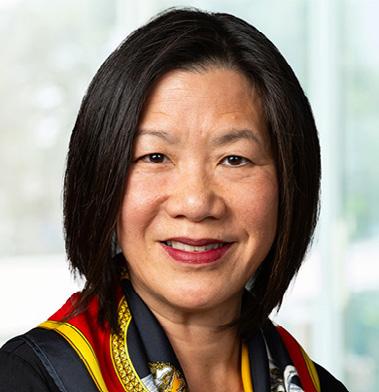
Fiona Ong is a shareholder in the Baltimore office of Ogletree Deakins. She partners with managers and human resources to help them balance the needs of employers with the rights of employees in order to achieve business success.
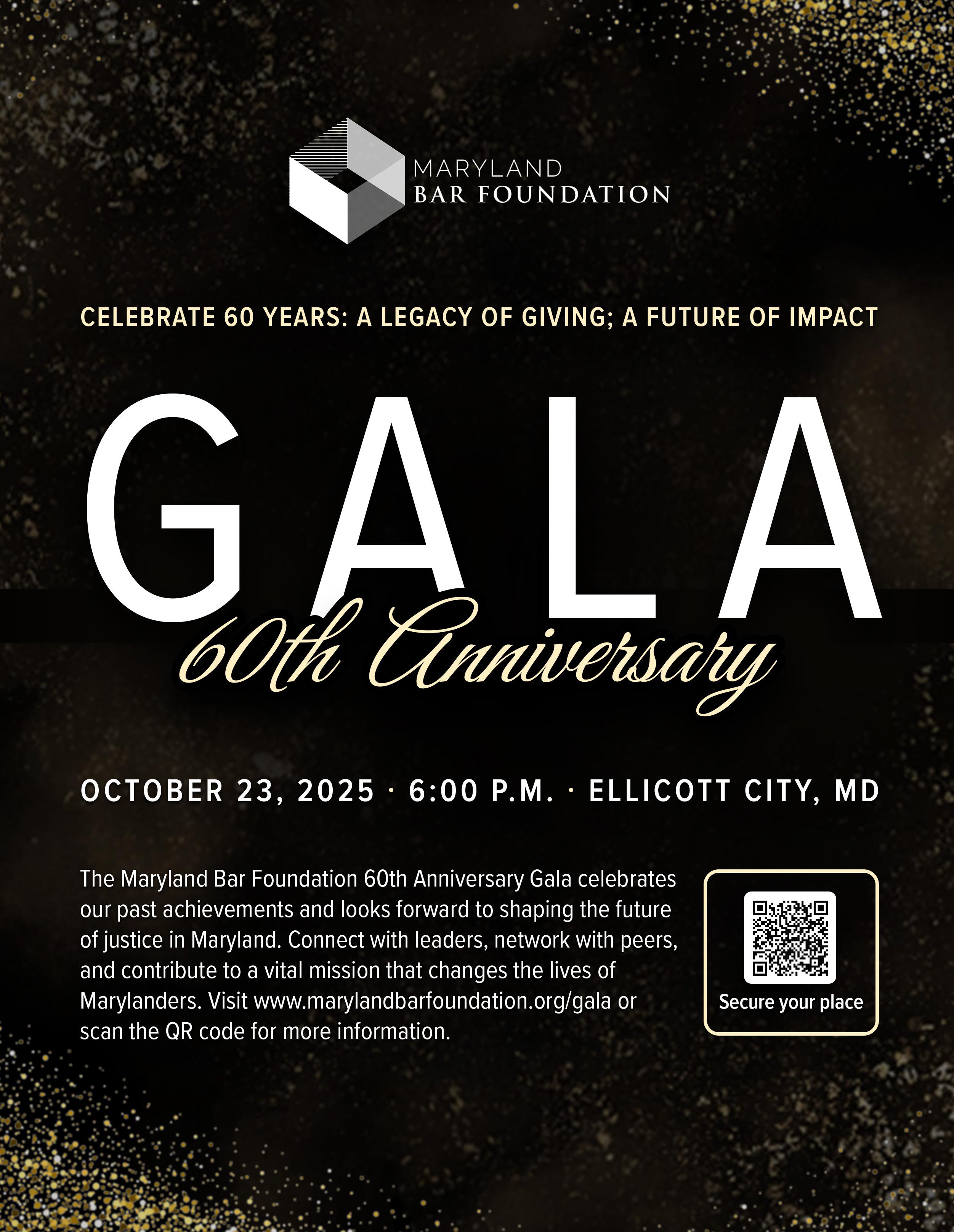
FINDING HER CALLING
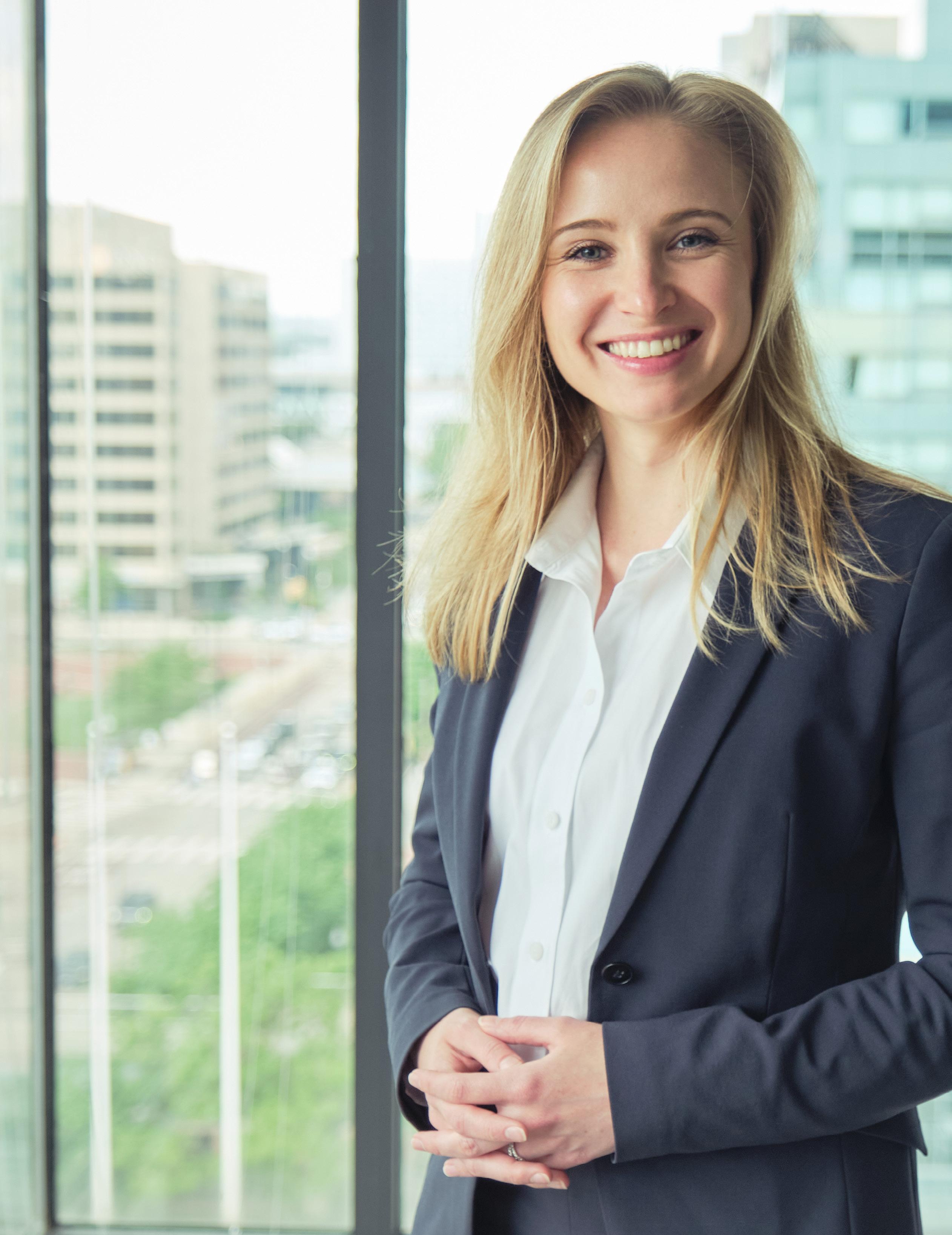
ILONA SHPARAGA Counsel, Silverman Thompson
SEVEN YEARS INTO a thriving legal career, Ilona Shparaga, Counsel at Silverman Thompson, has carved a niche in the demanding field of Commercial Litigation in Maryland. While her journey to becoming a business litigation attorney was anything but traditional, her analytical skills and drive enabled her to excel as an advocate for her clients. MSBA recently interviewed Shparaga to delve deeper into the guiding principles of her practice and her vision for the future of law.
It is never enough to do the assignment you were given. In the legal profession, slight deviation from a specific pattern can produce a different outcome. “
Why did you enter the legal profession?
As I like to joke, I didn’t choose the legal profession, the legal profession chose me. I was born in Ukraine and moved to the United States when I was 15. I chose psychology as my undergraduate degree, and planned to vigorously pursue it until I earned a doctoral degree in psychology. Sometime during my last year of undergraduate studies, my now husband asked me if I ever thought about law school. I dismissed that notion, convinced that my English was not strong enough to become a lawyer in the United States. However, with the unwavering encouragement and support of my husband, I mustered enough courage to take the LSAT summer of 2014. As I was waiting for the results, I applied to the University of Baltimore School of Law, which had rolling admission. Miraculously, they accepted me, and the rest is history. Truthfully, the first year of law school and attempting to navigate the U.S. legal system, terminology, and processes, was difficult and overwhelming. However, with each year and each internship I took, I started to enjoy and appreciate the profession, and I can truly say that I found my passion in it.
What is the best piece of advice you have received from someone in the legal profession?
Regardless of the task you are working on, always try to dig deeper and anticipate the follow-up questions that people might ask you. It is never enough to do the assignment you were given. In the legal profession, slight deviation from a specific pattern can produce a different outcome. Therefore, it is important to dissect each problem into smaller pieces, analyze them individually, and anticipate to fill the gaps where people might have questions.
Tell us a little about your biggest project or passion project related to your professional career right now.
I am a Member At-Large of the MSBA Business Law Section. Last year, under the leadership of David Cahn and Christine Dixon, we piloted the first pro bono Legal Clinic for Small Businesses. Once a month, attorneys volunteer one hour per client to provide free legal advice to small businesses in Maryland. The issues our attorneys encountered in the past involved: entity formation and management; securities and capital raising; business acquisition; contract review; real estate leasing; intellectual property protection and licensing; and government licensing and permitting. In my legal practice, we receive daily inquiries from prospective entrepreneurs who desire to set up their business practices properly; however, they still lack the capital to afford to hire an attorney. This clinic allows us to bridge that gap by offering proactive support to entrepreneurs who are navigating complex legal terrain with limited resources. It’s a way for me to use my expertise to help build stronger, more resilient businesses, often run by individuals who pour everything into their ventures. Contributing to their success not only prevents future litigation but also fosters economic growth and equity in our local communities.
How do you stay informed and educate yourself about the latest shifts in legislation and legal precedents?
I make it a priority to stay current on legal developments, whether it's changes in procedural rules, emerging case law, or regulatory shifts, through regular continuing legal
education, legal publications, and active participation in professional associations. Being a part of MSBA in general, and the Business Law Section within, I have unfettered access to CLEs and the brightest legal minds in Maryland. MSBA continuously provides relevant and timely industry webinars and legal conferences, where I can engage with thought leaders and fellow attorneys about significant legal developments. Staying proactive in these ways ensures I am prepared to advise clients on the most current and relevant legal issues.
Describe a memorable MSBA event or product that has had an impact on you personally or professionally.
Attending the Advanced Business Law Institute (ABLI), organized by the MSBA’s Business Law Section, opened a new world for me within the business law arena and introduced me to some of the exceptional legal practitioners in the field. For two consecutive years, I participated in the ABLI as an attendee and gained invaluable insights into emerging issues in business law. I was especially inspired to learn that some attorneys played an active role in planning such a high-caliber program.


AI vs. Attorneys
Insights from the Vals’ Legal AI Report
BY PAMELA LANGHAM

LAW FIRMS ARE INCREASINGLY ADOPTING generative artificial intelligence (AI) for administrative tasks and law practice. But how effective are these tools when applied to real-world legal tasks? The Vals Legal AI Report set out to answer this pressing question by rigorously evaluating four distinct legal AI platforms across seven critical tasks. By benchmarking their results against those generated by a lawyer control group, the report offers an in-depth analysis of how these tools compare to human expertise, providing valuable insights for legal professionals seeking to harness the potential of AI in their work.
Vals AI Platform
The Vals AI Platform is a tool designed to evaluate the performance of large language models (LLMs) on industry-specific tasks. It creates custom benchmarks that mimic real-world use cases, allowing for unbiased and accurate assessments of how these models perform in practical applications. The platform collects review criteria from subject-matter experts and runs evaluations at scale, making it a valuable resource for understanding the capabilities of LLMs in various domains.
The four AI tools they evaluated included Harvey’s AI Assistant, Thomas Reuters’ CoCounsel, vLex’s Vincent AI, and Vecflow’s Oliver. Lexis+AI was initially included but withdrew. The performance of the human lawyers is the Lawyer Baseline.
Val’s study assigned accuracy or performance scores to each AI tool based on specific criteria set for each legal task. The scores assigned are expressed as percentages. A higher percentage indicates that the AI tool performed better on that task “relative to other AI tools and the Lawyer Baseline.”
Law firms are increasingly adopting generative artificial intelligence (AI) for administrative tasks and law practice. But how effective are these tools when applied to real-world legal tasks?
Key Takeaways from VLAIR
Vals’ Legal AI Report
On February 27, 2025, Vals released the Legal AI Report (VLAIR), available at https://www.vals.ai/ vlair. Vals collected a human legal baseline from lawyers at a few large law firms. Vals did this to measure the performance of the AI legal tools compared to that of a human lawyer.
Vals tested seven tasks traditionally performed by lawyers: Data Extraction, Document Q&A, Document Summarization, Redlining, Transcript Analysis, Chronology Generation, and EDGAR Research. EDGAR research stands for the Electronic Data Gathering, Analysis, and Retrieval system that most companies use for document retrieval.
In four tasks, at least one AI tool outperformed the human lawyers (Lawyer Baseline): Data Extraction, Document Q&A, Document Summarization, and Transcript Analysis. The Lawyer Baseline outperformed all of the AI tools on Redlining and EDGAR Research. The Lawyer Baseline and Harvey Assistant tied on Chronology Generation.
Harvey AI outperformed the Lawyer Baseline and all the other AI tools on Data Extraction, Document Q&A, and Transcript Analysis. It tied with the Lawyer Baseline on Chronology Generation. Harvey AI was not tested on the EDGAR Research task.
CoCounsel outperformed the Lawyer Baseline on Document Summarization and scored the highest in that category. CoCounsel was not tested on Redlining, Transcript Analysis, or EDGAR Research.
According to the VLAIR, the best scores for each category are as follows:
Data Extraction: Harvey Assistant at 75.1
Document Q&A: Harvey Assistant at 94.8
Document Summarization: CoCounsel, 77.2
Redlining: Lawyer Baseline, 79.7
Transcript Analysis: Harvey Assistant, 77.8
Chronology Generation: Harvey Assistant, 80.2
EDGAR Research: Lawyer Baseline, 70.1
The table below was partially taken from VLAIR and demonstrates the test and performance results of the Lawyer Baseline, the AI tools, and the task average.
Evaluations like the VLAIR are important for the legal community to determine whether they are ready to adopt AI tools.

DENOTES PARTICIPATION IN THE TASK
Conclusion
Evaluations like the VLAIR are important for the legal community to determine whether they are ready to adopt AI tools. The study highlights the capabilities of legal AI tools in performing various legal tasks, demonstrating their potential to enhance efficiency and accuracy in law firms. But it also highlights the weaknesses in AI tools' accuracy and performance. Harvey Assistant emerged as a good performer, excelling in multiple tasks and surpassing the Lawyer Baseline in several tasks.
CoCounsel also showed strong results, particularly in Document Summarization and Document Q&A. While AI tools collectively outperformed human lawyers in several areas, they still lagged in complex tasks like EDGAR Research and Redlining. These findings underscore the value of AI tools while recognizing the need for continued technological advancements to fully meet the demands of legal practice.
PESSIN KATZ LAW, P.A. CULTIVATING SUCCESS

PESSIN KATZ LAW, P.A. (“PK Law”) was founded in Towson in 1988 as a small estate planning firm. The firm moved to its current 901 Dulaney Valley Road office in 1997 and has grown into the largest law firm headquartered in Baltimore County. For the past 20 years, PK Law has held a steady count of approximately 50 attorneys. With that number, it has been identified within the top 10 listings of the largest law firms in the Baltimore area throughout those 20 years. In 2025, it is ranked as the sixth-largest law firm. The majority of PK Law’s attorneys are based in the Towson office headquarters, with 10 attorneys in the firm’s Columbia office and six in the firm’s Belcamp office.

“
One of PK Law’s founding members, David Pessin, is still actively practicing in the firm, having developed one of the region’s most well-known and respected wealth preservation and business planning practices for professional athletes, entertainers, and broadcasters. Gerald Katz, another PK Law founding member, was widely recognized in the Baltimore legal and business communities as one of the area’s preeminent business and tax attorneys. Katz passed away on November 3, 2014.
reach their goals. Those attorneys who take advantage of the opportunities provided to them at PK Law have a leg up on making it to the partnership level.
In addition, PK Law offers all of its associates an opportunity to be paired with a PK Law attorney mentor. Mentors are encouraged to meet informally with their mentees regularly, take mentees to client dinners and lunches, and networking, bar association, trade group, and other marketing-related events, as well as pair up with other PK Law mentors/
The bottom line is that at this point, we know how to grow practices and have gotten very good at developing associates into equity members. If they are willing to put in the time and effort, we are willing to do the same."
Under the guidance of the strong leadership of Mr. Pessin and Mr. Katz, and the firm’s Managing Member for the past fifteen years, Drake Zaharris, PK Law has provided a strong platform for the distinguished careers of its members in wealth preservation, corporate and real estate, commercial litigation, insurance, insurance defense, education, labor and employment, medical malpractice defense and white collar criminal defense. Many of PK Law’s current members, including David Pessin, Patricia McHugh Lambert, Edmund O’Meally, Catherine Steiner, and Paul Finamore, have been recognized as a Baltimore Region Lawyer of the Year by Best Lawyers for their area of practice in these fields. Steiner and Gus Brown are both fellows of the prestigious American College of Trial Lawyers.
A Focus on Growth and Development
PK Law has a robust entrepreneurial marketing and business development program that strongly encourages all attorneys in the firm, from first year associate to equity member, to develop an annual marketing/business development plan. The firm provides resources, including one-on-one coaching sessions and financial support, for the attorneys to
mentees. The firm also hosts quarterly mentor/ mentee get-togethers for panel discussions, Q&A sessions, and informal gatherings with other firm members and of counsel. “The bottom line is that at this point, we know how to grow practices and have gotten very good at developing associates into equity members. If they are willing to put in the time and effort, we are willing to do the same,” says Nicole Ames, PK Law’s chief business development officer. Ames elaborates, “While I would like to say the firm’s success at growing associates into equity members is solely attributable to the marketing and business development department’s efforts at the firm, I believe there is more to it. There is an environment in the firm among the equity members that developing young attorneys is necessary for the greater good of the firm, to pass the firm on to the next generation, and allow it to continue to grow over the next 35 years and beyond. I think that sets PK Law apart.”
The success of PK Law’s efforts is evidenced by the number of attorneys at PK Law who have traveled the associate-to-owner path. Currently, six of the firm’s 15 equity members started as associates at PK Law. Along with Pessin (founding member), in the past
10 years, Kimberly Battaglia from the firm’s Wealth Preservation Group, Lauren Ades from the firm’s Corporate and Real Estate Group, Chantelle Custodio and Kimberly Longford from the firm’s Medical Malpractice Defense Group, and Aidan Smith from the firm’s General Litigation Group, have been elected to PK Law equity member. When asked what they thought attributed to their successful rise to the top at the firm, there is recognition that they did not do it alone.
Battaglia attributes her progression at PK Law “to not only the partners within my own department but many of the partners within the firm who rallied behind me to be successful.” Battaglia believes what sets PK Law apart is the fact that PK Law “invests in their associates.” Ades attributes her progression at PK Law to the “excellent legal training from Katz, who was a legal giant in the real estate and tax world, and Zaharris, who showed me the art of business development. I try to pay it forward by mentoring our young associates, not only on legal skills but also on business development.” When asked what she thinks sets PK Law apart from other firms in this area, she added, “PK Law has always encouraged its associates not only to excel in the legal field, but also to think about business development.”
Longford attributes her success to the fact that at PK Law, she “was very fortunate to work with partners who were committed to my development and growth as an attorney, as well as within the firm.” She added, “As an equity member, I consider it my job to foster the same opportunity for today’s associates and non-equity members at PK Law.”
Custodio said what sets PK Law apart is that “many attorneys are very protective of their own book and are hesitant to help others to develop new clients of their own. At PK Law, our philosophy is the opposite—we are all stronger together than separately. We are committed to helping
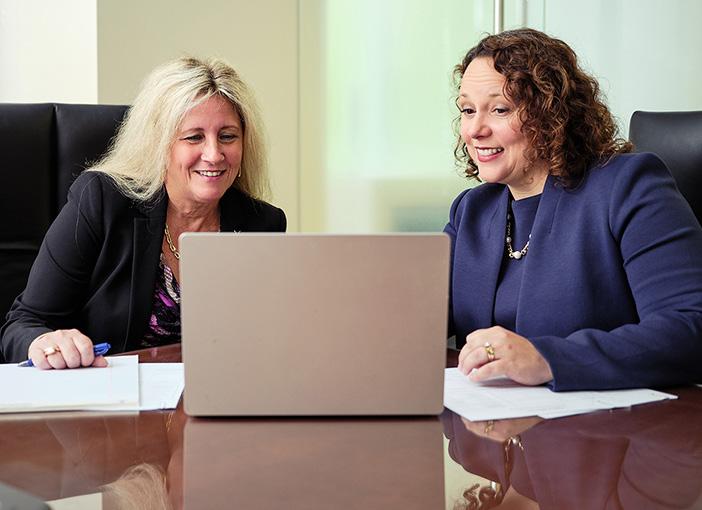
young lawyers develop and grow with the goal that they will one day be our partners.”
Smith said that he has “been provided wonderful mentorship from top-notch trial lawyers. When I have a problem with a complex business or estate issue, there are subject matter experts right down the hall who are willing to share their expertise.”
There are more on the horizon. Elliott Petty, Robert Campbell, David Burkhouse, Andrew Scott, Kambon Williams, Megan Anderson, and Adam Konstas are poised to grasp this PK Law associate to equity member distinction. Konstas, currently a non-equity member in the firm, reflecting on his experience, stated, “The journey to where I am today and where I hope to be in the future began when I walked in the door of PK Law as a summer associate in 2011. Right out of the gate, associates gain meaningful work experiences—whether it be in the courtroom, working directly with clients, or drafting significant motions. The mentorship and training given to associates by the partners at PK Law lay the foundation for those Associates to grow professionally. With the added support of our marketing department, Associates have the opportunity to engage in business development that will propel them to more senior roles within the firm.”
PK Law has always encouraged its associates not only to excel in the legal field, but also to think about business development.
MSBA mourns the recent passing of Steven Allen, a Member at Pessin Katz. A full In Memoriam of Allen will be published in the Fall 2025 issue.
How to Generate Referrals as a Young Lawyer
(Even If You Aren’t a Partner)
BY BRIAN GLASS, ESQ.

As a young lawyer, you’ve no doubt been told that referrals are the lifeblood of a thriving practice. But if you’re not a partner and don’t have your name on the door, how do you start building a referral network that feeds you high-quality cases?
The wrong answer: “Do good work, and more work will come.” Good work is necessary, but it isn’t sufficient.
If you want to generate referrals and make it rain (even as an associate), you must do three things: Be useful, be visible, and be memorable.

Play the Long Game with Relationships
Referrals don’t come from transactional interactions; they come from real relationships. You don’t have to have your name on the door to start building a network of people who think of you first when a legal issue arises.
Start with your current circle—law school classmates, bar association contacts, and even non-lawyer friends and family. They may not need a lawyer now, but when they do (or when someone they know does), you want to be top of mind. Be the person who provides value without expecting an immediate return. Introduce colleagues to each other, share useful legal insights, and follow up authentically after networking events.
The more you help people without an expectation, the more they will remember you when the right opportunity arises. The goal is not to ask for referrals directly but to become someone others naturally think of when a legal need emerges.
Become Known for Something
One of the biggest mistakes young lawyers make is trying to be everything to everyone. Specialization creates memorability. If people know exactly what you do, they can refer cases to you with confidence.
Rather than being a general personal injury lawyer, can you become "the go-to person for motorcycle accidents" in your community? There are lawyers in my market who I know as the Airport Injury Lawyer (Doug Landau), the Dental Malpractice Lawyer (Michelle Bartoli Cain), and the FTCA Med/Mal Guy (Brewster Rawls). I promise you that I am not the only one in Virginia who recognizes them by their niche.
Can you be the associate at your firm known for handling a specific type of contract dispute? The more narrowly you can describe your expertise, the easier it is for others to remember and recommend you.
Sharing what you know reinforces this expertise. Write short LinkedIn posts, contribute to bar association newsletters, or give mini-presentations at local events. Even if you’re early in your career, positioning yourself
as an educator builds credibility. And don’t forget the power of storytelling—sharing your own journey into the law and what drives your passion for a specific practice area makes you more relatable and trustworthy.
Leverage the Power of Social Proof
Referrals thrive on trust, and nothing builds trust like social proof. Testimonials, case studies, and third-party endorsements create credibility and make it easier for people to refer you with confidence. You can also leverage the bar association newsletter and presentations from the last paragraph by sharing them on social media.
Even when you are not the lead attorney on a case, ask for testimonials from colleagues, mentors, or senior attorneys who can vouch for your work (do ask the lead lawyer first, though). Share success stories (while maintaining client confidentiality by changing a few key details) on social media to highlight your skills and build credibility. A wellplaced LinkedIn post showcasing a case you helped win or a problem you solved can go a long way in establishing trust with potential referrers.
Lastly, get involved in referral networks or build your own. Many young lawyers overlook the power of structured networking groups where referrals are actively exchanged. By showing up consistently and contributing value, you establish yourself as someone worth referring.
You Don’t Need a Big Title—Just a Big Reputation Referrals aren’t just for partners or firm owners. As a young lawyer, you have the opportunity to build a name for yourself early. The key is to show up, add value, and make it easy for others to refer business your way. Play the long game, specialize, and build genuine relationships, and you’ll set yourself up for a thriving practice—whether you’re a solo lawyer or an associate at a larger firm.
There is no greater job security for young lawyers than the ability to generate business. In tough economic times, the lawyers who can’t do this get let go. Plus, your ability to create a personal brand and attract clients offers you the flexibility later in life to start your own firm or leave without fear that you will starve.
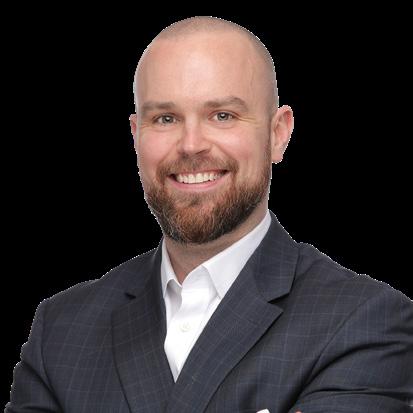
Brian Glass is a personal injury lawyer, entrepreneur, and president of Great Legal Marketing, where he helps solo and small firm attorneys build profitable, client-centered practices. He also hosts the Life Beyond the Briefs podcast and is the author of Renegade Lawyer Marketing, a guide for lawyers looking to scale their firms on their own terms. Connect with Brian on LinkedIn for more insights on business development and law firm growth.

2025 Legislative Recap: MSBA Again Defeats a Tax on Services and Promotes Security for the Profession
MSBA serves as the collective voice of Maryland’s legal profession, representing the interests of lawyers across the state from nearly every practice area, career stage, and demographic. This year, the Association successfully protected members from a proposed tax on services and secured funding for access to justice. MSBA also supported bills promoting security for the profession and improving judicial selection. Below is a summary of priority legislation from the 2025 session.
MSBA Successfully Defeats Broad 2.5% Business-to-Business Tax on Services
HB 1554/SB 1045 was introduced late in session as a measure to balance Maryland's budget and fund priorities including public safety, education, transportation, and health care. The tax would increase everyday costs for Maryland attorneys and law firms as taxable services included routine law firm transactions, such as accounting, billing, payroll, printing, marketing, lobbying, financial planning, tax preparation, and data and IT services. Through member testimony, outreach,
and grassroots advocacy, MSBA successfully opposed the tax that would have had a destructive effect on our profession, affecting every Maryland law firm and impacting costs and client services for non-profit and legal services organizations. Instead, legislators proceeded with a 3% tech tax that may still impact some of our members.
MSBA Advances Judicial and Attorney Security Through Courtroom Standards
As originally drafted, HB 789/SB 621, requested by the Maryland Judiciary, established minimum adequate security standards for courtroom security at all courthouse facilities, and required, beginning July 1, 2026, the presence
This year, the association successfully protected members from a proposed tax on services and secured funding for access to justice.
HB
103/SB
154 secured funding
Access to Counsel in Evictions Program THROUGH 2028 FOR THE
of a certain number of security officers in every courtroom during high-conflict matters, including criminal, juvenile, and family law proceedings. The bill expanded the minimum security requirement to all courtrooms by July 1, 2028. MSBA President Santini served on the legislative Task Force (created by SB 575 in 2024) that recommended the security standards in this bill. One area of legislative concern was the fiscal impact on local counties. MSBA supported the bills, which passed in amended form given the current budget deficit and funding concerns for smaller jurisdictions. The amended bill requires each law enforcement agency, department, or entity providing security at a courthouse to submit a report to Chief Justice Fader by September 2025 on their security standards and a viable plan to meet the minimum adequate security standards identified by the Task Force. SBA will continue to support security enhancements for judges, attorneys, and all who engage in our court system.
MSBA Supports Judicial Selection Bill to Remove Contested Elections
HB 778/SB 630, requested by the Maryland Judiciary, proposes amendments to the Maryland Constitution relating to the selection and tenure of circuit court judges, with a constitutional amendment proposed to state voters in November 2026. The bills align the circuit court judicial selection process with that of appellate selection by removing contested elections, designating a 10-year term, and holding a retention election within one year of appointment and every 10 years thereafter. The legislation follows a report issued by the Judiciary’s Workgroup on Judicial Selection that determined that contested elections pose ethical
concerns and security risks. The bills had lengthy committee hearings, with strong support from MSBA, local and specialty bars, the governor’s office, and the Maryland Chamber of Commerce but did not move out of legislative committees. MSBA will continue to pursue and support this issue in future legislative years.
MSBA and A2JC Secure Access to Justice Funding
As originally introduced, HB 103/SB 154 established a permanent annual funding source for the Access to Counsel in Evictions (ACE) program beyond June 2027. Without this minimal level of funding, the ACE law would not be able to keep Marylanders housed, while saving the state millions of dollars. In partnership with the Maryland Access to Justice Commission, MSBA provided supportive testimony and ensured the bill’s passage. Although the final bill did not provide ongoing annual funding, the legislature extended funding for an additional year through FY 2028. MSBA will continue to work with A2JC and civil aid partners to establish permanent ACE funding in the face of ongoing state budget concerns.
MSBA Successfully Defeats Land Records Fee
Thanks to MSBA’s determined advocacy and coalition with other affected industries, the Maryland State Archives will no longer proceed with a planned per page or monthly subscription option to access Maryland Land Records online. The proposed $0.20 per page fee and subscription tiers were unreasonable, prohibitive, and created without proper notice to our profession for feedback. As soon as MSBA learned of the proposed charge earlier this year, we engaged in direct lobbying and grassroots advocacy and successfully delayed implementation of the fee (originally scheduled for May 1, 2025) to allow time for feedback on proposed pricing. MSBA will continue to fight for our members over the next several months as we work with partners to find a permanent funding solution by the next legislative session.
The MSBA conducts the most effective advocacy with your support. Please join us as a member and use your voice to reach out to us about the issues that matter to you and to the legal profession.


MSBA Leadership Academy Fellows Launch "EmpowerED" Podcast to Champion Special Education Rights
MSBA is committed to fostering exceptional legal talent and cultivating future leaders within the profession. A key component of this commitment is the MSBA Leadership Academy, a 12-month program designed to transform lawyers into more effective leaders and prepare them for impactful roles within the MSBA and the broader legal community.
MSBA Leadership Academy: Cultivating Diverse Leaders
Since its inception in 2010, the Leadership Academy has been instrumental in creating pathways for diverse members of the bar to cultivate their leadership potential. It was envisioned as a program to reach out to lawyers from areas and groups traditionally underrepresented in MSBA leadership roles, providing them with leadership training and an in-depth introduction to the MSBA to foster a stronger sense of belonging within the MSBA and the wider community.
The program also facilitates invaluable connections with past Bar Presidents and current bar leaders, offering a unique mentorship experience that enhances leadership capabilities and deepens understanding of the MSBA's mission.
Each year, a select cohort of 15 fellows is chosen from a competitive pool of applicants. Throughout their term, these fellows immerse themselves in a comprehensive curriculum that includes attending MSBA events, honing public speaking and media
relations skills, and mastering effective meeting conduct.
Team building is a vital component of the Academy, fostering enduring relationships among fellows that extend far beyond the program's conclusion. The skills acquired by the fellows not only benefit the MSBA but also strengthen local and specialty bar associations, ultimately elevating the legal profession as a whole.
EmpowerED: Bridging the Gap in Special Education Advocacy
Each year, the Leadership Academy fellows develop and implement a public service project, allowing fellows to apply their burgeoning leadership skills to real-world challenges.
The MSBA Leadership Academy fellows Class of 2024–2025 are united by a fundamental belief: access to quality education is paramount. This shared conviction fueled the creation of the "EmpowerED" podcast series as their Leadership Academy project.
As Nelson Mandela wisely stated, "Education is the most powerful weapon which you can use to change the world." Not all children absorb information at the same pace or in the same way, however. Fortunately, special education ensures every child, regardless of their learning needs, has the opportunity to succeed and contribute to society. It actively promotes fairness, inclusion, and the protection of students' rights.
In Maryland, a significant number of students rely on special education and related services. Over 109,000 students, representing 12.4% of the student population aged three through 21, receive support through an individualized education plan (IEP). Children present with a wide spectrum of disabilities; for instance, 26% of Maryland students have a specific learning disability, 14% experience a speech or language impediment, and 5% live with some form of emotional disability. Each of these children, with their unique needs, requires tailored support within the classroom to truly thrive and gain full access to the transformative power of education.
However, unequal access to education and special education services persists for various reasons, including community poverty,
insufficient investment in public education systems, racial discrimination, and language barriers. The "EmpowerED" podcast specifically seeks to dismantle the barrier of access to special education services for students with disabilities.
At its core, the "EmpowerED" is fueled by the conviction that access to quality education is a basic human right, and a strong desire to empower parents and families to advocate for their children's fundamental right to learn. To facilitate those goals, the series aims to bridge the critical information gap between families and school systems in Maryland, empowering parents to effectively advocate for their child's educational needs, understand their child's rights in the classroom, and illuminate the reality that learning disabilities impact families across all backgrounds. In creating the podcast, the fellows drew on firsthand experiences of navigating the special education system, recognizing its often overwhelming nature even for those with legal backgrounds.
Ultimately, the project is rooted in the belief that all students deserve respect, dignity, and grace as they learn, and by empowering families with knowledge, the "EmpowerED" podcast helps ensure that children receive the rights and services guaranteed by law.
The "EmpowerED" podcast series includes four episodes featuring interviews with leading experts in special education:
EPISODE 1: Understanding the Basics: The first episode explains what special education entails and outlines the process by which a student can receive a special education plan, with a focus on IEP and 504 processes.
EPISODE 2: The Educator's Perspective: This episode provides valuable insights from teachers and administrators on the practical implementation of special education within the classroom.
EPISODE 3: Rights and Discipline: This "know your rights" episode features attorneys who shed light on how the school disciplinary process differs for students with disabilities.
The MSBA Leadership Academy Fellows Class of 2024–2025 are united by a fundamental belief: access to quality education is paramount. This shared conviction fueled the creation of the "EmpowerED" podcast series as their Leadership Academy project.
EPISODE 4: A Parent's Journey:
The final episode features a candid discussion with an expert education attorney who is also a parent of children with IEPs and a former educator, offering a unique blend of professional and personal experience.
Through these episodes, the fellows aspire to inform listeners about students' rights to special education services, provide guidance on advocating for these protections, and highlight available resources to support families and communities in navigating the often intricate special education process.
The MSBA Leadership Academy proudly launched the “EmpowerED” podcast on Thursday, May 8, 2025, at an event held at La Cuchara in Baltimore. The fellows invite everyone to listen to the “EmpowerED” podcast series and join them in championing equitable access to education for all children. The podcast can be accessed at https://msbaempowered.podbean.com/ and on Spotify, Apple Music, Apple Podcasts, iHeartRadio, Podbean, and Amazon Music.




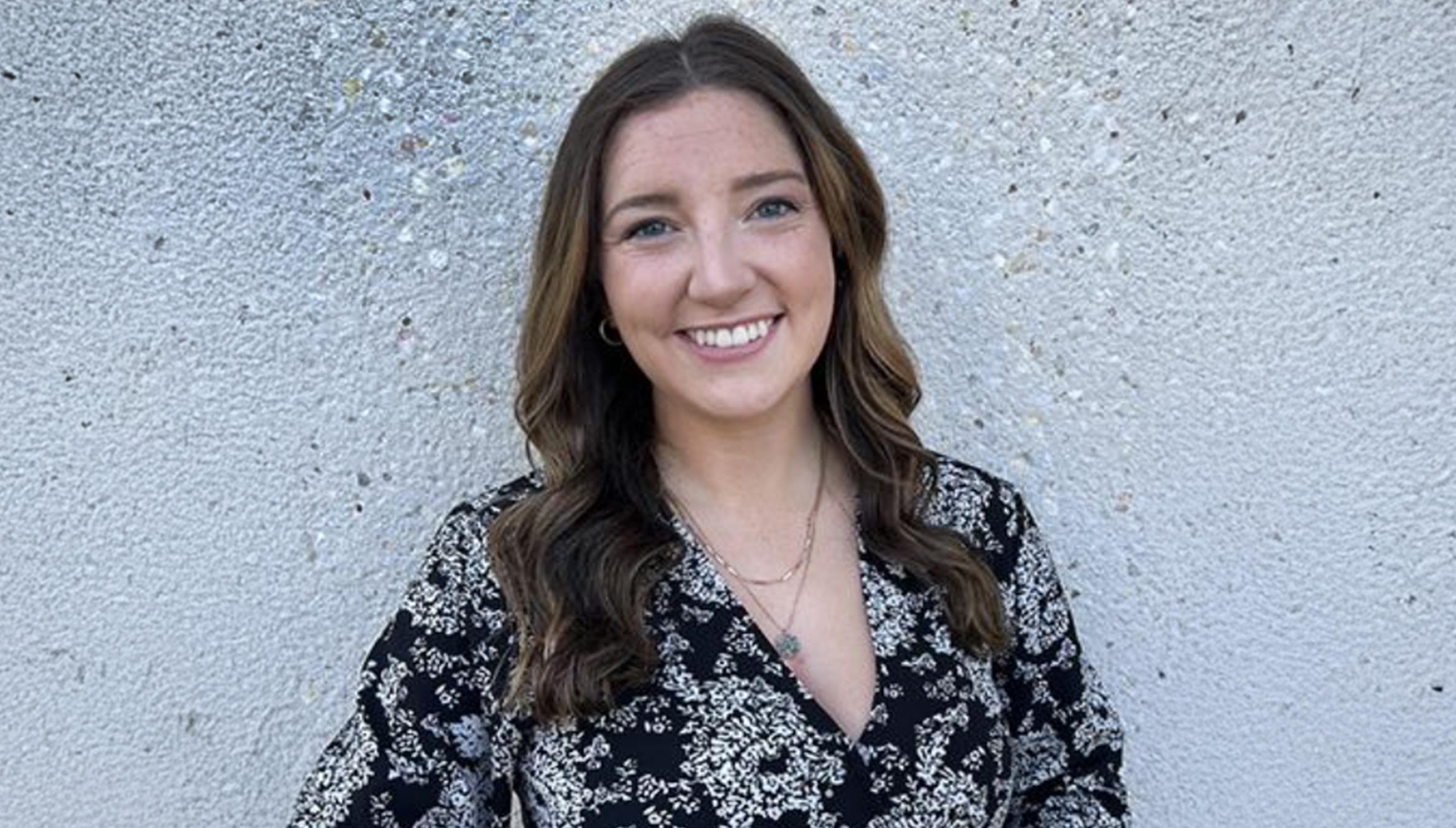
Expanding Access to Justice in Western Maryland
Kelly Swanhart’s Equal Justice America Fellowship
In Fall 2024, with generous support from the Maryland State Bar Foundation, Equal Justice America awarded a fellowship to University of Baltimore School of Law student Kelly Swanhart to continue her work with Maryland Legal Aid’s Frederick office. The grant allowed Swanhart to deepen her commitment to public interest law while making a tangible impact on housing stability and access to justice in Western Maryland.
Swanhart contributed approximately 300 hours of legal service during her fellowship, working 15–20 hours per week while continuing her studies. Her primary focus was on housing law through Maryland Legal Aid’s Tenants’ Right to Counsel Project, where she
The fellowship provided invaluable experience from legal research and writing to court advocacy and applying new legislation in real time. I developed critical skills while helping clients navigate urgent housing crises.
provided supervised direct representation to clients facing eviction and other landlord-tenant issues in both Frederick and Washington County district courts.
“The fellowship provided invaluable experience,” Swanhart reflected, “from legal research and writing to court advocacy and applying new legislation in real time. I developed critical skills


while helping clients navigate urgent housing crises.”
Swanhart maintained a weekly presence in court and contributed significantly to Maryland Legal Aid’s broader legal infrastructure. In addition to her advocacy in eviction cases, she authored three legal memoranda:
A practical summary of recent housing law enactments from the Maryland General Assembly
A family law analysis for cases involving domestic violence
A cross-disciplinary memo on access to hormonal therapy in mental health institutions, highlighting the intersection of health care and legal rights
This cross-practice exposure allowed Swanhart to witness how housing, health, and family legal issues intertwine in the lives of low-income Marylanders—and the essential role legal aid plays in holding those threads together.
“The impact of this fellowship extends beyond my own professional growth,” she wrote.
“The resources I developed will continue to support attorneys and clients at Maryland Legal Aid. And my consistent presence in court helped ensure that vulnerable tenants had access to representation when they needed it most.”
Maryland Legal Aid Chief Attorney Nina Shore praised the fellowship’s value, writing:
“The Fellowship made it possible for Ms. Swanhart to make a difference in people’s lives, and we are sincerely grateful for her hard work and dedication.”
Equal Justice America is deeply grateful to the Maryland State Bar Foundation for supporting Swanhart’s fellowship—and for helping to strengthen the legal safety net for communities across Maryland.

(EJA) is a national nonprofit organization committed to expanding access to civil legal services for low-income individuals and underserved communities. Since its founding in 1993, EJA has funded thousands of law student fellowships at legal aid and civil rights organizations across the country—helping to meet urgent legal needs while nurturing the next generation of public interest attorneys.
Each year, EJA supports hundreds of law students who serve during the summer or academic year at nonprofit legal organizations. These fellows assist clients facing housing instability, domestic violence, healthcare access issues, immigration barriers, and other civil legal challenges—delivering tens of thousands of hours of vital legal service each year.
In addition to its law student fellowship program, EJA has also funded post-graduate fellowships for recent
law school graduates to begin their public interest careers. These opportunities allow new attorneys to make an immediate impact while gaining critical experience and mentorship.
EJA’s dual mission—providing direct legal aid and investing in the public interest pipeline—means that the benefits of our work extend far beyond the duration of any individual fellowship. While EJA fellows serve people in crisis today, they also gain the tools, training, and commitment to remain in public service for years to come.
In Maryland, EJA fellows have served at organizations such as Maryland Legal Aid, advancing civil justice in both urban and rural communities. EJA is honored to partner with the Maryland Bar Foundation to strengthen access to justice and support emerging leaders like Kelly Swanhart.
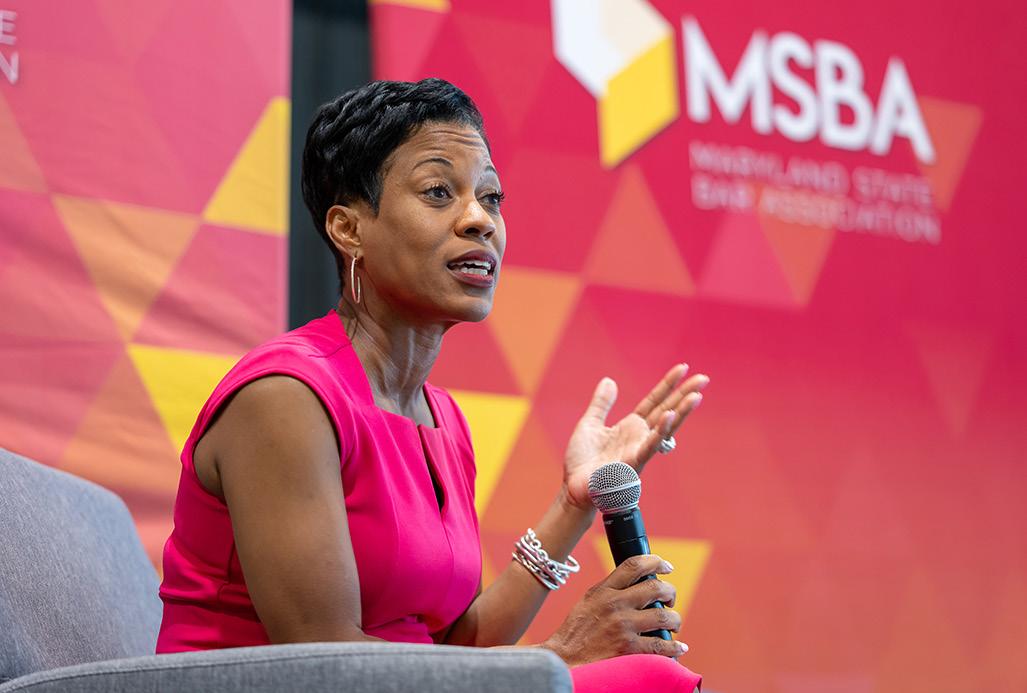
Tisha Edwards on Leadership, Community, and Evolving Career Paths for Attorneys
Tisha Edwards, President and CEO of the Maryland Bankers Association and former Appointments Secretary in the Moore Administration, offered profound insights into her diverse career path, leadership philosophy, and vision for the future of the legal and professional landscape during a captivating fireside chat at the MSBA 2025 Legal Summit & Annual Meeting.
Edwards, who earned a degree in social work from the University of Maryland and her JD from the University of Maryland School of Law, revealed that she "didn't really want to be a lawyer" initially. Her decision to pursue law was influenced by a mentor, Judge Glenda Hatchett, who advised her, "once you become a lawyer, you can do anything" and that she would "have the heart of a social worker and the power of an attorney." This philosophy has guided her journey, as she noted, "my career path has been one of following my passions."
Reflecting on the transferable skills gained from legal training, Edwards emphasized, "the great thing about having the legal training that we all have is that so many of our skills are so transferable." She highlighted her current role at the Maryland Bankers Association as an example. Edwards was encouraged to take the role by U.S. Senator Angela Alsobrooks, who is also an attorney. Senator Alsobrooks impressed upon her that if "you care about community . . . so much of that is really tied to economic opportunity," and that economic opportunity is essential "for children to thrive, for
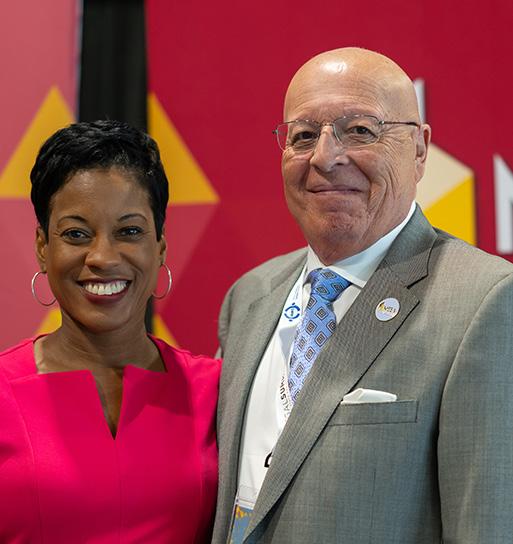
families to be stable and strong." This perspective is the foundation for Edwards's commitment to leveraging her diverse experiences in the nonprofit, government, and political sectors to drive community-centric change within the banking industry.
When asked about her definition of leadership, Edwards pointed to two key attributes inherent in legal professionals: critical thinking and having a voice. She stated, "Lawyers are amazing critical thinkers, and they can be on either side of the issue." Furthermore, she asserted, "Lawyers are advocates and lawyers who bring voice to all kinds of matters." She prides herself on "bringing voice to issues," stating, "my receptive super power really comes through a lot of the training that I receive in law school around how I think and how I process and speak about particular issues."
Edwards also touched upon her transformative work in Baltimore City schools, where she served as a high school
She highlighted the critical role of lawyers in representing everyone, regardless of the personal challenges involved in this work.
Regarding the non-traditional legal career path, Edwards encouraged attorneys to embrace risk and recognize the evolving workforce. She observed that younger generations are "very entrepreneurial" and have a different mindset about work, prioritizing life outside of their professional roles. Edwards urged "traditional lawyers and non-violent lawyers" to expand their skillsets and "dabble in this new world to work around workforce and leadership." She firmly believes "there's no such thing as a traditional way or a non-traditional way. We're all new professionals that can move in a lot of different places and spaces."
On the topic of maintaining a work-life balance, Edwards humorously stated, "I don't." However, she advocates for a "soft life" and believes that "work in this country has gotten out of control." She desires her legacy to be more than just a "great worker," but someone who "decided to live one big life."
A significant portion of the discussion focused on the importance of sponsorship over mere mentorship. Edwards explained that while "mentorship is about guidance, it's about development," sponsorship is "about putting that woman in the room, in the place for her to grow, thrive, and have you denied opportunity." She highlighted the need for women to actively create opportunities for each other, just as men often do through informal networking. As the only Black woman to
A
staunch advocate for diversity, equity, and inclusion, Edwards, a first-generation college graduate, believes she is "a very good example of the importance of representation and opportunity and the value of representation and opportunity."
principal and later as interim CEO. She credited her experience as a principal with teaching her that "you don't give up on kids." Her achievements in education include expanding school choice, securing more funding for schools, and spearheading the development of new buildings in Baltimore City.
A staunch advocate for diversity, equity, and inclusion, Edwards, a first-generation college graduate, believes she is "a very good example of the importance of representation and opportunity and the value of representation and opportunity." She passionately stated, "organizations, communities, the world is better the more diverse" and emphasized the responsibility of everyone to "call that out and do something about it" when diversity is lacking, noting that diversity encompasses not just gender and race, but also age and geography.
Addressing the challenges faced by public servants and those supporting marginalized communities, Edwards expressed concern about how such work is "becoming weaponized," making it "unsafe for us personally and professionally."
lead a state bankers association in the country, Edwards has already implemented changes, refusing to sign off on events without diverse keynote speakers or procurement contracts that don't include minority and women-owned businesses. Finally, addressing a question about the Maryland Bankers Association's historical stance against protections for vulnerable populations, Edwards acknowledged that the banking industry "does not have a good reputation in a lot of minority communities" and with consumers. She intends to change this through increased "conversation and collaboration" and by fostering relationships outside of legislative sessions. Edwards believes that a "new day" has arrived for the industry, which must become "much more collaborative, much more into the community's country." She expressed excitement to "rebuild the reputation, give us the community and the partnership with organizations around some of these issues."

Maryland Access to Justice Commission’s New Strategic Vision
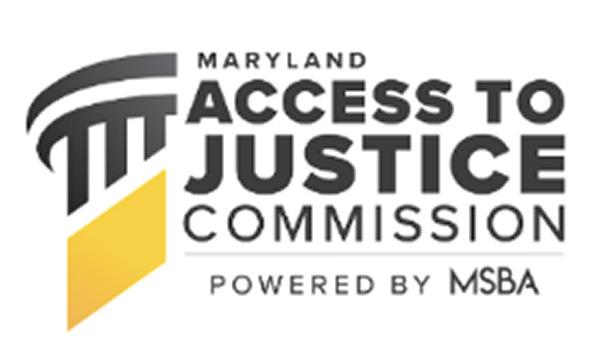
BY REENA SHAH, ESQ.
The Innovations Task Force is studying the vast number of reforms that are happening in other states to add tiers of professionals within the law to meet the crushing unmet need for civil legal services.
THE MARYLAND ACCESS TO JUSTICE COMMISSION (A2JC) exists to ensure civil justice for all. As an umbrella organization that unites leaders to drive reforms and innovations to make the civil justice system accessible, equitable and fair for all Marylanders, in FY2025, A2JC leveraged strategic partnerships to enhance our understanding of the barriers in the civil justice system and successfully advocated for solutions that would make a meaningful difference in the lives of Marylanders. We’re happy to report on our achievements and impact from FY2025.
Thought Leadership
IN PARTNERSHIP with the Office of the Attorney General, A2JC led the statutorily mandated Access to Counsel in Evictions Task Force, which laid out the roadmap for the implementation of this transformational law and brings together all the stakeholders involved in the implementation of the law to share information, problem-solve and build consensus on areas of reform. A2JC worked to deliver its annual report to the state legislature and governor, recommending and highlighting the need for permanent funding.
IN PARTNERSHIP with the Maryland Judiciary and Maryland State Bar Association, A2JC co-leads the Innovations in Tiered Legal Services Task Force. The Innovations Task Force is studying the vast number of reforms that are happening in other states to add tiers of professionals within the law to meet the crushing unmet need for civil legal services. The Innovations Task Force launched in September of 2024 and expects to deliver a report in the first half of FY26.
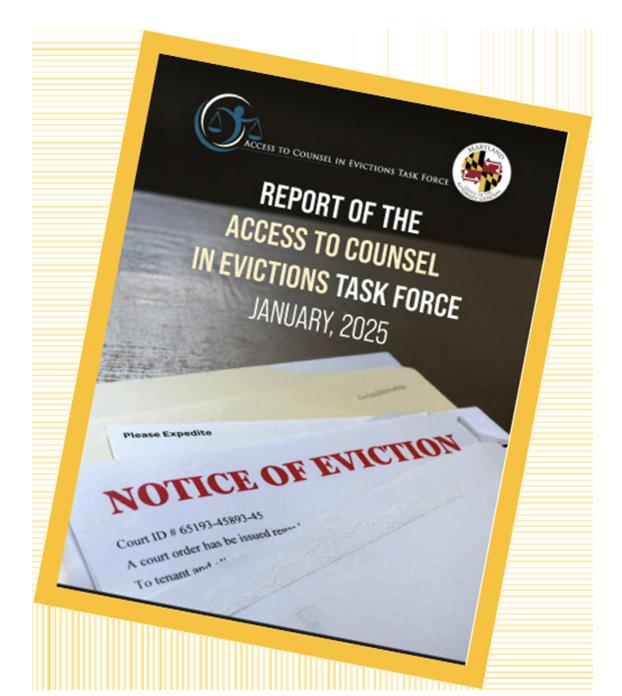
Advocacy
IN PARTNERSHIP with the Maryland Legal Services Corporation, the Office of Attorney General and the civil legal aid organizations who implement the Access to Counsel in Evictions Program, A2JC helped lead the effort in this very tough budget year to successfully advocate for $14M in additional funding for the Access to Counsel in Evictions Program. Investing in legal representation increases fairness, stabilizes families and communities and costs the state less than it would to evict a family. What the ACE law also has proven is that providing legal representation to tenants improves case outcomes dramatically and keeps 88% of Marylanders who want to stay in their homes, housed.
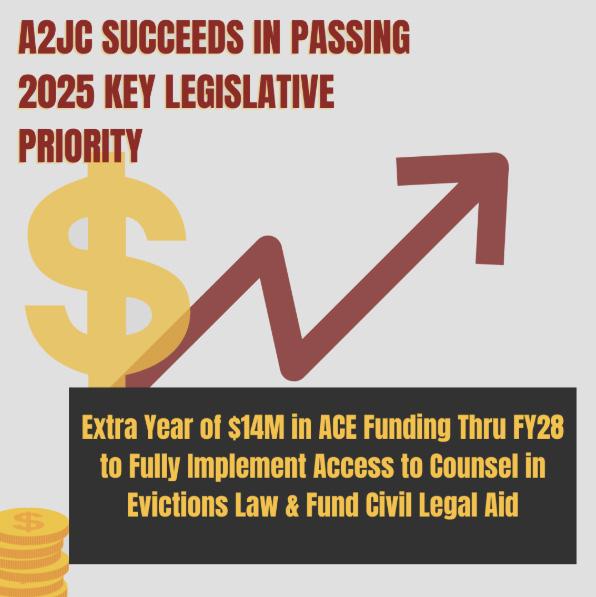
Data Collection, Mapping, and Analysis
The lack of civil justice data is a barrier to civil justice for all. Until recently, facts and figures related to the civil justice system were hard to come by and not accessible in a way that allowed for data visualization, data analysis or data-informed policy making. A2JC has been on a mission to change that by creating first-of-their-kind data tools to reveal insights and trends. A2JC collates data and presents it in a way that is easily digestible by decision makers to understand the scale of the civil justice problem and it creates tools that can be used by civil legal aid organizations to create efficiencies and improve service delivery.
ACCESS TO JUSTICE ASSET AND RESOURCE MAP
IN PARTNERSHIP with the MidShore Council on Family Violence, A2JC created an Access to Justice GIS Map that visualizes the civil justice system and the resources available to Marylanders to assist them with their legal and related non-legal problems. The tool can be used by organizations
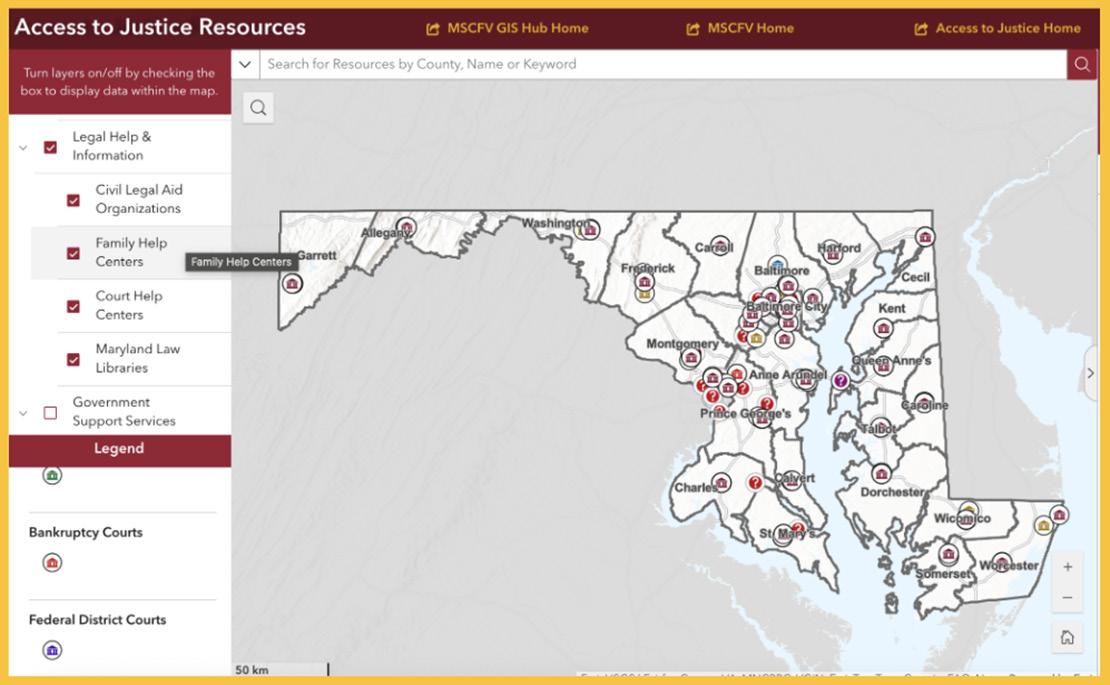
to quickly identify and point clients to resources and services. The map is also an important analytical tool to identify legal deserts and underresourced areas with high need.
STATE AND COUNTYSPECIFIC ONE-PAGERS
All the information about how the civil justice system impacts a county and the state, all in one place, updated annually.
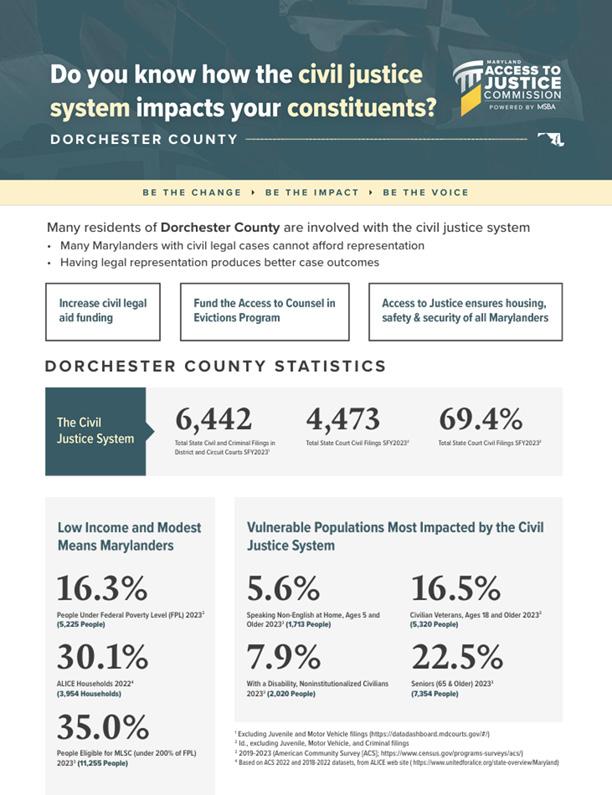
Until recently, facts and figures related to the civil justice system were hard to come by and not accessible in a way that allowed for data visualization, data analysis, or data-informed policy making.

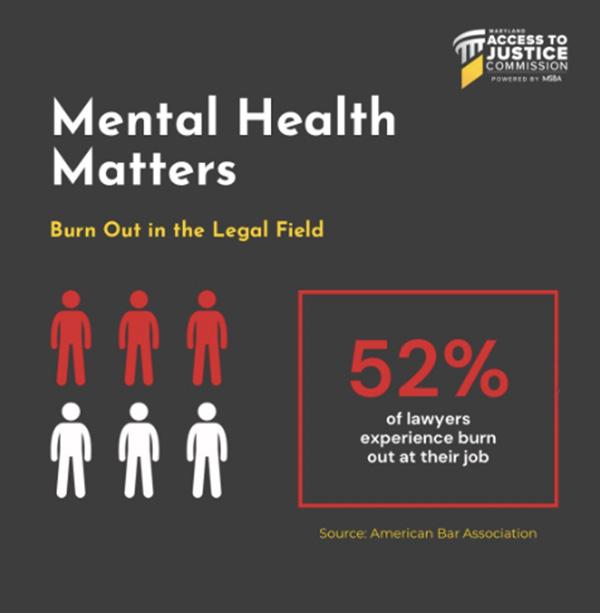
Storytelling
IN PARTNERSHIP with the Maryland Legal Services Corporation, A2JC produced a six minute professional video to raise awareness among the public and with decision makers to underscore the importance of civil legal aid, how it connects to basic human needs, the urgent
Mental Health IN PARTNERSHIP
with Maryland State Bar Association’s Lawyer Assistance Program, A2JC helped organize a four part series on Secondary Trauma to help address a mental health need prevalent in the civil legal aid community.
LEARN MORE
need for funding and the need to fight for a right to counsel in other civil legal matters that implicate basic human needs. The video will be aired locally and nationally on public television on the Empowered with Meg Ryan television show. This is in addition to delivering a curated monthly called the A2J Dispatch, weekly blog posts and almost-daily social media posts.
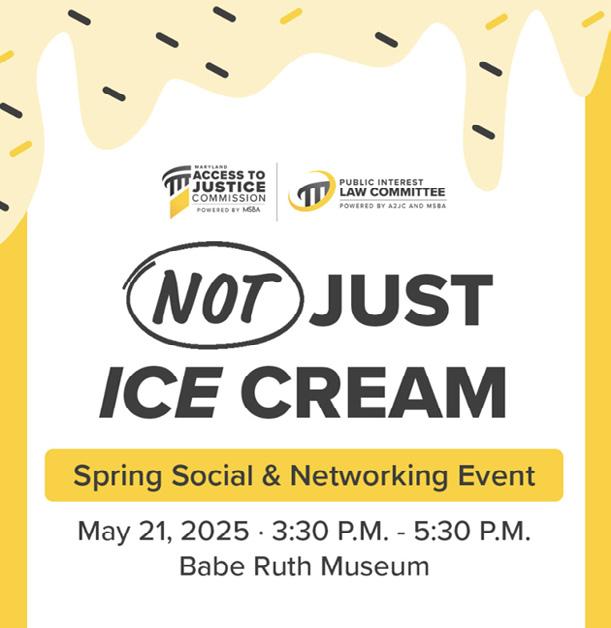
Public Interest Community IN PARTNERSHIP
with its Public Interest Law Committee, A2JC is helping build and foster a strong public interest law community within the Maryland State Bar Association. Through monthly meetings, thoughtful programming and fun networking events, we are creating a welcoming space for public interest attorneys and professionals and those who champion the public interest perspective, to thrive within the MSBA!
A2JC would love to get you involved in our work!
For more information, visit www.mdaccesstojustice.org. Volunteer with us: https://www.mdaccesstojustice.org/ give-help/volunteer/. Follow us on social media - we are on LinkedIn, Facebook, Instagram and X. Or signup for the A2J Dispatch here; https://www.mdaccesstojustice.org/our-impact/.
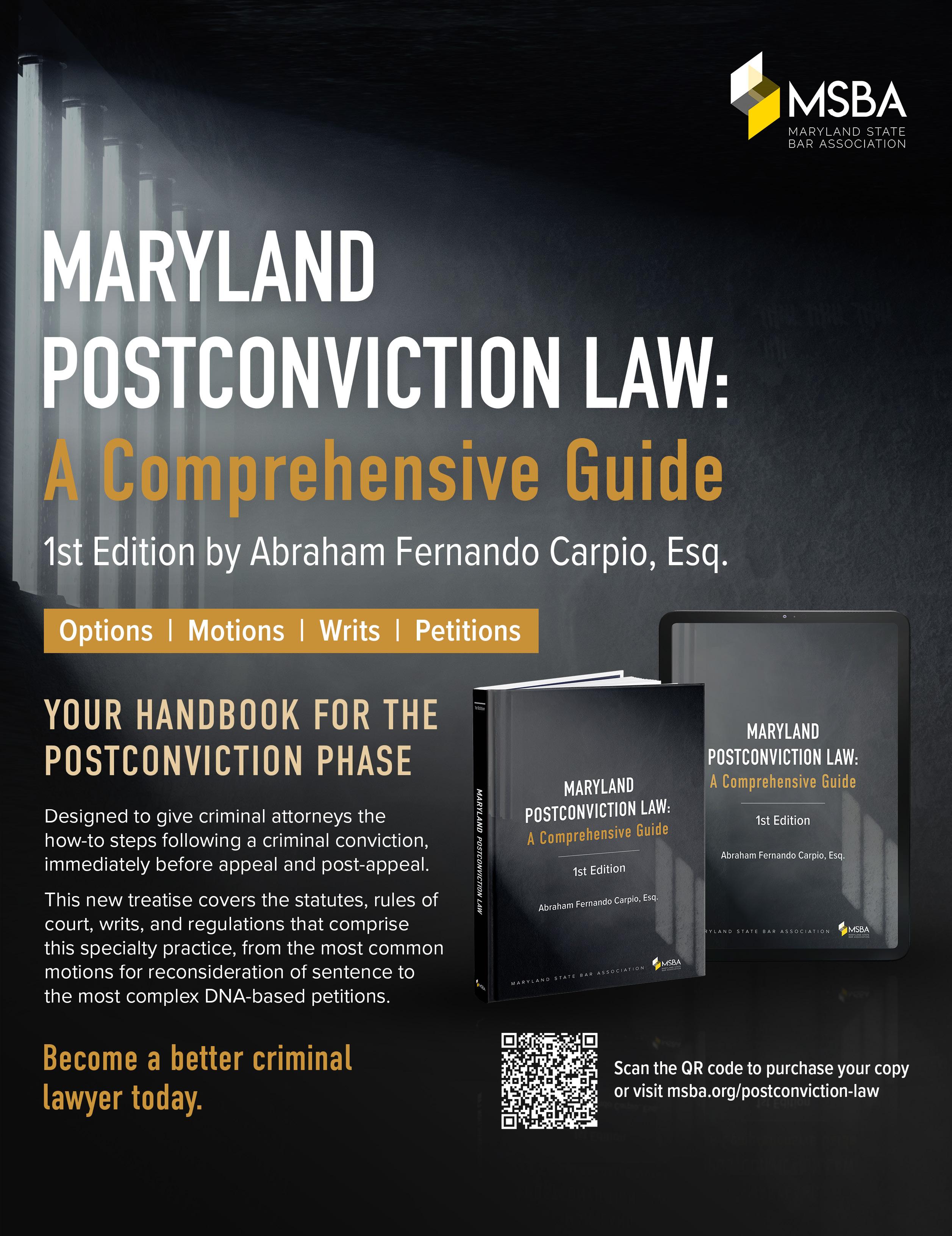

Can Maryland Revolutionize the Office of Public Defenders with Social Workers as Legal Paraprofessionals?
BY SHAUNTIA’ D. WHITE, LMSW, MS

WITH MARYLAND’S PUBLIC DEFENSE SYSTEM grappling with staffing shortages, growing caseloads, and persistent inequities, a bold question emerges: Could the state revolutionize its Office of the Public Defender (OPD) by integrating legal paraprofessionals (LPs)—trained, licensed, and rooted in community expertise—into the front lines of representation? As of 2023, Maryland’s public defenders were handling over 25,000 felony cases annually, often under conditions that exceed recommended caseload limits and stretch resources thin.1 This article explores how interdisciplinary approaches—particularly those bridging law and social work—could help address accessto-justice challenges while reimagining the traditional boundaries of legal practice.
Understanding LPs and the Risks of Their Implementation LPs—analogous to Nurse Practitioners (NPs) in the medical field—are credentialed professionals with specialized education and experience, authorized to provide legal services within a defined scope of practice. Their integration into Maryland’s legal system could substantially expand access to justice, particularly for underserved communities. LPs could potentially handle specific areas of law such as family law, landlord-tenant disputes, and debt collection, with potential for further expansion into limited
jurisdiction civil matters, criminal law, juvenile court, and state administrative law. Maryland has the opportunity to model its LP framework after Arizona’s successful integration, rather than following the more limited models seen in states like Texas, or the nascent programs in Washington, D.C. This approach would allow Maryland to build on a proven, comprehensive model, unlike the more restrictive or underdeveloped frameworks in other states such as Colorado, Minnesota, New Hampshire, Oregon, and Utah.
As LPs are granted increasing autonomy without a robust accountability framework, concerns arise regarding the long-term risk of legal missteps, particularly when working with historically marginalized communities.
To gain a deeper understanding of the potential and challenges inherent in the role of LPs, it is useful to draw parallels with healthcare paraprofessionals—specifically NPs and physician assistants (PAs). In healthcare, NPs and PAs have long been recognized as essential extensions of clinical practice, taking on roles traditionally reserved for physicians, such as diagnosing conditions, prescribing treatments, and educating patients, to address nationwide shortages. These duties are typically carried out within a structured framework of physician oversight or collaboration. Yet, there is little empirical evidence examining whether LPs, granted similar professional autonomy, face comparable risks of legal missteps as NPs or PAs, particularly when serving vulnerable populations.
In a 2020 article, Opioid Prescribing by Primary Care Providers: a Cross-Sectional Analysis of Nurse Practitioner, Physician Assistant, and Physician Prescribing Patterns, authors found that allowing NPs and PAs to prescribe opioids or perform surgeries without sufficient oversight may increase the risk of overprescribing or inadequate care. When examining 222,689 primary care providers, 3.8% of MDs, 8.0% of NPs, and 9.0% of PAs met at least one definition of overprescribing. Additionally, 1.3% of MDs, 6.3% of NPs, and 8.8% of PAs prescribed opioids to at least 50% of their patients. Notably, NPs and PAs practicing in states with independent prescribing authority were 20 times more likely to overprescribe opioids than their counterparts in prescription-restricted states.2
A related study exploring opioid prescribing in primary care found that patients more likely to receive chronic opioids were female, Black or African American, and had comorbidities such as mental health diagnoses, substance use disorders, or
concurrent benzodiazepine use. Medical providers also reported challenges in weaning stable long-term patients off opioids due to limited non-opioid alternatives and concerns about clinical justification.3 As LPs are granted increasing autonomy without a robust accountability framework, concerns arise regarding the long-term risk of legal missteps, particularly when working with historically marginalized communities. Arizona’s LP framework, which integrates non-lawyers into legal practice, provides a model for expanding access to justice while maintaining structural and institutional accountability. However, Maryland’s greater racial and ethnic diversity, along with the more pronounced racial disparities and attorney shortages within its OPD, presents unique challenges. 4
Maryland’s Public Defender’s 2024 Report and the Potential Role of LPs
Maryland’s OPD system is facing a critical attorney shortage, with only 409.5 assistant public defenders assigned to adult criminal practice statewide, falling short of the 956.5 attorneys needed to meet national standards. This deficit is particularly alarming given the recent surge in serious criminal cases. In fiscal year 2024 alone, Maryland’s adult criminal caseload increased by over 2,000 cases, with homicide cases rising nearly 20%. The backlog has stretched both district and circuit courts beyond capacity, with many cases lingering unresolved from previous years. These systemic challenges are compounded by persistent racial disparities: African Americans comprise 32% of the state’s prison population despite making up just 31% of Maryland’s residents. Communities of color are disproportionately affected by serious offenses, further highlighting the need for targeted, equitable reforms.
To fulfill its constitutional and ethical obligations, the question remains: should Maryland consider adopting a forward-thinking approach akin to Arizona’s, embracing innovative strategies to fortify and modernize its public defense infrastructure? One promising approach that no other state has taken is integrating social workers as LPs within the public defender system, particularly in criminal law, where underlying social factors such as mental illness, substance use, and housing instability often shape legal outcomes. LPs, trained to handle specific legal tasks under attorney supervision, could relieve pressure on public defenders by drafting motions and responses, interviewing witnesses, handling discovery and redactions, conducting legal research, providing procedural support, and enhancing efficiency in lower-level cases. When embedded in defense teams, LPs can contribute to improving client engagement, ensuring timely representation, and addressing the underlying factors that contribute to justice system involvement.
2 Lozada, M.J., Raji, M.A., Goodwin, J.S. et al. Opioid Prescribing by Primary Care Providers: a Cross-Sectional Analysis of Nurse Practitioner, Physician Assistant, and Physician Prescribing Patterns. J GEN INTERN MED 35, 2584–2592 (2020). https://doi.org/10.1007/s11606-020-05823-0.
3 Tong, S. T., Hochheimer, C. J., Brooks, E. M., Sabo, R. T., Jiang, V., Day, T., Rozman, J. S., Kashiri, P. L., & Krist, A. H. (2019). Opioid prescribing by primary care clinicians in the United States: A cross-sectional study. The Annals of Family Medicine, 17(3), 200-206. https://doi.org/10.1370/afm.2357.
4 A state more racially and ethnically diverse than Arizona, Maryland has greater racial disparities in the criminal justice system compared to Arizona, with African Americans comprising 32% of Maryland’s prison population despite being only 31% of the state’s overall population, while in Arizona, African Americans make up 16% of the prison population despite being only 5.5% of the state’s total population. This indicates that Maryland’s criminal defense system is under significant strain, with a rise in serious cases like homicides and sex offenses, which disproportionately affect communities of color, highlighting the broader racial disparities within the justice system.
Maryland’s OPD system is facing a critical attorney shortage, with only 409.5 assistant public defenders assigned to adult criminal practice statewide, falling short of the 956.5 attorneys needed to meet national standards.
How Can OPD Benefit from Social Workers as LPs?
The 2024 Maryland OPD report highlights a critical staffing shortfall, with only 29 social workers to assist over 550 attorneys—a far cry from the national standard ratio of one social worker for every eight attorneys. This staffing gap has hindered the ability to provide adequate services, especially in district courts where individuals with behavioral health issues may face repeated cycles of arrest and incarceration due to a lack of appropriate intervention.
As the report suggests, integrating social workers as LPs could directly address this issue by providing critical support to marginalized populations and those at risk of recidivism. In 2020, the American Bar Association reported that 60% of low-income individuals facing legal problems also experience non-legal barriers, such as mental health challenges, housing instability, and lack of access to basic resources–factors that often hinder clients’ ability to engage effectively in legal proceedings, leading to in missed court dates, noncompliance, or poor decision-making. Similarly, a study by the Urban Institute in 2019 found that clients who received both legal and social services were 35% more likely to achieve positive legal outcomes than those who received only legal assistance. Further supporting this holistic approach, the Legal Services Corporation’s 2022 report revealed that
clients receiving integrated legal and social support were 50% less likely to face recurring legal issues within a year. These findings highlight the critical role of addressing social determinants of health in improving legal outcomes and more effective access to justice.
In addition to assisting with case management, behavioral health assessments, and linking defendants to treatment programs at the micro level, their LP distinction could also improve long-term outcomes for defendants while alleviating some of the pressure on public defenders handling heavy caseloads. In Maryland, where the OPD managed over 128,000 criminal cases in FY2024, the role of macro social workers serving as LPs can also contribute to the criminal defense process: (1) providing consultation and legal advice; (2) representation in court; (3) document preparation; (4) investigation and case preparation; (5) client advocacy and support; and (6) collaboration with attorneys.56
Moving forward, broadly speaking, the implementation of Arizona’s model in Maryland could significantly improve outcomes for vulnerable populations while strengthening the integrity of the criminal justice system across the state of Maryland.
Expanding the Role of LPs in Public Defense: A Path to Integration Although paralegals have traditionally been viewed as the next tier of support
5 Arizona Judicial Branch. (n.d.). Legal paraprofessional program. https://www.azcourts.gov/cld/LegalParaprofessional.
6 LPs in Arizona with a criminal law endorsement can represent clients in a range of misdemeanor cases only if incarceration is not at issue, including eligible charges such as simple cannabis possession, possession of paraphernalia, disorderly conduct, low-level domestic violence offenses (when prosecutors and courts agree to no jail time), trespass, threats, criminal damage, shoplifting under the legal threshold, misdemeanor assault, and in some cases, driving on a suspended license—but they may not represent clients in felonies or misdemeanors where jail time is possible, such as possession with intent to sell, domestic violence involving injuries or weapons, or repeat DV offenses (Arizona Judicial Branch., n.d.)

within the legal profession, a critical question emerges: Should Maryland’s Office of the Public Defender lead the nation in expanding this paradigm to formally include social workers as LPs, thereby advancing a more holistic and interdisciplinary model of client advocacy? While not necessarily a universally accepted solution, this approach could serve as a strategically significant measure to mitigate staffing shortages and respond to the mounting demands placed on public defense services. Despite its potential, the state has yet to establish a comprehensive framework for systematically integrating nonlawyer service providers into such roles, both within OPD and across the broader legal system—a foundational step toward realizing more innovative, interdisciplinary models of legal service delivery.
Notably, Maryland’s OPD currently faces a shortfall of 196 social workers to meet national benchmarks, highlighting the urgency of expanding their roles within the criminal defense system. Such integration could dramatically improve the quality of legal representation, particularly for vulnerable populations grappling with behavioral health challenges. If social workers, when embedded in defense teams, bring both the tools and insight necessary to foster a more compassionate and equitable justice system, then one must ask: What systemic barriers continue to hinder the full integration of social workers into the front lines of criminal defense, and how might we design pathways to overcome them and institutionalize new legal tiers in Maryland’s legal systems?

Shauntia White, LMSW, MS, is a licensed social worker in Maryland and Arizona who was appointed by Arizona Supreme Court Chief Justice Ann A. Scott Timmer to serve on the Board of Nonlawyer Legal Service Providers. White is one class away from completing a Master of Legal Studies with a concentration in Legal Paraprofessional Studies (Criminal Law Track) at the University of Arizona’s James E. Rogers College of Law, after which she will sit for the Legal Paraprofessional licensing exam through the State Bar of Arizona.
Wolters Kluwer Legal & Regulatory U.S. Proudly Announces the Latest Supplement of Maryland Corporation Law
by James J. Hanks, Jr., Senior Counsel, Venable LLP
Celebrating 35 Years of Publication!
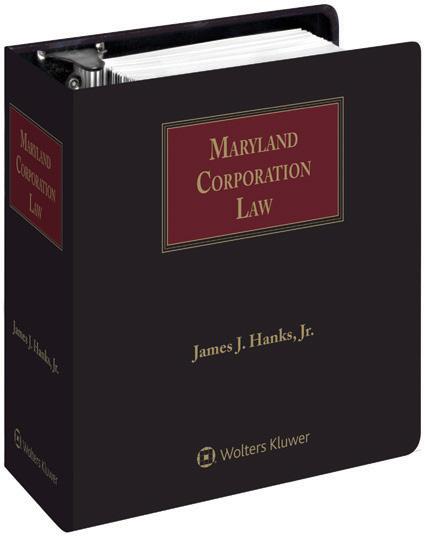
Maryland Corporation Law, including 2024 Supplement, #10086770-7777.
Cited by Judges and Lawyers in Maryland and Elsewhere
Maryland Corporation Law is the first fulllength treatise on Maryland corporation law in more than 70 years. Since then, there has been a complete recodification of the Maryland corporation statutes, dozens of other statutory amendments, and many important cases decided by Maryland and other courts applying Maryland law. Maryland Corporation Law is the first and only work to survey all of these developments.
Written by one of Maryland’s most respected and experienced corporation lawyers, Maryland Corporation Law is based on the most thorough research ever undertaken for a book on this subject. Every volume of the Maryland Reports and Maryland Appellate Reports — as well as many other sources — was reviewed page by page to discover all cases dealing with Maryland corporation law issues since 1658.
The book contains many easy-to-use forms, including articles of incorporation, bylaws, organizational and other minutes, board and stockholder resolutions, articles of merger, articles of amendment, articles of transfer, and articles of dissolution. All are specific to Maryland. This Supplement also includes the author’s analysis of recent statutory and case law developments.
“The leading commentator on Maryland corporation law”
Judge Robert W. Sweet
United States District Court for the Southern District of New York
“Scholarly, authoritative and practical ... the next best thing to a unanimous Supreme Court of Maryland decision!”
Max
Stul Oppenheimer
Professor of
Law,
University
of Baltimore School of Law
To order call 800-234-1660 or visit WoltersKluwerLR.com/store
Bridging the Justice Gap: The Vital Role of Volunteers in Increasing Access to Justice in Maryland

THE IDEAL OF "JUSTICE FOR ALL" stands as a cornerstone of our society. Yet, for a significant portion of Marylanders dealing with the civil justice system, this ideal remains frustratingly out of reach. Unlike in criminal cases, there is no constitutional right to an attorney in most civil legal matters. This stark reality leaves individuals facing life-altering issues, from housing and economic security to instances of abuse, to navigate a complex legal landscape without professional guidance, simply because they cannot afford it. This disparity disproportionately affects low-income individuals, those of modest means, and communities of color. Astonishingly, nearly 40% of Marylanders struggle to meet basic needs, making the prospect of hiring legal counsel an impossibility. Compounding this crisis, a staggering 75% of this vulnerable population will likely confront at least one civil legal issue annually, with a shocking 92% receiving little to no adequate legal assistance, often leading to dire and unjust outcomes.
Recognizing this critical imbalance, the Maryland Access to Justice Commission (A2JC) was established to dismantle the systemic barriers that prevent equal access to the civil justice system. The Commission works tirelessly to ensure that justice in Maryland is not a privilege reserved for those who can afford it, but a right accessible, equitable, and fair for all. To achieve this ambitious mission, the A2JC engages in a multifaceted approach. It amplifies the voices of those navigating the civil justice system through compelling stories, highlighting both the obstacles they face and potential solutions. Furthermore, the A2JC tackles the critical issue of data scarcity within the civil justice system by developing innovative data tools that collect, visualize, and analyze fragmented information, providing crucial insights for data-informed policy decisions. Through its Data Hub and Advocacy Hub, the Commission promotes transparency, advocates for policy changes before key decisionmakers, and empowers the public to lend their voice to reform efforts. Ultimately, the A2JC champions increased public funding for civil legal aid and the expansion of the right to counsel in civil matters, proven solutions to bridge the justice gap.
However, the profound challenges inherent in ensuring access to justice for all Marylanders necessitate a collective effort. With only one paid staff member, the A2JC relies heavily on the dedication and expertise of volunteers to plan and implement its vital projects. These committed individuals form crucial partnerships with community and legal organizations, lending their time and skills to a wide range of initiatives. From assisting with outreach and communication to contributing their legal acumen and organizational prowess, volunteers are the backbone of the A2JC's operations. Their passion and commitment are indispensable in amplifying the Commission's reach, expanding its capacity, and ultimately bringing Maryland closer to a reality where justice is truly accessible to everyone, regardless of their economic circumstances.
We recently interviewed some of A2JC’s volunteers to highlight their work, which is not just helpful but absolutely essential to the Commission's mission of breaking down barriers and building a more just society for all.
I'm lucky to be where I am and with who I am. And I owe much of that to the Maryland Bar and the legal profession as a whole, where I swore to act honorably and support the laws and Constitution.
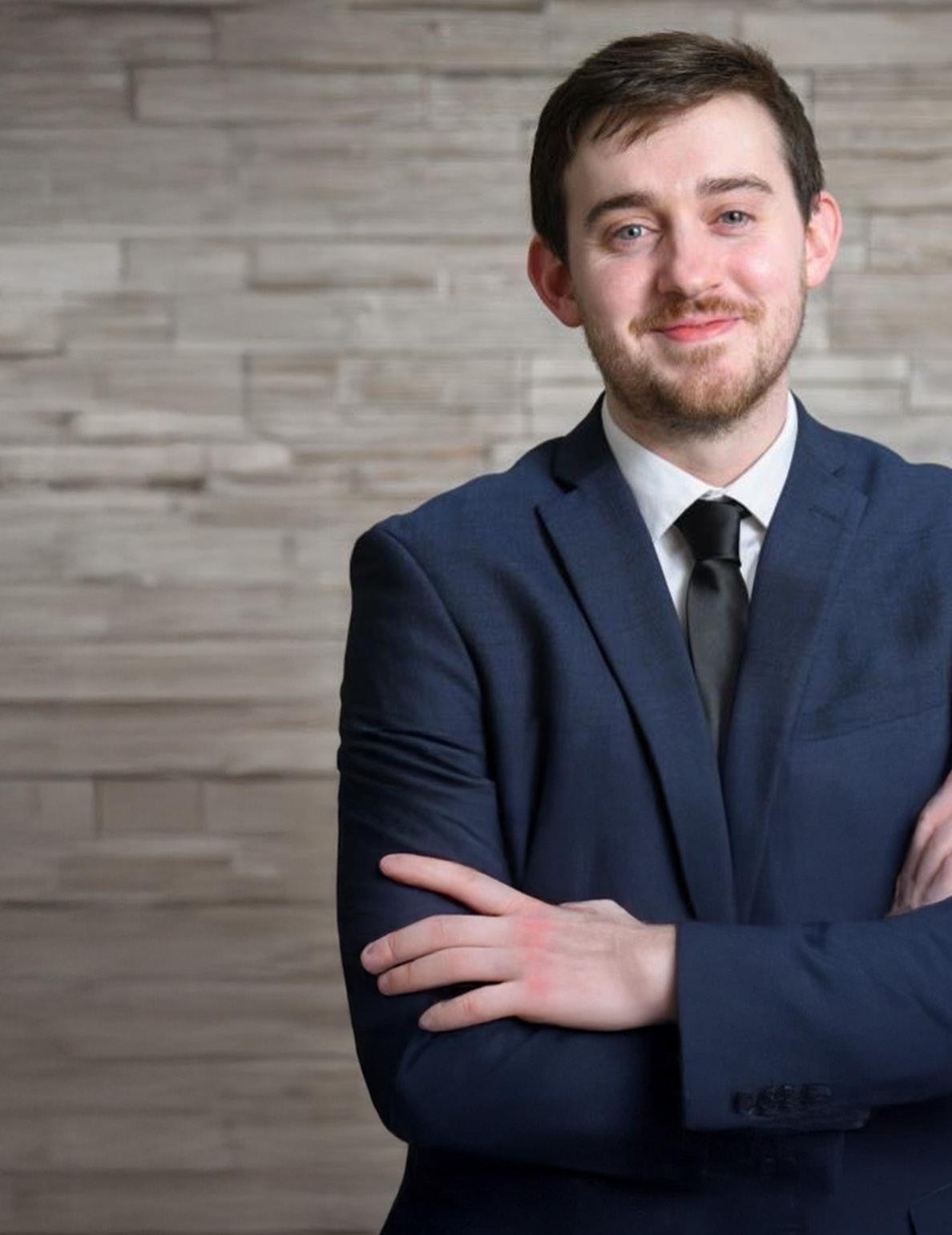
Brian Thackston
Tell us about yourself:
I'm a marketer, operations consultant, lawyer, and agency founder. I help other attorneys, accountants, and professionals save time by improving their firms’ systems.
I am a proud graduate of the University of Baltimore School of Law, home of the great Eubie. I am a SUPER LAWYER ® Rising Star and a member of the Maryland State Bar Association.
I do not actively practice law. I get my energy from supporting professionals who want to build on great ideas. Websites, apps, ad campaigns, systems, processes, and more. Ideas are easy; it’s the concerted execution that is invaluable.
Why did you choose to volunteer with the Maryland Access to Justice Commission?
A2JC made it easy to volunteer. As a non-practicing attorney on an atypical professional path, the MSBA team gave me creative ways to support important legal efforts. I had no real excuse other than to get involved and walk the walk.
I'm lucky to be where I am and with who I am. And I owe much of that to the Maryland Bar and the legal profession as a whole, where I swore to act honorably and support the laws and Constitution. I’m grateful for the volunteering opportunities to support that mission and meet wonderful new people in ways that suit me best.
What are your plans for the future?
In the future, you may find me doing some work combining genuine and artificial intelligence. And I hope I’ll continue to work with other interesting people and technologies shaping the legal profession.
Otherwise, the day you stop learning is the day you start dying. So I aim to keep learning and applying what I learn in the legal industry and beyond. I want to do work that is that kind of powerful alongside the folks I’ve met through institutions like A2JC and other satisfying projects.
I love working together with good folks who want to build great things. So, I hope anyone reading this considers doing the same by connecting and working with A2JC.
Julianna Wells
Tell us about yourself:
I was born and raised in New Jersey, where I earned my Bachelor’s degree in Political Science, graduating summa cum laude with additional Certificates of Undergraduate Studies in Spanish and Public Policy. I come from a second-generation immigrant household and am proud to be the first in my family to graduate from college. Some of my most meaningful college experiences came from serving as President of the United Latino Association, competing with the Equestrian Team, and participating in the Phi Alpha Delta Pre-Law Fraternity. These roles not only strengthened my leadership skills but also deepened my commitment to advocacy and community-building.
Since graduating nearly two years ago, I have focused on preparing for law school while gaining hands-on experience through my internship with the Maryland Access to Justice Commission. In addition to interning, I work nearly full-time at a local restaurant, where I was recently promoted to a management position.
Why did you choose to volunteer with the Maryland Access to Justice Commission?
I chose to volunteer with the Maryland Access to Justice Commission because I truly believe that civil justice should be available to everyone, no matter their background or income. In college, I took a range of classes, from poverty and civil law to state and local government, that really helped me understand how closely civil justice issues are tied to the everyday lives of people in our communities. My time leading the United Latino Association was a big influence, too, as it pushed me to keep advocating for underserved communities even after graduation. Volunteering with the Commission felt like a natural next step. It gave me the chance to take what I learned in the classroom and apply it in a way that actually supports people and aligns with the kind of work I want to do long-term.

After graduating, I spent a lot of time searching for volunteer opportunities that would help me get more experience in the legal field. I regularly checked local county websites, hoping to find something that combined hands-on learning with meaningful impact. That’s how I came across the Maryland Access to Justice Commission. It really stood out to me as a place where I could grow, contribute, and stay connected to the kinds of issues I’m passionate about.
What are your plans for the future?
Attending law school has long been a central goal of mine. I am currently preparing to apply to programs along the East Coast, with the ultimate aim of pursuing a career in public interest law. I’m especially passionate about advocating for women’s rights and immigration reform, and I hope to work at the intersection of these fields to help create a more just and equitable legal system for all.
In addition to my professional aspirations, I also have a long-term personal goal: to one day own a horse of my own. Horses have been a lifelong passion of mine, and being able to care for and ride one regularly would be a dream come true. It’s a goal that keeps me motivated both in and outside of my career path.
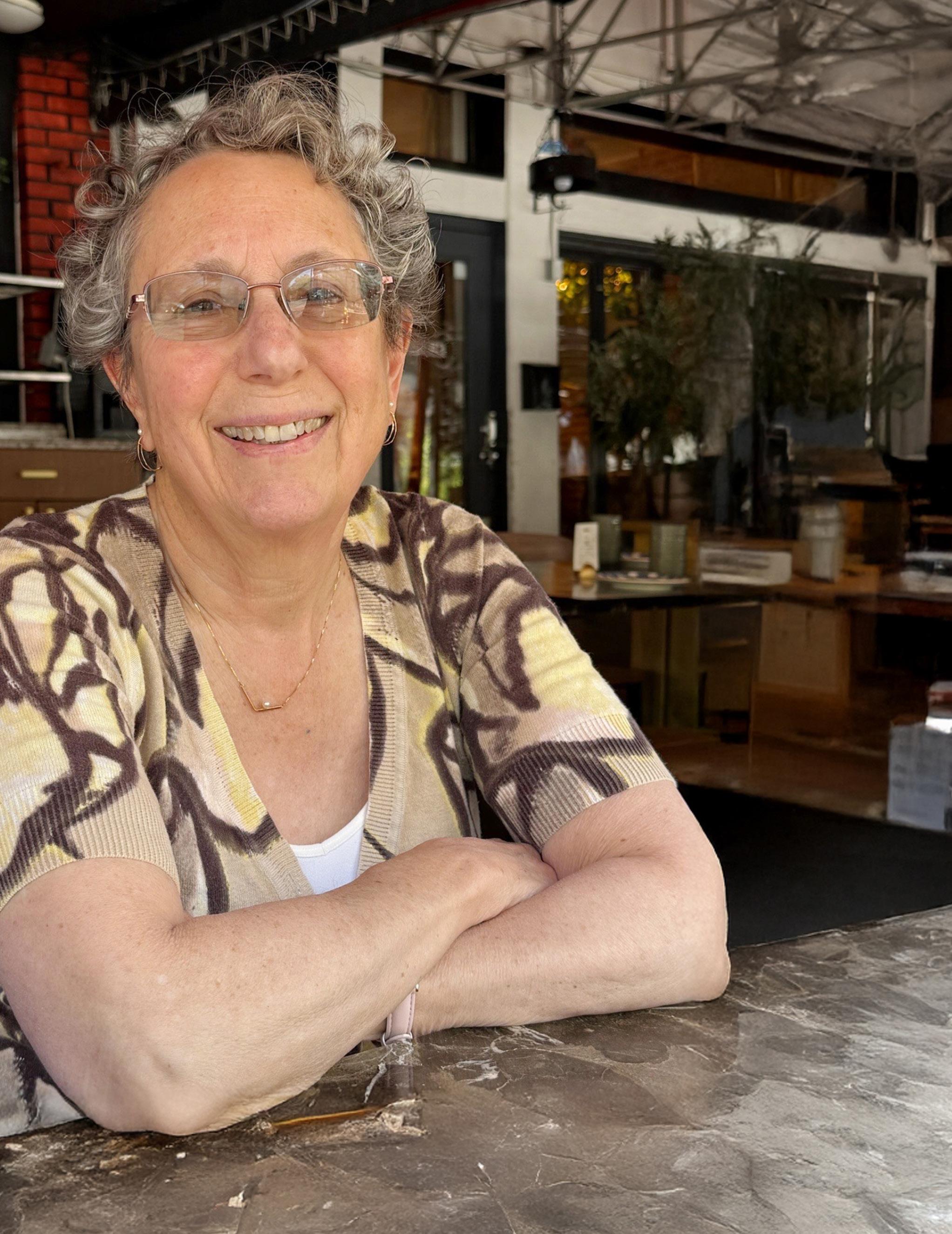
Carolyn Lichtenstein
Tell us about yourself:
I have a Ph.D. in Statistics. I moved to Washington, DC, after graduate school so I could work on projects related to the Federal government. I did not want to work for the government per se because I did not think the jobs for statisticians were particularly interesting. I initially worked at several consulting firms that were not, in fact, supported by Federal contracts. Finally, in 1990, I pivoted slightly to learning about program evaluation as a field and working on program evaluation projects – for consulting firms with Federal contracts. I found program evaluation to be very interesting and satisfying. I subsequently spent my career working at various firms conducting and managing evaluations of Federal public health and behavioral health programs.
Why did you choose to volunteer with the Maryland Access to Justice Commission?
During the COVID pandemic, I decided to volunteer with an organization working on social justice issues. I particularly wanted to use my data and statistics skills and experience, and I thought that it made sense to work with a Maryland organization. When I searched online, the Access to Justice Commission was one of the organizations that popped up and its home page included a call for volunteers with data experience. I was not very familiar with the civil justice system, so I did some research and decided it sounded interesting. I submitted my resume and talked with Reena, who described the Attorney General’s newly formed COVID Task Force and a couple of data-related projects she was interested in pursuing.
What are your plans for the future?
I’m retired, so my future plans are to continue my current pursuits—enjoying my new granddaughter (and hopefully additional grandchildren), traveling, and engaging in a few hobbies.
Travis Polite
Tell us about yourself:
I hail from Rockland County, New York. For over a decade, I proudly served as a Firefighter and EMT, during which I made history as the first African American President of Rockland Hook & Ladders, a prestigious organization established in 1908. I earned my undergraduate degree from Monroe College, now Monroe University, located in the Bronx, New York. Later, I relocated to Baltimore, Maryland, to pursue advanced education and immerse myself in a community I am passionate about serving. I am on track to graduate in May 2025 with a Master’s degree in Conflict & Negotiation Management, and I will soon begin law school in Sacramento, California.
Why did you choose to volunteer with the Maryland Access to Justice Commission?
I chose to volunteer with the Maryland Access to Justice Commission because it perfectly aligns with my professional aspirations. When presented with various internship options, I prioritized this opportunity to engage closely with legal professionals in a setting that reinforces my goal of becoming an attorney. This experience offers invaluable insight and
I
connections as I prepare to start law school this summer, enhancing my understanding of legal access and justice.
What are
your plans for the future?
Looking ahead, my immediate plan is to graduate from law school, pass the California Bar exam, and specialize in Family Law practice. Beyond that, I am considering pursuing a Ph.D. program focused on Family Studies and Interventions, which will deepen my expertise and enable me to make a more significant impact in supporting families through the legal system.

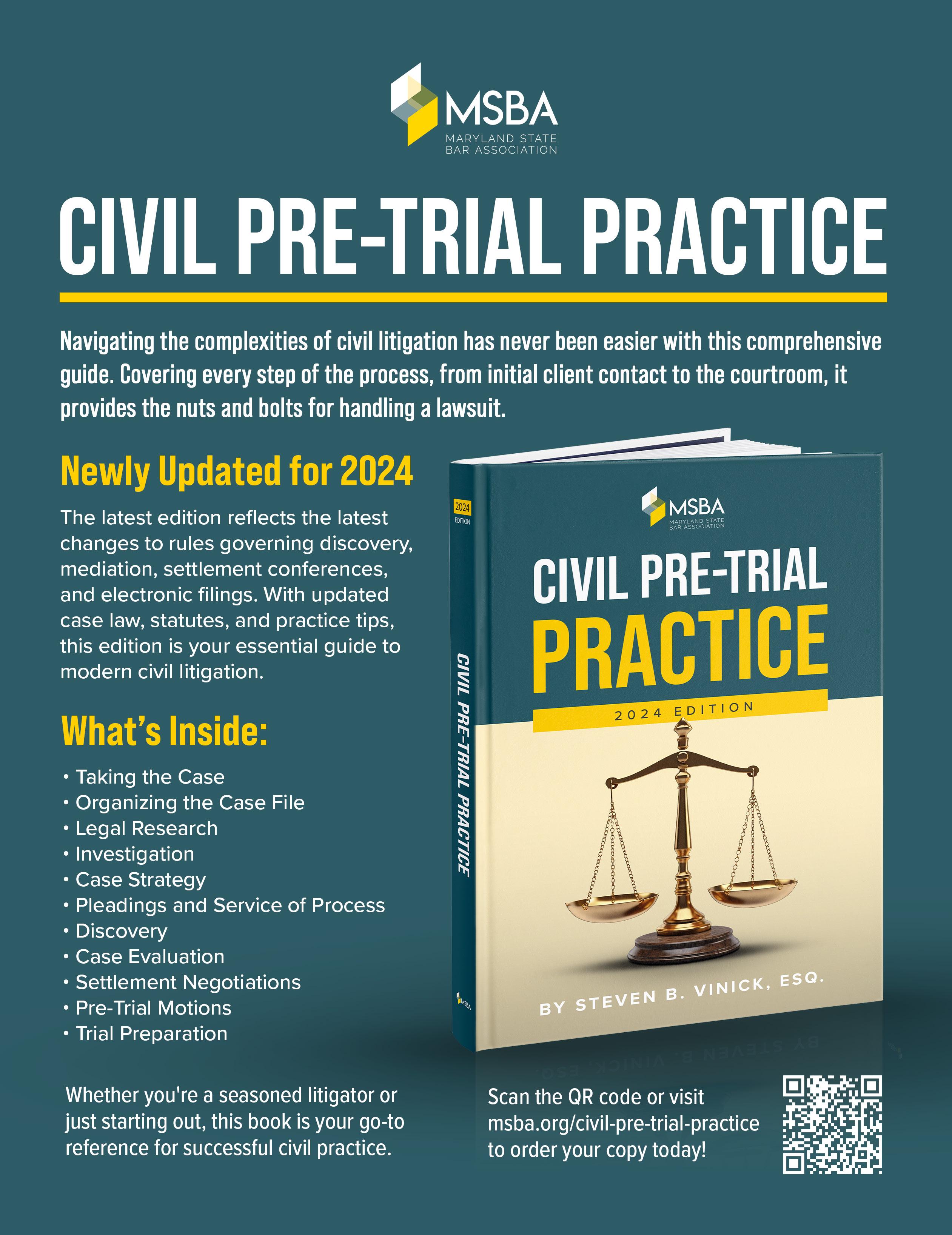
Maryland Attorney General Anthony Brown Discusses Priorities and Initiatives at 2025 Legal Summit
MARYLAND ATTORNEY GENERAL Anthony G. Brown
was a featured speaker at the 2025 Maryland State Bar Association (MSBA) Legal Summit in Ocean City on June 5, 2025, in a fireside chat with MSBA President Raphael Santini. Brown, the first African American to hold this office in Maryland, shared insights into his role, strategic plan, legislative priorities, and advice for young attorneys.
Before becoming attorney general he served in Congress representing the 4th Congressional District (2017–2023), as Maryland’s Lieutenant Governor (2007–2015), and in the Maryland House of Delegates, where he was Vice Chairman of the Judiciary Committee and Majority Whip (1999–2007). Throughout his career, he has championed expanded protections for victims of domestic violence, abused and neglected children, and veterans, as well as initiatives to increase expungement eligibility, promote ballot access, and ensure LGBTQ rights. Since becoming attorney general he has established a Commission on Hate Crimes, and partnered with the Maryland Office of the Public Defender to create the Maryland Equitable Justice Collaborative, dedicated to reducing mass incarceration of African Americans and other marginalized groups. Brown is also a retired Colonel in the Army Reserve, with a distinguished record as an aviator and Judge Advocate General.
The Role of the Attorney General
Brown discussed his role as the chief legal officer of the state, emphasizing that he and the 1,040 employees of the Office of the Attorney General (OAG) work for the people of Maryland. The OAG constantly balances the responsibilities and challenges of defending and protecting Maryland’s state agencies and the state’s institutional interests with serving the public. But the office's staff members never lose sight of the fact that they work for the people. “It is a challenging job,” said Brown, “and noble work” which gives him “a great appreciation for the job.”

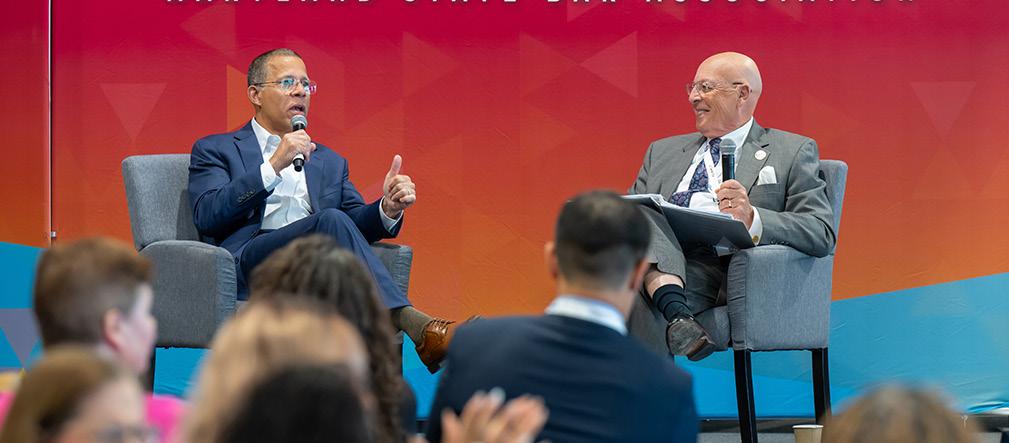
OAG's Strategic Plan and Mission
Brown launched the OAG’s Strategic Plan with five key priorities, all guided by the mission to "advise and represent State government, vigorously enforce the law to safeguard the rights of the people, and promote justice and equity for all Marylanders." These five priorities include strengthening public safety and law enforcement; protecting consumers, workers, and promoting fair business practices; upholding civil rights and promoting equal justice; ensuring good stewardship of public and natural resources; modernizing the OAG and improving organizational efficiency, including the adoption of AI.
The OAG also developed metrics to measure the quality of their work. Brown highlighted Governor Moore’s motto, "leave no one behind," as a guiding principle of equity in the OAG’s strategic planning. Because, Brown said, “equity does not equal race, but that’s part of it. . . it’s ensuring that every Marylander has equal access to opportunities, and government services, and that the outcomes and the impacts of what we do in government are equitably felt both on the upside and the downside for the people of Maryland.”
Legislative Priorities for 2025–2026
Brown outlined his legislative priorities for 2025-2026, focused on safeguarding the well-being and rights of Marylanders through targeted legislative action.
Key priorities include protecting vulnerable adults in assisted living care facilities. He is proud of the fact that during the 2024 session his office was successful in getting the General Assembly to extend the Patients Bill of Rights to long-term care facilities. Additionally, Brown said he will be pursuing legislation requiring nursing homes to install video cameras to protect the vulnerable. The video cameras will act both as a deterrence for abuse and assist with prosecution of violators.
Federal Accountability Unit
Brown established a federal accountability unit, composed of professionals so that his office can protect Maryland and Marylanders from any new adverse federal actions. The unit consists
of six attorneys and paralegals that operate within a multi-state coalition of attorneys general. They collaborate every day with their colleagues around the country as the administration issues executive orders and repeals rules. Brown said his office will bring “no lawsuits based on politics, but only on cases that hurt Marylanders,” e.g. teacher certification program. Recently, the group was successful in getting a preliminary injunction to prevent the federal government from dismantling AmeriCorps. The attorney general group has filed a total of 23 lawsuits.
Expanding Civil Rights Authority
Brown sought and obtained legislative authority from the General Assembly to bring civil rights and discrimination lawsuits. This led to the establishment and expansion of the attorney general’s authority and the hiring of civil rights attorneys to pursue public accommodations, employment, and housing discrimination cases.
Recruitment and Retention of Skilled Attorneys
To attract and retain skilled attorneys, Brown secured salary increases for the OAG from the Governor and General Assembly. In turn, the salary increases have helped with recruitment. The OAG is proactively recruiting in higher education and law schools. Additionally, the OAG focuses on attorney training, implementing continuing education requirements, and becoming an enterprise member of the Maryland State Bar Association for enhanced legal education opportunities for their attorneys.
Advice for Young Attorneys
Brown advised young attorneys and law students to focus on developing litigation skills, technology skills, and non-tangible soft skills. He also emphasized the importance of being a team player, leading, and being resourceful. Most importantly, Brown stressed the necessity of striking a work-life balance and understanding that this balance will change over time and will be different for everyone. “Strike a balance, and commit to it,” he said. If you can’t do that as a young person, you are going to have difficulty doing it as an older, more experienced lawyer.
ACE FUNDING IN MARYLAND: Protecting Housing Stability
BY COLLEEN M. ARACRI, ESQ.
IN RECENT YEARS, MARYLAND HAS EMERGED as a leader in the movement to address housing inequities, particularly with regard to eviction proceedings. In 2021, the Maryland General Assembly passed HB18 (the ACE Law), making Maryland only the second state in the nation to have a program that provides access to legal representation to all income-qualified persons facing eviction on a statewide basis. This legislation was a response to the recognition that evictions have far-reaching consequences, affecting not only individuals and families but also public health, the economy, and social justice.
While the passage of the ACE Law was a critical step towards leveling the playing field for Maryland tenants facing eviction, it cannot succeed without continued funding. As such, the Maryland Access to Justice Commission’s (A2JC) top priority in the 2025 legislative session was additional funding for the ACE law. A2JC is proud to report that, despite the fact that the General Assembly was faced with an exceptionally tight budget, A2JC and its partners were able to obtain continued funding for the ACE law through 2028.
The Importance of the ACE Law
The ACE Program has demonstrated significant positive outcomes. Data indicates that 88% of those who have received services through ACE have avoided eviction or disruptive displacement.1 In fiscal year 2024 alone, the ACE Program closed 8,894 cases, a 124% increase from the previous year, providing much-needed legal representation to thousands of Maryland residents.2 Moreover, the program is saving the state money. For every $1 spent on the law, the state sees returns of almost $5.3 An ACE attorney costs approximately $1100 per case compared to the $9700 that the state would spend to provide homeless services.4
A2JC is proud to report that, despite the fact that the General Assembly was faced with an exceptionally tight budget, A2JC and its partners were able to obtain continued funding for the ACE law through 2028.
1 https://mgaleg.maryland.gov/cmte_testimony/2025/app/1vi23CcUImaPdgedzYR6PVHo1pf J1BO5W.pdf
2 Id.
3 Id.
4 Id.


Analysis from Stout consultants estimates that for every $1 spent on the ACE Program, Maryland realizes $4 in economic benefits.5 This includes savings of $21.6 million in social safety net costs and $6.8 million in additional Medicaid spending, and the program has helped over 5,600 households avoid eviction, preserving economic stability and employment.6
Funding the ACE Program
Funding is crucial to the success of the ACE Program. Without consistent and sufficient funding, the program’s effectiveness is compromised, leaving vulnerable tenants without the legal support they need.
At the start of the 2022 legislative session, the Program remained unfunded. The Access to Counsel in Evictions Task Force, which was created by the ACE Law to monitor implementation of the ACE Program, strongly asserted in its inaugural report that funding was the ACE Program’s “most urgent and critical need.”7
A2JC, along with other civil justice organizations, made ACE Program funding its top priority during the 2022 legislative session and succeeded in advocating with the General Assembly and Governor to provide two years of start-up funding for the Program through fiscal year 2024.8 Thereafter, during the 2023 legislative session, the General Assembly passed SB756, which provided 3 years of additional funding of the ACE law through the Abandoned Property Fund in the amount of $14M per year for fiscal years 2025 through 2027.9
Senate Bill 154: Extending Funding for the ACE Program
While it is clear that the ACE Program is successful, Maryland faced significant budget challenges in the 2025 session. State lawmakers grappled with a widening structural budget gap, which put pressure on funding for various programs, including access to justice initiatives.
5 Id.
6 Id.
Despite budget concerns, civil legal aid organizations were able to effectively advocate for the passage of SBA154, which provides continued funding for the ACE Program.
Senator Shelly Hettleman championed SB15410, and almost 30 individuals and organizations offered testimony in favor of the passage of SB154, while no one testified in opposition. Ultimately, SB154 passed both Chambers and was submitted to Governor Moore, who signed the bill into law on May 13, 2025.
EVERY $1 spent on the ACE Program, MARYLAND REALIZES $4 in economic benefits.
SB154 ensures that the ACE Program will have continued funding by extending the Governor’s annual appropriation of $14 million from the Access to Counsel in Evictions Special Fund to the Maryland Legal Services Corporation (MLSC) through fiscal year 2028. This ongoing funding commitment is critical to maintaining and expanding access to legal counsel for tenants statewide.
The bill also adjusts and continues the ACE Task Force. It will now be chaired by the designee of the Secretary of the Department of Housing and Community Development (DHCD), with DHCD providing staff support and selecting membership. The Task Force will continue its responsibilities of evaluating the provision of ACE services, studying potential funding sources, and making policy recommendations to strengthen the program’s impact.
7 https://mgaleg.maryland.gov/cmte_testimony/2025/bat/1snRU5qZRA969ldCWoZvHmnak_F5wokPm.pdf
8 https://mgaleg.maryland.gov/cmte_testimony/2025/bat/1snRU5qZRA969ldCWoZvHmnak_F5wokPm.pdf
9 https://mgaleg.maryland.gov/cmte_testimony/2025/bat/1snRU5qZRA969ldCWoZvHmnak_F5wokPm.pdf
10 https://mgaleg.maryland.gov/mgawebsite/Legislation/Details/SB0154?ys=2025RS
39% OF TENANTS
REPORTED THAT EVICTION WOULD LIKELY RESULT IN homelessness for their families.
To ensure equitable participation, the bill now authorizes reasonable compensation, including stipends, for tenant members whose income is no more than 50% of the state median income adjusted for household size, ensuring the voices of those directly impacted by eviction are heard.
Support for SB154
Several organizations provided compelling testimony emphasizing the ACE program’s effectiveness and the importance of continued funding, which were instrumental in the passage of SB154.
Senator Shelly Hettleman, who presented the bill, testified on the transformative impact of the ACE program. She stated, “SB 154 represents a critical step in ensuring that Maryland continues its leadership in addressing housing inequities by extending the funding and restructuring the oversight framework for the Access to Counsel in Evictions (ACE) Program and Task Force.”
Senator Hettleman also highlighted the program’s importance for vulnerable populations, stating that “about 73% of ACE clients identify as Black or African American, 72% are women, and 56% of female clients have at least one child in their household,” and that “alarmingly, 39% of tenants reported that eviction would likely result in homelessness for their families.”
Senator Hettleman explained that, “[a]s evictions in Maryland return to pre-pandemic levels and housing costs continue to rise, the ACE Program provides a lifeline for tenants, especially those facing systemic barriers to housing stability,” and urged a favorable report on SB 154 to guarantee the ACE program’s longterm sustainability and continued impact.
A2JC also testified that its top priority this year was to “ensure full and continuous state funding for the Access to Counsel in Evictions law.” Further, it emphasized that “stable and continuous funding is the lynchpin to successful ACE implementation,” and that the General Assembly must act to “provide a steady and permanent amount of base level funding to ensure continued implementation of the ACE law.”
MSBA expressed its support for SB154 as well, recognizing the importance of civil legal aid programs in expanding access to justice for low-income and vulnerable Marylanders. The Bar believes that “timely access to representation creates stability
It is clear that the ACE program is a critical initiative that not only provides essential legal support to tenants facing eviction but also generates significant economic returns for the state.
for those in need” and that “investments in civil legal aid can yield a positive economic and societal impact on the state.”
Additionally, Maryland Legal Aid (MLA) submitted testimony in strong support of SB154, highlighting the program’s effectiveness in providing vital housing stability, leveling the playing field in rent court, and addressing the disproportionate impact of evictions. MLA emphasized that “the state’s investment in the ACE Program is already changing this dynamic” and that “our results already show that having counsel gives that family a better chance of retaining their
ABOUT 73%
OF ACE CLIENTS IDENTIFY AS Black or African American 72% are women AND 56% OF FEMALE CLIENTS HAVE AT LEAST one child in their household
housing subsidy, correcting errors in the rental ledgers and/or addressing unhealthy and unsafe conditions.”
It is clear that the ACE program is a critical initiative that not only provides essential legal support to tenants facing eviction but also generates significant economic returns for the state. Continued funding and support for this program, as demonstrated by the passage of SB154, are vital for ensuring justice, equity, and housing stability for Maryland residents.
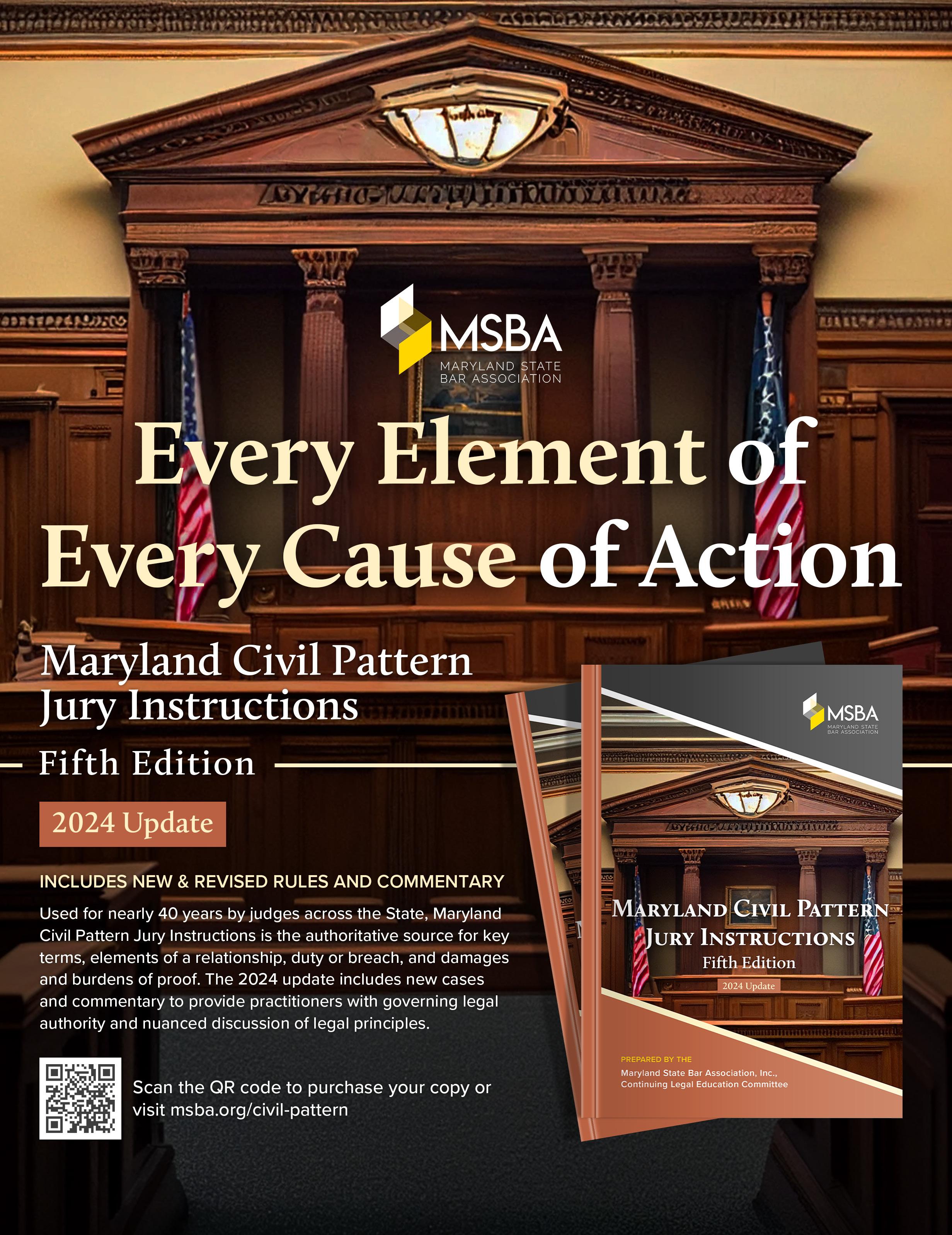
Career Highlights
What I’ve Learned
Leaders in the profession sharing their successes and advice with the next generation of attorneys.
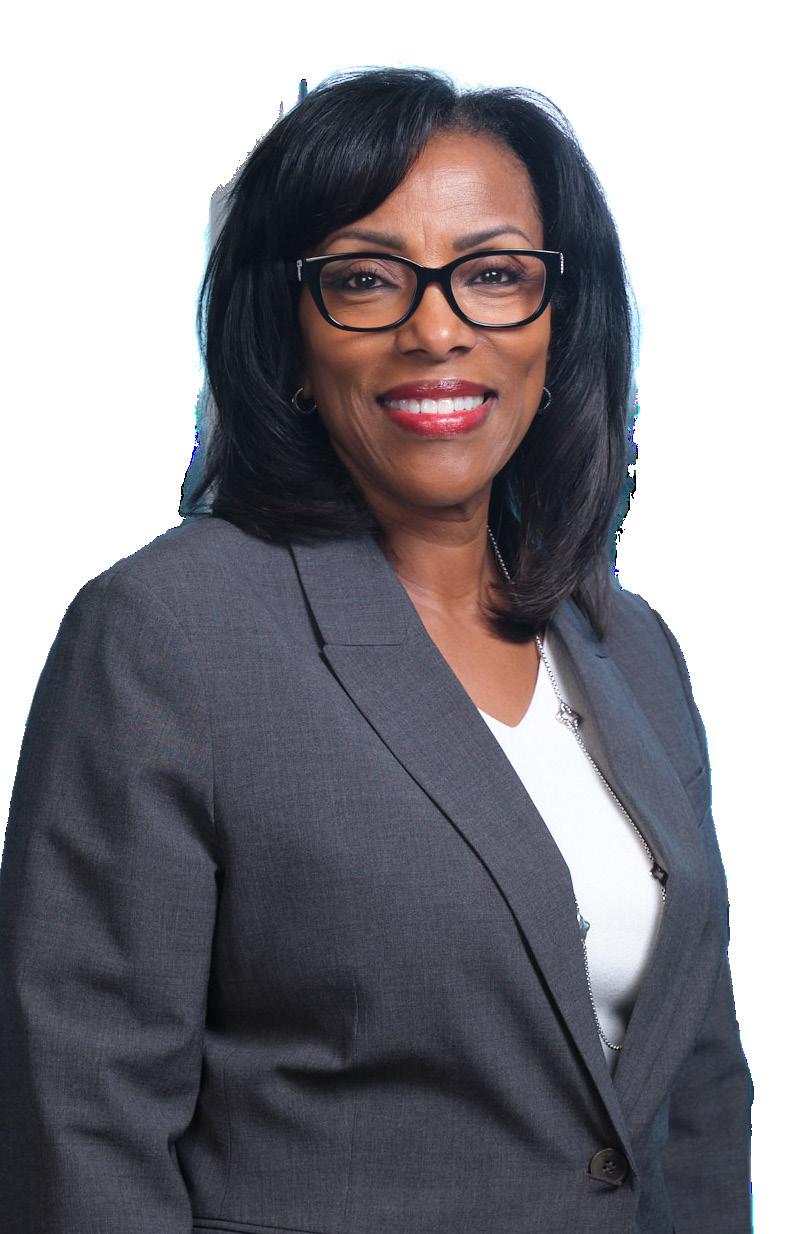
Past President
Profile of a past MSBA President.
Career Transitions
Attorneys sharing their experience of moving between legal sectors or advancing into leadership positions.
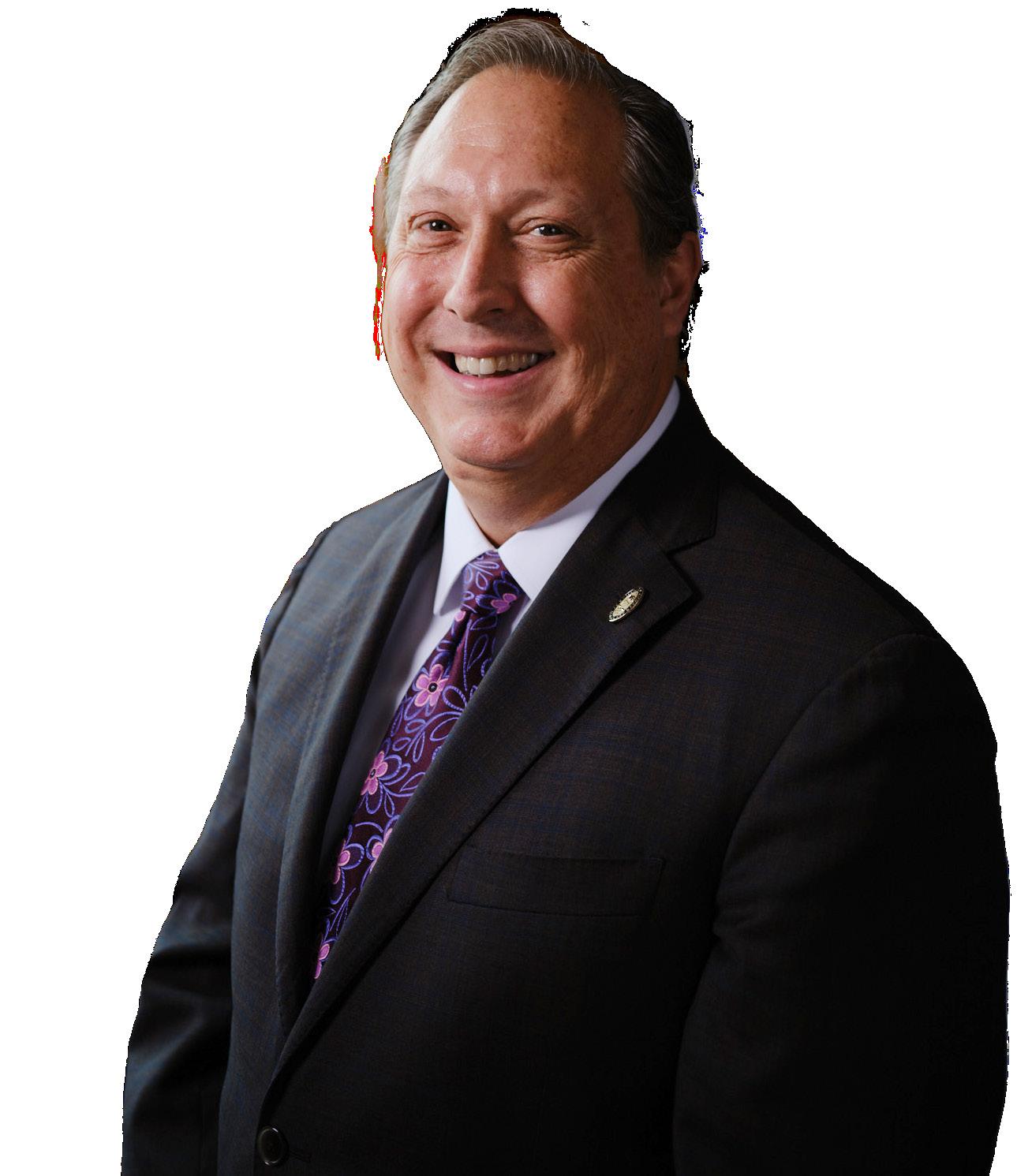

“
I would not have had the amazing 39-year career I have had were it not for the many men and women— black, white, and other—who became my teachers, guides, mentors, sponsors, and champions.
Ava LiasBooker
EQUITY PARTNER AT MCGUIREWOODS LLP

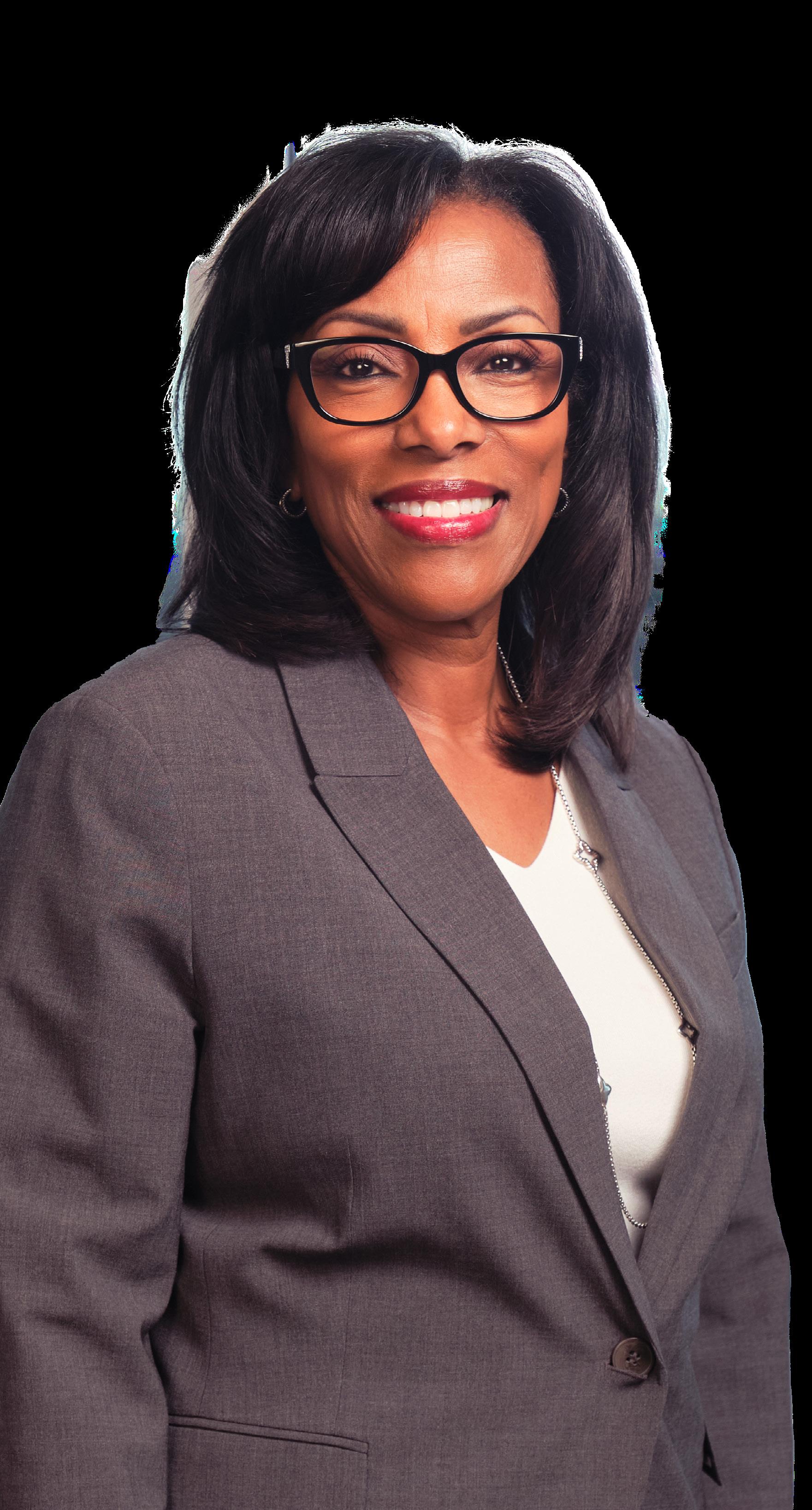
AVA LIAS-BOOKER IS AN EQUITY PARTNER AT McGuireWoods LLP, where she focuses on Commercial and Civil litigation. Throughout her distinguished 39-year career, she has accumulated numerous accomplishments, all while maintaining a deep commitment to diversity and equity within the legal profession. Lias-Booker recently shared insights on her career, the evolving legal landscape, and her personal journey with MSBA.
A TRAILBLAZER'S JOURNEY
Why did you enter the legal profession?
As is typical of my generation, I wanted to “save the world” and thought that I would become a lawyer in the US Department of Justice Civil Rights Division, but there was another path for me. In hindsight, the path that essentially chose me was equally important. I was part of an early increase in the number of black lawyers joining large law firms that were mostly white and male back in 1986. Ultimately, I became one of the first black woman partners of a large Maryland law firm, and one of the few in the country. I would like to believe that being a “trailblazer,” as I have been called, has been important and served many purposes. My career allowed me the privilege to influence and inspire many others to pursue similar paths and do so successfully. Indeed, watching the accomplishments of my “mentees” is joyful and inspiring to me!
What is the best piece of advice you have received from someone in the legal profession?
Grant yourself grace; sometimes you will be a great lawyer and sometimes a great mother, but seldom both at the same time. It was not easy, but I was blessed and fortunate to raise two amazing children. My oldest, Sydney Booker, is a Princeton graduate who studied in China. I had the honor of hooding her at her graduation from Duke University School of Law. She is now a lawyer at the Brooks Pierce law firm in North Carolina. My youngest graduated from Stanford University with a B.A. in Economics. At his graduation, I had the honor of accepting one of Stanford’s preeminent scholar-athlete awards on his behalf because he was in mandatory NFL rookie camp as a 5th-round draft pick. This past February, I was in the stands during Super Bowl LIX to watch Eagles player #59, Thomas Booker IV, run onto the field to play!
What are some accomplishments you've achieved during your career?
I was co-lead counsel to a oil and gas corporation and successfully argued to reverse jury verdicts awarding plaintiffs about $1.5 billion in damages before Maryland’s highest
appellate court, establishing state precedents in tort/products liability law. I was lead trial/ appellate counsel to an energy company subsidiary that manufactured solar panels and won an almost $9 million jury verdict for breach of a silicon powder supply agreement. I was lead trial/appellate counsel for banks, financial institutions and companies in cases clarifying banking and contract law. I represented municipalities and educational institutions in cases addressing regulatory issues such as redistricting and discrimination. As a new lawyer, I served as second chair to win a defense verdict in a matter arising from Maryland basketball star Len Bias’ death.
I chaired McGuireWoods’ Diversity & Inclusion Committee, overseeing affinity networks and national programming. I developed the Diverse Associates Leadership Program, a national initiative to mentor and develop high-performing associates. I served on the firm’s Diversity Action Council, holding leadership accountable for D&I progress. Additionally, I was the firm’s Baltimore office managing partner, leading a team of transactional, public finance and commercial litigation lawyers.
Tell us a little bit about your current role. I am an equity partner at McGuireWoods LLP, I serve as an independent director of a publicly traded company based in California, I serve on the board of UMMS, one of the largest providers of health care in the state of Maryland, and I am the mother of a lawyer and NFL player. But the role that brings me considerable joy is that of grandmother or “Gigi” to my soon-to-be one-year-old grandson, Asa Booker Friesen!
What is the most valuable lesson you have learned during your legal career? There is no substitute for hard work.
What are the most significant challenges facing the legal profession? The true challenge for our profession remains diversity, equity, and justice. Despite the progress over the past few decades, the legal profession remains almost 79% white and 60% male. While gains have been made with
women and certain minority groups, the gains among women (39%), Hispanics (6%) and Blacks (5%) remain significantly behind their representation in the US population (women-50.8%, Hispanics 19.1% and Blacks 13.6%), and in certain cases have remained stagnant over the last decade. Likewise, we continue to struggle with expanding the number of LGBTQ lawyers and lawyers with disabilities.
My career is a testament to our collective ability to rise to the challenge of building a more diverse, inclusive, and equitable profession. I would not have had the amazing 39-year career I have had were it not for the many men and women—black, white, and other—who became my teachers, guides, mentors, sponsors, and champions. I am the product of the tireless efforts not just of my parents and family, but also of those special people who presumed my competence, challenged me to be excellent, and ensured that I was positioned for success.
My career is also a reminder that it will take all of us to make real progress on these issues in our profession. Notwithstanding the current climate, it remains true that diversity in the legal profession is a positive because it brings broader perspectives and diversity of thought that leads to better problem solving; it improves our ability to serve a more diverse client base and population; it promotes a view of fairness and helps to overcome real or perceived biases; and studies show that diverse teams are more innovative and outperform nondiverse teams. To build a more diverse profession, we must continue to demand excellence in the coming generation, but we must also question and change the structures and systems that impede or erode our progress.
How has the MSBA helped you in your legal career?
The MSBA has always been a key resource for the training, development, and advancement of lawyers. I have served on various committees, including as a member and chair of the Judicial Administration Section Council years ago. I have participated in and taught MICPEL courses on deposition training and trial advocacy.
Judge Mark Scurti
LEADING THROUGH CRISIS
A BALTIMORE NATIVE, Judge Scurti received his J.D. from the University of Baltimore School of Law and was admitted to the Maryland Bar in 1991. He spent over a decade in solo and small firm practice before joining Pessin Katz Law, P.A., in 2007. There, Judge Scurti focused his practice on family law, LGBTQ legal issues, mediation, corporate startups, estate planning, and bankruptcy before then-Governor Martin O’Malley appointed him to the bench in 2013. He has been the recipient of numerous awards in the legal community including the prestigious Distinguished Community Service Award, GAYLAW, 2003, Maryland Leadership in Law Award, Daily Record, 2006, Top 100 Civil and Human Rights Award, Legal Aid Bureau of Maryland, 2011, Pro Bono Service Award, Maryland Volunteer Lawyers Service, 2017.
The MSBA recently asked Judge Scurti to share his experiences as a past president during the COVID-19 pandemic and the challenges he faced. Read his story below.
Describe the primary issue you tackled during your year as MSBA President.
One of the major issues facing me at the start of my presidential bar year was how to implement a strategic initiative to provide diverse representation within the MSBA's sections and committees that included a wider geographic reach, type of practice, type of firm, age, gender, and ethnicity. As a member of the MSBA, I saw barriers to many sections and committees. You had to know someone to get appointed or involved, preventing many attorneys from active engagement. In addition, meetings were primarily held in Baltimore City or Columbia, thereby excluding members from more distant parts of the state.
Then the pandemic hit. I had to throw out my entire plan for the year and pivot with a new reality. But the pandemic helped facilitate wider participation as members had a place to meet, interact, chat, laugh, and connect on Zoom, Teams, or Skype, incorporating more voices and participation across the state. This was important to me because, as I served on the Board of Governors for several
years, members had discussed their frustration in trying to break the invisible barrier to get involved.
What were some of the challenges and highlights from your year as President?
We were struck by a pandemic. My whole agenda of in-person meetings, conferences, and trips was turned upside down, and I had to regroup and rethink my year in a new light. I was worried about how we were going to reach our members, keep things moving along, and stay relevant. We took the lead with the Governor's office to get assurance that attorneys would be prioritized when it came to the administration of the COVID-19 vaccine. We held regular meetings with the partners of the major law firms, deans of the Maryland law schools, and Chiefs of the United States District Court, the Supreme Court of Maryland, and the District Court of Maryland to discuss what was happening and learn best practices to keep everyone safe and have access to the courts and keep justice moving.
How has being part of the MSBA helped you in your career? I became a member of the MSBA when I was admitted to the MD Bar in 1991. I could not wait to become a member and get involved.
What’s your favorite hobby?
I truly love to travel and cook. Growing up, I used to join my grandfather at the Sons of Italy hall in Little Italy, where we would make gravy (sauce), gnocchi, ravioli, tortellini, and other Italian delicacies. Seeing people enjoy your culinary creation over a glass of wine is the ultimate satisfaction. Knowing that we were not able to meet in restaurants around the state during the pandemic, I created Cooking Connections, whereby I invited celebrity chefs from around the state to give us cooking classes that were broadcast via YouTube. I would cook from my kitchen while the chef was in their professional kitchen.
What cause or charity are you passionate about?
Pro Bono legal services. Pro Bono legal services, Pro Bono legal services. Being an out gay man growing up in the 1980s during the AIDS epidemic, I saw friends and friends of friends dying daily of this disease. I vowed that when I became an attorney, I would do whatever I could to help the HIV positive community and the greater LGBTQ+ community as a whole. In my early days, I drafted wills and other estate documents at H.E.R.O. (Health Education Resource Organization) in Baltimore City, usually for people on their deathbeds. Despite the despair, my pro bono clients were comforted in knowing their posses sions would be distributed to their partner and other loved ones upon their passing. This led to me and a number of law students, judges, and attorneys creating Free State Legal Project—the first ever free legal clinic for the LGBTQ+ community serving the state. I watched it grow into a successful program serving thousands of clients and protecting their rights throughout the state.
From there, I moved on to serve as President of the Pro Bono Resource Center of MD, and served on the Board of Maryland Legal Services Corp. When I practiced law, I took cases from the Maryland Volunteer Lawyers Service and the Legal Services to the Elderly program of the Bar Association of Baltimore City.
What’s your favorite restaurant?
Given my passion for food, this is a very tough question. As a judge, I ethically cannot give out my ultimate favorite to avoid any appearance of endorsement, so I will leave it at that. Perhaps you will have to join me sometime for a meal and see for yourself!
What’s your favorite vacation spot?
My favorite vacation spot will be turning into my future home upon retirement, that being Palm Springs, CA.
I vowed that when I became an attorney, I would do whatever I could to help the HIV positive community and the greater LGBTQ+ community as a whole. “

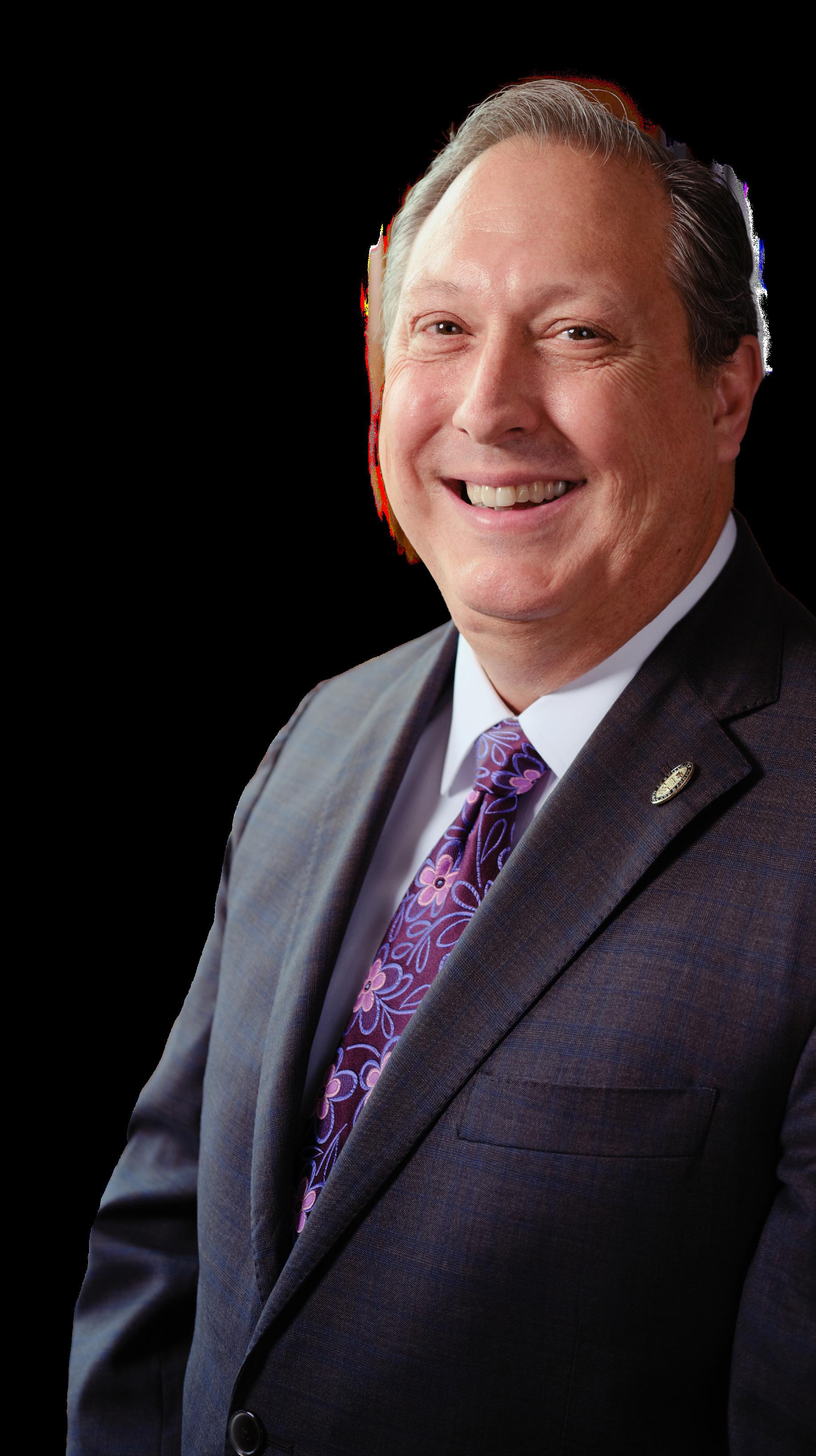
Erek L. Barron
FORMER UNITED STATES ATTORNEY FOR THE DISTRICT OF MARYLAND
“
I try to be aware of when we may be the beneficiaries of status and to help others along the way that may not be so lucky.
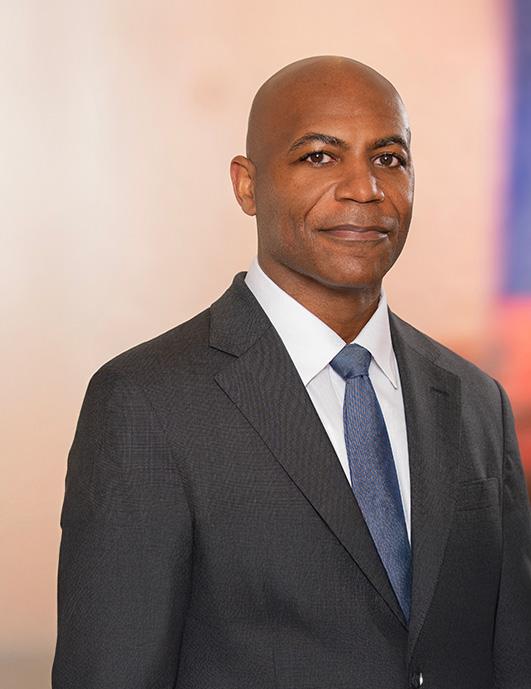
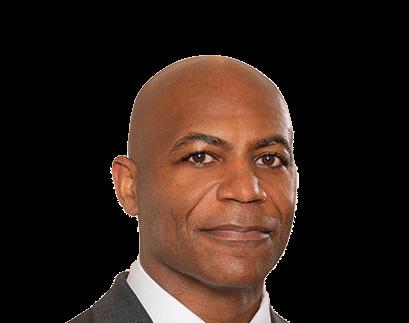
CRAFTING A SUCCESSFUL LEGAL CAREER
A Conversation with Former U.S. Attorney Erek L. Barron
BY HON. LISA A. HALL JOHNSON
I recently had the opportunity to meet with Erek L. Barron, Former United States Attorney for the District of Maryland. Mr. Barron agreed to meet with me, and we were joined by my two law clerks, Jace Peterkin and Michael Peoples, for an in depth conversation about the legal profession. I thought it to be a particularly profound opportunity to talk about transitions, as Mr. Barron was transitioning into a new professional chapter, and Jace and Michael are just beginning their professional legal journey. What occurred was a master class in grace, perseverance, hard work, and vision. My first task was to get on his calendar and get him to agree to do an interview – with me. I’m privileged to have known Mr. Barron since we were young prosecutors. I tried one of my first jury trials with him, I worked on one of his early campaigns (before I was elevated to the Bench), we have engaged in service to the various Bar Associations together, we are friends, and we share many mutual friends. Thus, after he erupted in laughter when I asked if I could interview him for the Maryland State Bar Association, I convinced him to agree. If you know Mr. Barron, you know that there is a certain food item that, if offered, you are guaranteed a meeting. Once we confirmed that, we were booked for a lovely conversation. We started by focusing on Mr. Barron’s early life and career.
EARLY LIFE AND CAREER
Would you be willing to share a bit about your personal background and how it shaped your professional success? I was raised by a very hardworking mother whose singular focus was my education. For a very brief period as a child, through no fault of our own, we experienced homelessness. My mother worked three jobs to get us out of that situation. Through lived experience, I learned the value of hard work, consideration, and education.
What has been the role of family on your professional success?
It is important that family be a part of everything that I do—family is the inspiration and support for all that I do.
During your career, were there instances where race, gender, or socioeconomic status helped you? Were there instances where either presented a challenge?
These are ever-present challenges in a complex world. I try to be aware of when we may be the beneficiaries of status and to help others along the way that may not be so lucky. When it has presented a challenge, I try to use it as motivation to be better.
When you were in law school, or even early in your practice, did you envision your career path leading you to become United States Attorney for the District of Maryland?
I did not see it coming. My primary aim has been to be the best attorney that I can be.
What is the best advice you received early in your career? What was the worst?
I think the best advice has been to do the best, passionate job I can and, by doing so, the right doors will open at the right time. This is really just a condensed version of MLK’s “blueprint for life,” which he told to a group of middle schoolers in the 1960s but which I still periodically listen to—it is a great fundamental constitution for a well-lived life.
I think the worst advice has been something along the lines of wait-your-turn. If I did that, I’d still be waiting.
You have been consistently active in bar associations, particularly the Maryland State Bar Associate and you are a past president of the J. Franklyn Bourne Bar
Association. In what ways have bar associations contributed to your success and your development?
The Bar has been a great way to enhance my professional network while giving back to the community.
You have had a wide array of professional experiences, including criminal prosecution at the state level in two offices, you worked on the Hill, you served as a State Delegate, and you worked in private practice. First, have I left anything out? Next, how did those experiences inform your service as the US Attorney for the District of Maryland? I didn’t realize it while on the journey, but these experiences set the stage for collaborative leadership and an excellent understanding of how the local, state, and federal criminal justice systems can work (but often don’t work) together to make communities safer while also reducing unnecessary costs.
Setting the stage for his professional success was an essential part of this dialogue. To understand Erek, you must understand his journey and what he has overcome to achieve his success. But you must also understand how he prioritizes service, mentorship, and relationships. It is also evident that the challenges don’t end at achievement, and in his case challenges marked his path. Service, relationships, and challenges are all evident in his time as the United States Attorney.
SERVICE AS THE UNITED STATES ATTORNEY FOR MARYLAND
Tell us about the path to becoming a US Attorney? What was the most surprising aspect of the journey? What was the most fulfilling? You outlined the path in the previous question. This is not the traditional path and I represented a number of firsts, which is
Paraphrasing a quote from one well-known law firm: exceptional professionals aren’t cut from a single or predictable cloth. Dare to be different, but still excellent at your craft.
quite surprising. For example: I was the first member of the Criminal Justice Act penal to be United States Attorney; I was the first former local prosecutor to be United States Attorney; I was only the second former state legislator to be United States Attorney; and I was the first Black United States Attorney. Paraphrasing a quote from one well-known law firm: exceptional professionals aren’t cut from a single or predictable cloth. Dare to be different, but still excellent at your craft.
During your time as United States Attorney for the District of Maryland, what would you consider the most challenging aspect of the work? What was the most rewarding?
The most challenging aspect of the work is getting different people and organizations with different backgrounds, cultures, goals to work together towards the same mission. As hard as that can be, it is most rewarding to see it all come together, especially in public service where you may literally be saving lives.
Did those challenges shape your perspective on public service? If so, how? These challenges have only strengthened my perspective on the importance of public service.
What would you consider your greatest accomplishments as United States Attorney?
I think the greatest accomplishment was being a part of the greatest reduction in violent crime the State and Baltimore City have ever seen.
If you were still in the role, what would be on your list of things to accomplish? I would have enjoyed being a continuing part of the personal and professional development of the more recent hires, but they will all be just fine.
Speaking of those hired during your tenure, how have you worked to create opportunities or mentorship for younger attorneys within the legal profession,
and more specifically, within the US Attorney's office?
Yes, the office has great informal and formal mentors and a great mentorship program.
You’ve often talked about how impactful mentorship has been on your career. Was that part of the motivation to create these opportunities for others? There’s nothing like having a guide who has been there before you. There’s been times when I’ve had it and times where I didn’t.
With respect to the political current climate, and the abundance of federal layoffs, what advice would you offer to candidates, specifically young attorneys, who are seeking careers in federal public service?
Find opportunities, wherever they may be, to hone your craft and you will make it to where you’re supposed to be.
What are your thoughts regarding the difficulties and challenges that the federal courts are facing?
The federal courts face many challenges, including diminished respect for—and understanding of — the role of the judicial system, increased caseloads and case complexity, and increased threats to the safety of courthouse personnel. The courts need more jurists, more resources, better security, and a better cheerleading team. In addition to showing greater professionalism, lawyers need to do a better job of standing up for the rule of law and supporting the bench. Ours is a noble profession, in support of justice and service to others, not money or power.
Mr. Barron’s comments supporting the bench were specifically appreciated as he is aware of the challenges that I face as a jurist. I also wanted Jace and Michael to really understand from Mr. Barron’s perspective how to navigate these challenging times as they embark on the next phase of their professional journey. Thus, we had a robust discussion regarding professional transitions. When we met with Mr. Barron, he had not announced what
his next move would be. I believe that this provided a safe space for these young lawyers to inquire about how to make a move and determine where or how to land. Thus, we talked a bit about the next chapter. We also talked about balance, what success means, and how to find fulfillment.
NEXT CHAPTER
Throughout your life, you have consistently set both goals and expectations, which have been met with excellence. I also know you to be an incredibly humble person. How do you measure success?
I feel successful when I know that I did my part—when I’ve played smart and left it all on the field.
There are many lawyers that are exploring new career options, either voluntarily or involuntarily. What advice do you have for anyone who finds themselves at a professional crossroads?
Take a step back and focus on what is important and fulfilling to you, not to everyone else, and the answer is there.
My experience with you is that you are a consistent and loyal friend. How have friendships, and professional relationships, impacted you over the years? There’s nothing like having people around you that have known you at various stages of your personal and professional life. They keep you grounded and accountable and love you for who you are inside.
You are an avid reader. What are you reading right now and why?
I have been reading fiction by authors S.A. Cosby (All The Sinners Bleed) and Walter Mosely (Charcoal Joe, Black Betty, Trouble is What I D0, etc.) and an autobiography, In The Catbird Seat, by William Marbury and One Man’s Freedom by Edward Bennett Williams. I read Cosby and Mosley because their gritty, hardnosed detectives and fixers are a fun reminder of the work that we do as lawyers. I’m reading Marbury and Williams because they take me back to some of the roots of the profession.
What’s next for you?
I am looking forward to private practice and helping clients solve challenging problems. At the same time, I hope to find opportunities to remain active in public service. I think I’m at my best when serving others and that’s what I’ll continue to do. I want to practice at the highest level possible while also serving the public interest.
Is there anything that I haven’t touched on that you want to communicate to those reading this piece?
With all these questions, I think you get it!
Our conversation with Mr. Barron was delightful, and I believe Jace and Michael learned from the unique perspective that was shared with them. We talked for some time, and as a follow-up I asked my law clerks what they took away from the
experience. They shared that they were most inspired by the encouragement to fully commit to their work because, as Mr. Barron reminded them, true success comes from consistency and dedication over time. Further Mr. Barron drew a parallel between a lawyer practicing law and an artisan developing their craft. He spoke about the importance of building a strong foundation, using each experience as a building block, and continuously refining your skills. Mr. Barron talked to them about valuing their professional relationships by highlighting the importance of fostering strong relationships with their colleagues that are rooted in collaboration, mutual support, and a willingness to lean on others when needed as essential parts of a thriving career. They learned to be open to new opportunities. Mr. Barron encouraged them to remain open and prepared for unexpected paths
because sometimes the best opportunities come from places you didn’t anticipate. He also encouraged them to take seriously the responsibility to pave the way for others to walk through the doors that were opened for you, and he emphasized that the Bar is an excellent resource to them.
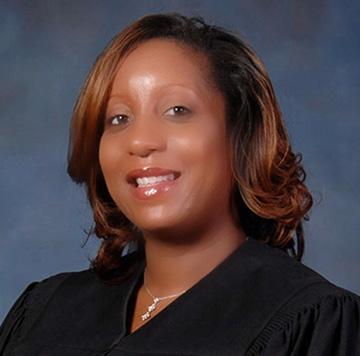
Honorable Lisa Hall Johnson currently serves as the District Administrative Judge for the District Court of Maryland, District 5, Prince George's County, a position she has held since January 6, 2017. Prior to this, she was an Associate Judge in the same court from July 22, 2013, also serving as the Domestic Violence Coordinating Judge.

• Works exclusively with lawyers professional liability insurance
• Defense Program offering a policy with preferred pricing and enhanced coverage for defense firms
• ADR Policy for professionals exclusively engaged in mediation, arbitration, or related ADR services
• Judicial Disciplinary Insurance Policy for state judges
• First Dollar Defense - a loss only deductible can produce a substantial savings for firms facing nuisance type claims
• Returned over $83 million in dividends to policyholders since 1988
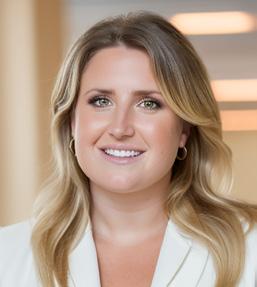

My Honor
BY RICHARD E. SHERMANSKI, JR., ESQ.
IN THE LANDSCAPE of American jurisprudence, the phrase “justice for all” sometimes rings hollow. Growing up in Luzerne County, Pennsylvania, I unwittingly lived in the shadow of what would become one of the most notorious judicial scandals in American history. Years later, as I now volunteer as a judge with Baltimore City Teen Court, I’ve come to understand how formative those early experiences were in shaping my commitment to ethical justice.
THE SHADOW OF CORRUPTION
Luzerne County gained national infamy through the “Kids for Cash” scandal. Between 2003 and 2008, county judges Michael Conahan and Mark Ciavarella orchestrated a scheme that would shake the foundations of our judicial system. These judges received kickbacks for sending juveniles to privately owned detention facilities, effectively selling children’s freedom for personal profit.
The statistics remain staggering and sobering: more than 2,500 children had their lives altered, with over 6,000 cases tainted by corruption. Over 50 percent of the children who appeared before Judge Ciavarella lacked legal representation; 60 percent were removed from their homes.1 These weren’t just cases; they were childhoods interrupted, futures derailed, and families devastated.
I didn’t fully comprehend at the time what a bullet I had dodged. During high school, I found myself in a fight that resulted in a three (3) day suspension. It was a minor infraction that, under different circumstances, had I appeared before either Conahan or Ciavarella, could have resulted in incarceration and a permanently altered trajectory for my life. It wasn’t until years later that I realized the gravity of what had happened in my county and how close I had come to potentially being one of those statistics.
WITNESSING THE AFTERMATH
During my final year of law school, I had the opportunity to clerk for Judge William Amesbury, one of the judges who replaced Conahan and Ciavarella after their removal from the bench. It was there that I truly began to understand the scope of the damage inflicted upon my community. Judge Amesbury faced the monumental task of not only handling new cases but also rebuilding trust in a system that had fundamentally betrayed its constituents.
Working alongside Judge Amesbury, I saw firsthand the lingering effects of judicial corruption. Families approached the court with deep suspicion. The healing process was slow and painful, but it reinforced the critical importance of integrity within our justice system.
I also had the honor of serving as a Juvenile Public Defender while in law school. This experience brought me face-to-face with the vulnerability of children navigating a complex legal system designed for adults. I witnessed their fear, confusion, and desperate need for an advocate who would stand beside them. The experience was
transformative—I realized that for many of these young people, seeing someone dedicated to their defense was perhaps their first encounter with fairness in an otherwise intimidating process.
RESTORATIVE JUSTICE IN BALTIMORE
Today, I have the privilege of serving as a Judge with the Baltimore City Teen Court through the MYLaw Organization. This program represents everything, I believe our juvenile justice system should be—focused on rehabilitation rather than punishment, community restoration rather than isolation, and opportunity rather than penalty.
Teen Court is a formal diversionary program that accepts referrals from the Baltimore City Police Department, Baltimore City School Police, State’s Attorney’s Office, and Department of Juvenile Services. Its purpose is straightforward yet profound: to divert youth away from the traditional juvenile justice system, minimize recidivism, and create positive impacts on young lives.
What makes this program special is its foundation in restorative justice principles. Young respondents repair the harm done to the community through community service and educational programming. When they successfully complete their sanctions, they leave with no record of the arrest that led to their involvement in Teen Court—a clean slate that preserves their future opportunities.
The program’s structure is a lesson in peer accountability and community involvement. Youth volunteers between the ages of 11 and 17 serve as jurors and jury forepersons. With the exception of an adult judge and courtroom facilitator, young people run the hearings themselves. They earn service learning hours for their participation while developing communication and networking skills that will serve them throughout their lives.
As an adult volunteer, my role is to guide rather than direct these hearings. I sit alongside other judges, magistrates, attorneys, and law students who share my commitment to mentoring the next generation through example.
The young respondents typically range from 11 to 17 years old and either reside or attend school in Baltimore City. To qualify for the program, they must have been referred by Baltimore City Police, School Police, the State’s Attorney’s Office, or the Department of Juvenile Services. They must have admitted involvement and accepted responsibility for the actions which led to their arrest, been charged with a misdemeanor, have fewer than four prior misdemeanors, be willing to complete sanctions imposed by their peer jurors, and have a parent or guardian willing to participate in the Teen Court process.
MEASURING SUCCESS BEYOND STATISTICS
While I am not an “official” judge in the traditional sense, I can’t help but smile every time the student jurors and respondents address me as “Your Honor.” It’s a small formality that carries significant weight in these proceedings. In my role, I strive to make each young person
1 “Investigative Reporting Uncovers Judicial Corruption in Juvenile Cases.” Factual America, 2025, https://www.factualamerica.com/journalistic-landmarks/investigative-reporting-uncovers-judicialcorruption-in-juvenile-cases
Teen Court's purpose is straightforward yet profound: to divert youth away from the traditional juvenile justice system, minimize recidivism, and create positive impacts on young lives.
feel heard and understood. I want them to recognize that this program isn’t about punishment but rather about giving them the opportunity to learn from their experiences and avoid any longlasting effects of one bad decision.
The success of Teen Court speaks for itself. Our one-year average recidivism rate of 12% is a fraction of the city’s 44% juvenile recidivism rate.2 But statistics, while important, don’t capture the human element of what happens in these hearings.
Some of our most powerful success stories involve youth who join as respondents and transition to volunteers. Having experienced the process from both sides, they often become its most effective advocates and mentors. They understand better than anyone the transformative potential of being held accountable by peers rather than punished by a system.
For over a year now, I’ve presided over these cases, and while I don’t have a chamber or wear a robe—I do have a gavel but have never used it—I have found profound fulfillment in my work. Each time I call a hearing to order, I carry with me the shadows of Luzerne County—not as a burden, but as a reminder of what happens when justice loses its way. I think about what might have happened to the thousands of children who stood before judges who had abandoned their oath, and I recommit myself to ensuring that the young people before me today experience justice at its best.
FULL CIRCLE
There’s a certain symmetry to my journey from a high school student in Luzerne County who narrowly avoided the corrupt judicial system to a volunteer judge helping young people in Baltimore avoid the traditional juvenile justice system altogether. The path between these points wasn’t direct, but it was purposeful.
What I witnessed in Pennsylvania—both the corruption and the painful rebuilding—instilled in me a deep appreciation for judicial ethics and the awesome responsibility that comes with making decisions that affect young lives. What I practice in Baltimore is the application of those lessons: justice tempered with mercy, accountability balanced with opportunity, and community healing prioritized over punitive measures.
The “Kids for Cash” scandal revealed how vulnerable children are within our justice system, how easily they can become commodities rather than individuals deserving of care and consideration. Teen Court demonstrates an alternative approach—one that recognizes young people’s capacity for
growth, change, and positive contribution.
I often think about the contrast between Judge Ciavarella’s courtroom and the Teen Court where I now volunteer. In the former, children entered without representation, facing a judge who had already decided their fate based on personal gain. In the latter, young people enter a room of peers guided by adults committed to their success, where the goal is restoration rather than retribution.
LOOKING FORWARD
As I continue this work, I remain mindful of both its limitations and its possibilities. Teen Court isn’t a panacea for all the challenges facing juvenile justice, but it represents a meaningful step toward a more humane, effective approach. The program’s success in reducing recidivism demonstrates that treating young offenders with dignity and providing them with opportunities for redemption yields better outcomes than harsh punishment.
My experience has taught me that honor in the legal profession isn’t just about avoiding corruption—it’s about actively pursuing justice in its truest form. It’s about recognizing that each person who participates deserves to be seen as an individual with inherent worth and potential.
The judges of Luzerne County betrayed their oath and robbed thousands of children of their futures for personal gain. Their actions stand as a stark reminder of what happens when those entrusted with upholding justice abandon their principles. In contrast, the work being done in Baltimore City Teen Court represents a different path—one where justice becomes a vehicle for transformation rather than destruction.
For me, this is what honor means: standing in service of a justice system that lifts rather than diminishes, that heals rather than harms, and that sees in every young person not just the mistakes they’ve made but the potential they hold. It is in this service that I have found my purpose and my pride.

2 “Teen Court.” Maryland Youth & the Law (MYLaw), 2025, https://www.mylaw.org/law-links-internship-1
Richard Shermanski is currently a Hearing Examiner for the District of Columbia’s Department of Motor Vehicles Adjudication Services Administration. He is a member of the MSBA Board of Governors and serves on the DEIA & Ethics Committees. He is also serving on the Board of Directors for MYLaw and is serving his second term on the Montgomery County Commission for People with Disabilities.
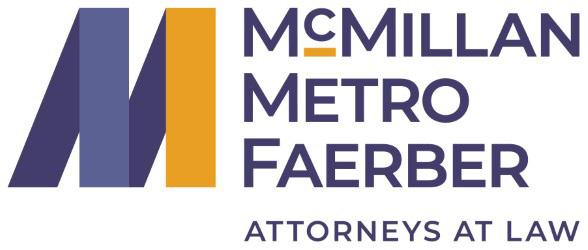
FOR IMMEDIATE RELEASE
May 14, 2025
Howard Metro Honored with the James J. Hanks, Jr. Lifetime Achievement Award by the Maryland State Bar Association Business Law Section
Potomac, MD — McMillan Metro Faerber, P.C. is proud to announce that, on May 12, 2025, Howard Metro, a stockholder in the firm, was awarded the Maryland State Bar Association (MSBA) Business Law Section’s prestigious James J. Hanks, Jr. Lifetime Achievement Award in recognition of his extraordinary contributions to the practice of business law in the State of Maryland.
The James J. Hanks, Jr. Lifetime Achievement Award honors individuals who have made significant and lasting impacts on business law in Maryland — whether as practicing attorneys, legislators, regulators, academics, or members of the judiciary. Criteria for the award require meaningful contributions to the practice of law, the Corporations and Associations Articles of the Annotated Code of Maryland, business entity regulations, and service to the MSBA Business Law Section.
Howard was selected for this distinguished honor in recognition of his passionate commitment to educating lawyers — a commitment that has shaped how business law is taught and practiced throughout Maryland. As a mentor, teacher, and visionary, Howard has elevated continuing legal education (CLE) in Maryland by championing technical, practical, and accessible CLE for attorneys in all types of business law-related practices at all stages of their careers.
Among Howard’s most enduring contributions are his tenure as the President of the Maryland Institute for the Continuing Professional Education of Lawyers and his founding and development of the MSBA Business Law Section’s Advanced Business Law Institute, a flagship CLE program that reflects Howard’s unwavering dedication to excellence in legal education. Under his guidance, the Advanced Business Law Institute has become a vital resource, delivering high-quality, business-focused CLE programming to practitioners statewide.
“Howard’s leadership and commitment to the professional development of Maryland’s legal community has had a transformative impact,” said David Shapiro, a partner at McMillan Metro Faerber, P.C., a past Chair of the MSBA Business Law Section, and a President of the Maryland State Bar Association. “His legacy is reflected in the hundreds of lawyers he has inspired and educated for more than a quarter of a century.”
McMillan Metro Faerber, P.C. congratulates Howard on this prestigious award and recognition of his contributions to the legal profession.
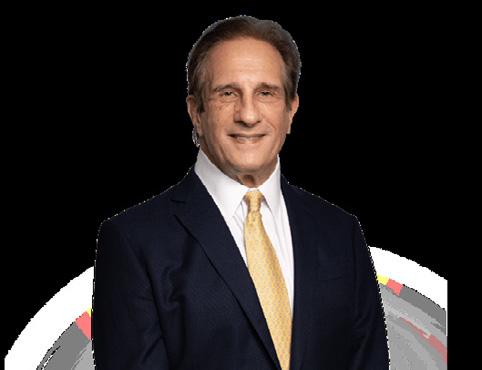
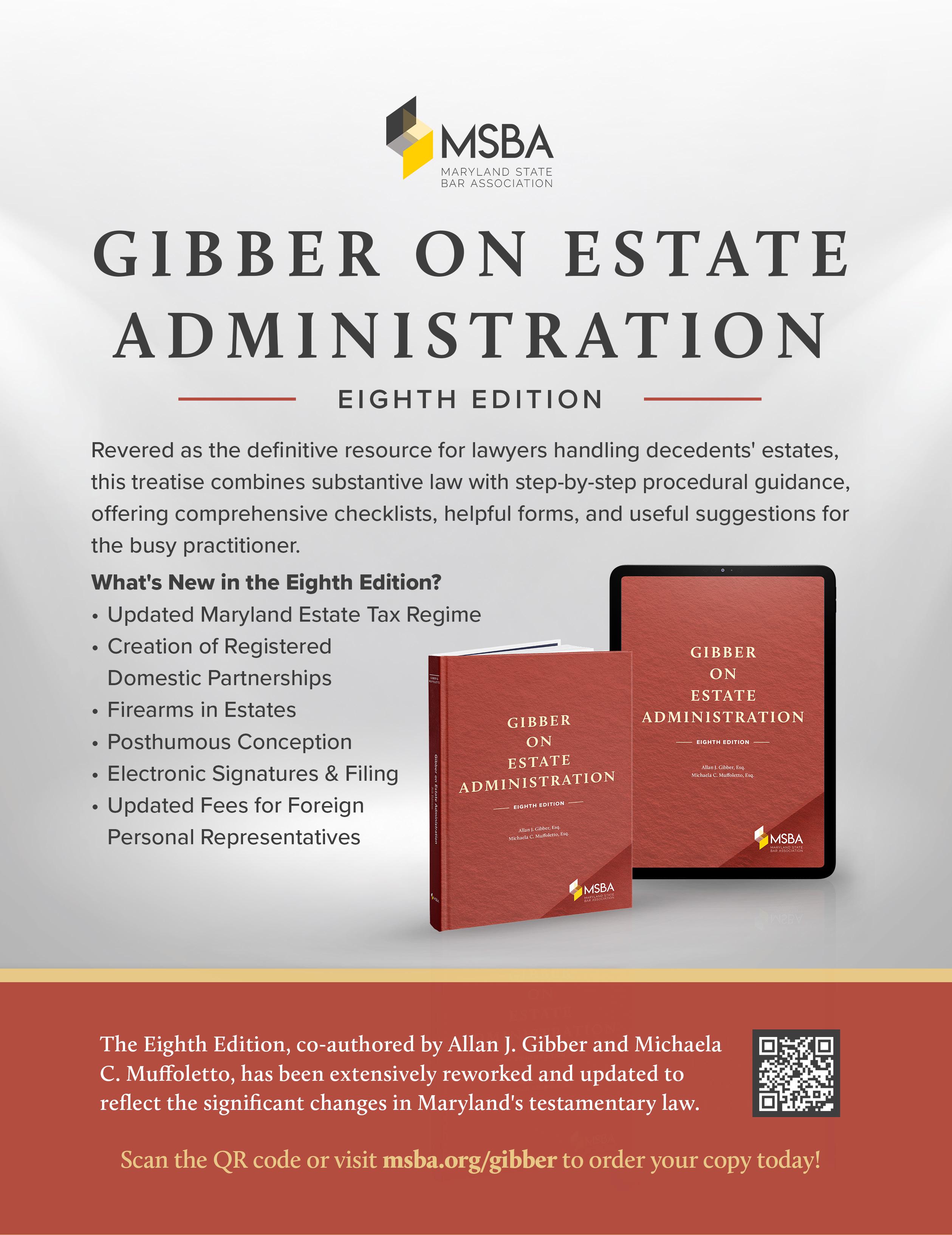
THE MASK OF SUCCESS: When Professionals Live with Abuse
BY AMANDA LEE

Sitting in my office, I snap a photo of the clock in the corner of my computer screen—5:15 p.m.
I send the picture to my husband as proof that I’m still at work because it’s past 5:00 which is when I typically leave. On the rare occasion I’m out on a Friday night, I again pull out my phone and pretend to respond to a text, but really, I’m taking pictures of the women I’m with —as evidence that I’m out with friends he knows. Documenting and proving my daily activities have become my norm. Saturday mornings are always the same: I have at least one child in tow—often all three—because he presumably thinks a child will keep me in check which curtails the accusations and interrogation when I return home. Otherwise, I keep receipts as proof of my whereabouts. Every time my driveway comes in view my heart skips a beat and my chest
tightens. If I see his car as expected, it is a good sign. But if it’s there unexpectedly, he’s likely drunk or angry and I need to mentally prepare for either—or both. If his car isn’t there and it was expected, he likely will not come home until after the credits have run on The Tonight Show, or the Late Show, and on some occasions the morning news. I’m always prepared with an excuse for when the kids ask for Daddy. Each time I enter my house I walk through a glass enclosure leading to the door and I catch a glimpse of the missing pane on the bottom left. I remember the night I shattered that pane with a single kick as I fought to break free from being held against the wall. Whenever I notice someone glancing at the gap, I eagerly offer the explanation that it broke during a storm. For an entire month, I wear my long hair down because

The dual existence experienced by high achieving professionals, such as attorneys, in an abusive relationship is exhausting and complex and often goes unspoken, or worse, is met with shame.
putting it up causes my scalp to hurt from that afternoon that he viciously pulled my hair.
That was a glimpse into the life I lived for almost two decades, prior to leaving that relationship 8 years ago. I am sure by now you have an opinion of me and perhaps have made conclusions. But there is more to my story that I also want you to know. During those decades, and still to this day, I have been a successful litigator. I have first-chaired dozens of jury trials, including felony prosecutions of heinous crimes. I’ve argued in state appellate courts and twice argued and received judgment in my client’s favor in the Fourth Circui—one case which concluded by my successful opposition to a Writ of Certiorari in the Supreme Court. I have defended and advised a billion-dollar organization. I have a top-secret clearance and have advised the federal government on issues that I cannot publicly discuss. I have also been an active member in multiple bar associations and held numerous board positions in organizations dedicated to serving and advocating for women and children. I was appointed by Governor Hogan as a Commissioner on the Maryland Commission for Women. Equally important as these professional successes, I have been cheerleader and chauffeur for my kids’ club sports, coached rec teams, served as girl scout “cookie mom,” chaperoned field trips, hosted a
constant rotation of playdates and sleepovers, organized school fundraisers, and most proudly, raised three incredible children with my baby boy now towering over me.
If you have not experienced domestic violence first-hand, it might be hard to reconcile these two narratives. You may be wondering how one person could simultaneously live both lives. But, for highachieving professionals who have endured domestic violence, this duality is all too real. They are likely reading this with bated breath terrified that any visible reaction might betray their secret, yet aching to shout, “YES. This happens to people like us!”
Societal Narratives and Misconceptions
Domestic violence, also referred to interchangeably as domestic abuse or intimate partner violence, has become a widely recognized issue. People display purple ribbons to show support, October is Domestic Violence Awareness month, and films and books often include storylines about abusive relationships. Yet, despite this widespread exposure and the wealth of available resources offered by non-profit organizations, there remains a significant gap in socially accepted truths and understanding.
The dual existence experienced by high achieving professionals, such as attorneys, in an abusive relationship is exhausting and complex - and often
goes unspoken, or worse, is met with shame. While facing emotional and logistical struggles common to all victims of abuse – such as anxiety, fear, self-doubt, worthlessness, guilt, sadness, stress, and isolation, these individuals must also carry the burden of maintaining a polished exterior. In their professional settings, they’re expected to embody confidence, strength, decisiveness, and composure. The result is an endless internal war: intense, private pain with a curated public persona.
This struggle is compounded by a harmful societal narrative that suggests abuse does not happen to successful, high achieving individuals, and that domestic violence looks a particular way. This leads to many professionals not only questioning whether they are experiencing abuse but also wondering whether it is their fault. And in professional settings where strength is valued and vulnerability is often mistaken for incompetence, the stakes of being exposed are high. They often fear that any perceived sign of weakness will cause others to question their judgment or ability.
The truth is, it is likely that one of your colleagues, or perhaps even you, are currently in an abusive relationship. No level of education, income, social status, or professional achievements can shield a person from this epidemic. But, society continues to perpetuate false narratives:
Professional success is a safeguard against domestic violence; truth is—it’s not.
It doesn’t happen to ‘people like us;’ truth is—it does.
She could just leave; truth is—it’s not that simple.
Society has embraced the idea of a victim who is low income or financially dependent, uneducated, and unemployed or earning minimum wage. And, although statements that ‘abuse knows no boundary’ are included in all domestic violence campaigns, society often shuns the truth that a victim could also be someone who holds an advanced degree, has a successful career, is in a position of authority or leadership, is known and respected in their community, or is financially independent. Moreover, the common description of domestic violence is limited to physical abuse – the stereotypical woman with the black eye or broken arm. But this fails to address other forms of abuse that fall under the domestic violence umbrella – these other types of abuse are typically less understood, yet equally and sometimes more traumatizing. These misconceptions have dire consequences to victims who don’t fit the accepted mold.
Fellow members of the bar and other professional colleagues will continue to suffer these consequences until we begin
to openly engage in crucial conversations. I understand that challenging a widely accepted narrative may take more than one person’s story to shift your perspective. You may find yourself doubting my assertions - or even distancing yourself by mentally editing your own story to avoid discomfort. If you are doing either, you aren’t alone. It is common for even those directly affected to minimize and deny the idea that members of the bar can experience abuse.
The Challenges of Collecting Accurate Data
Collecting accurate data about domestic violence is difficult, but even more difficult is obtaining data on professionals who experience it – likely the main reason being underreporting and not seeking services due to shame, fear, and unmet needs. I personally avoided any opportunity to be included in a data set. I refused, denied, and minimized any act that would have deemed me a victim. I wouldn’t report to authorities, I wouldn’t seek services, and I would never admit anything to an independent researcher. As a prosecutor, I referred victims to local organizations for services; but I would not seek the same. Doing so could have broken the wall between attorney and client, and I feared if colleagues found out they would question my ability to handle cases. And even if I was willing to seek assistance, the compilation of services offered by the local organizations did not meet my needs. I did not need shelter, necessities, or legal advice. I needed financial advice about how to protect my assets, assistance maintaining an active household with a demanding career, or group support with people who related to my lifestyle. And finally, I was not going to call the police. They were my colleagues, witnesses, and clients.
My personal theory on the lack of data about professionals experiencing domestic violence is not purely subjective conjure, though. When I searched for relevant data, it was difficult to find. Ironically, the Department of Justice posted one article1, and it wasn’t even from the United States. The 2005 research article was from a South African journal, but it clearly captured the problem that I knew existed: “Despite the fact that emotional abuse within intimate relationships is a widespread form of violence found in countries around the world, it is rarely recognized as a form of violence. Indeed, there has been a paucity of research in the area of intimate partner emotional abuse, particularly in South Africa and particularly where the abused partner is a professional woman.” In 2024, the Council on Criminal Justice posted a research article that analyzed domestic violence criminal data and concluded, “Because of [stated] factors, the United States has no solid grasp on how much domestic violence actually occurs in communities.”2
1 Professional Women as Victims of Emotional Abuse Within Marriage or Cohabitating Relationships: A Victimological Study, M. Barkhuizen; R. Pretorius, Acta Criminologica Volume: 18 Issue, p.10-20 (2005). https://www.ojp.gov/ncjrs/virtual-library/abstracts/professional-women-victims-emotional-abuse-within-marriage-or
2 Toward a Better Estimate of Domestic Violence in America, Alex R. Piquero, Ph.D, Andrew Wheeler, Ph.D., (2024) https://counciloncj.org/toward-a-better-estimate-of-domesticviolence-in-america/
The truth is, it is likely that one of your colleagues, or perhaps even you, are currently in an abusive relationship. No level of education, income, social status, or professional achievements can shield a person from this epidemic.
Sobering Statistics
Even with the challenges in collecting accurate data, the statistics we do have are sobering. Reports state that one in three women and one in four men have experienced domestic violence in an adult relationship, one in four women and one in seven men experience physical violence by an intimate partner,3 and 95% of individuals who call the national domestic violence hotline report experiencing emotional abuse.4
A recent experience that I had serves as an important data point in conjunction with formal statistics. I attended a networking social event with a local group of elite attorneys and judges from across the legal profession. Because I was not a regular attendee, I was given the opportunity to briefly introduce myself to the entire group. There were at most 70 women, likely less. I shared that I started a consulting firm to break the silence around professionals experiencing domestic violence and to provide direct services. After this introduction and without prompting, two individuals separately pulled me aside. With tears in their eyes, both discreetly confided that they have experienced domestic abuse as a practicing attorney. They thanked me for using my voice to speak the truth, although they were not comfortable doing so, citing fears of judgment and professional repercussions. Three of us in that small room experienced and hid domestic violence while building successful legal careers. I often wonder how many others left that event carrying this heavy secret, and silently grateful to hear that they aren’t alone.
NECESSARY STEPS TOWARDS CHANGE
What can be done so that fewer people carry this burden?
EDUCATE .
No matter the label - domestic violence or abuse –true understanding is essential. Domestic violence is defined as abusive behavior that is part of a systemic pattern of power and control perpetrated by one person in an intimate relationship against the other. Physical violence may occur, but not necessarily. Other forms of abuse include psychological, emotional, financial, sexual, and more. These can be perpetrated in many ways such as belittling, insulting, gaslighting, manipulation, withholding or controlling money, forced sexual acts or sexual shaming, monitoring or controlling communication, or isolation from family or friends.
RECOGNIZE AND RE-EVALUATE.
We must challenge a common theory that someone experiencing abuse is weak or should be treated differently than someone who is not. To understand a person enduring abuse, it is important to recognize the immense strength it takes to survive each day. These individuals often live in a state of hyper vigilance, sleep-deprived due to anxiety and fear yet expected to perform at the highest level – sometimes flawlessly, both professionally and personally. They cannot afford to show weakness, and so they often master survival skills that simultaneously benefit them at work; meticulous attention to detail, being proactive and calculated, remaining calm in stressful situations, excelling at multitasking, and arguably most impressive is their hidden, unwavering, strength. The mental, and sometimes physical, strength it takes to maintain composure while hiding fear and anxiety could bring many to their knees. But these individuals silently carry an unbearable weight while building success. So, I ask you, if a woman can command a room, innovate, strategize, be successful, lead with compassion, and earn respect, all while burdened by an invisible weight, what could she do when the burden is lifted?
3 Domestic Violence, Martin R. Huecker, Kevin C. King, Gary A. Jordan, William Smock (2023) https://www.ncbi.nlm.nih.gov/books/ NBK499891/#:~:text=According%20to%20the%20CDC%2C%201,sexual%20violence%20during%20their%20lifetimes
As important as education is to minimize shame and build confidence, without specific services, an individual could be stuck in the perpetual wheel of survival with no time to focus on their escape.

ENGAGE.
It may start with one person, but together we can change the narrative and empower individuals. By being proactive, our firms, organizations, and our profession can improve our culture. This is preciously why I created The Lee Consultants (TLC), a consulting firm dedicated to transforming the narrative around high-achieving professionals who experience domestic abuse.
Join the Movement
This change will only happen with intentional steps. As the great Socrates said, “There is only one good, knowledge, and one evil, ignorance.” Ignorance fuels shame and stigmas and this has negative impacts in our profession. But by embracing the unknown, openly seeking to better understand, and engaging in difficult conversations, our firms and companies will affirm the commitment to employee wellbeing. Studies have shown that this commitment enhances employee performance which may ultimately result in profitable outcomes. Supported employees have increased productivity, availability, innovation, and a higher retention rate, amongst other benefits. In addition to focused trainings, ensuring your policies and practices address this issue, and offering specific services as part of your employee benefits package is another groundbreaking move to show support for your attorneys and professional colleagues.
As important as education is to minimize shame and build confidence, without specific services, an individual could be stuck in the perpetual wheel of survival with no time to focus on their escape. Direct, individualized, services provide the support and guidance needed while meeting the unique needs of an attorney attempting to sustain professional success while navigating their situation.
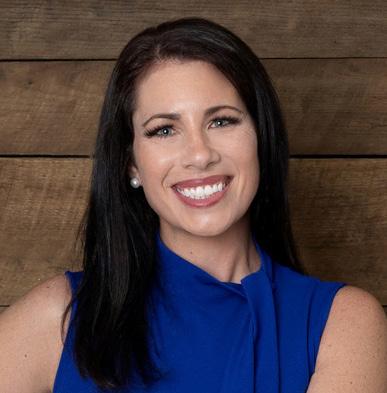
Amanda Lee is the Founder of The Lee Consultants (TLC), a firm dedicated to transforming the narrative around high-achieving professionals who experience domestic abuse. Amanda raises awareness and challenges misconceptions, while also offering tailored support services to meet the unique needs of this demographic.
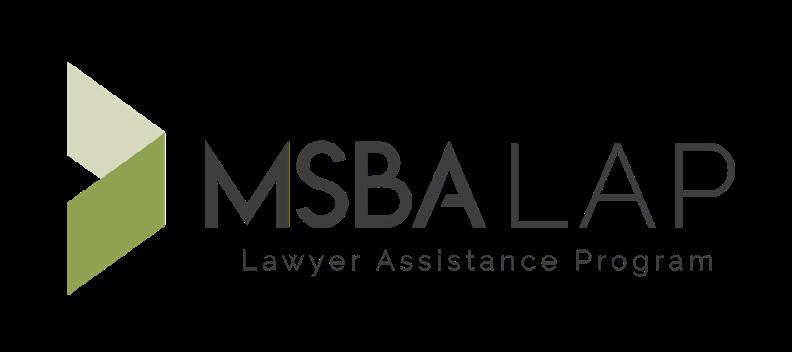
If at any time you are in immediate danger call 911. The Maryland Lawyer Assistance Program (LAP) has assisted thousands
The Lawyer Assistance Program provides free, confidential assistance to all Maryland lawyers, judges, law school students, and support staff by offering assessment, referral, short-term counseling, and continued support to ensure long term success. If you are concerned about another lawyer you can make an anonymous referral to LAP. We offer financial assistance for Mental Health and Addiction Treatment.
Please feel free to reach out to our LAP Committee Members and Volunteers www.msba.org/health-and-wellness/
NAVIGATING CHANGE

Best Practices for Working with a Headhunter
BY ARTHUR POLOTT, ESQ.
THE GREEK PHILOSOPHER, Heraclitus, is attributed to have said that “Change is the only constant in life.” Implicit in the concept of change is uncertainty and the exploration of the unknown or unfamiliar and this terrain is often intimidating. In the context of professional change, the stakes and anxiety surrounding a career move are particularly high. Understandably, when professional ambitions, compensation, and support for family goals, as well as personal happiness and security are all riding on a successful professional change, one way to help navigate the challenges and stress of a professional move in the legal sector is to partner with a professional search consultant. A legal search consultant is someone who has helped many others similarly situated to yourself navigate the ambiguities of the legal market. In addition to having insights and experience legal search consultants deliver industry connections that may help you manage the challenges of a change. Does this mean that a legal search consultant, or headhunter, can help everyone find that ideal new position? No, not necessarily, but the right professional can definitely help you along the way and inform your process.

Best Practices for Working with an Attorney Search Consultant: Navigating Career Changes
When a lawyer is considering making a career change, whether it’s moving from a national or international law firm, transitioning between regional or small firms, shifting from government work into private practice, or exploring an in-house position, navigating this process can be both exciting and overwhelming. In these pivotal, life changing moments, working with an attorney search consultant can provide invaluable guidance. A headhunter’s expertise and knowledge of the market can help lawyers understand their marketability, assess their career options, connect with potential opportunities that match their skills, goals, and aspirations, and support the lawyer in salary discussions. To maximize the success of a search and to ensure a smooth and effective partnership, there are certain best practices that lawyers should follow when working with an attorney search consultant.
The Role of an Attorney Search Consultant
A legal recruiter helps lawyers navigate career transitions by leveraging our extensive networks, market knowledge, and expertise. We help guide attorneys through the job search process, offering advice on how to enhance their marketability, and facilitating connections with law firms, corporate legal departments, or other potential employers. It is important to understand the value they bring to the table. And it is also important to understand that the fee
Be Transparent About Your Goals and Preferences
The first step in working effectively with an attorney search consultant is ensuring that both parties are on the same page regarding your career goals. Share as much information as possible about your current situation, motivations for wanting to make a change, and long-term career goals. The more details the consultant has, the better they will be able to identify opportunities that match your interests and aspirations. In addition to career objectives, make sure to discuss any deal-breakers, such as geographical preferences, work-life balance, specific practice areas, compensation, or firm culture. Transparency will help the recruiter you’re working with narrow down the pool of potential employers and save you both time in the process.
Trust Their Expertise
The headhunter’s role is to listen and understand the lawyer’s goals and career objectives and then provide the lawyer with a roadmap. It’s essential to trust their guidance and to discuss openly the advice given. Reframed, it’s vital that the headhunter earn your trust by demonstrating that they understand what you’re looking for and can help you execute on your goals. Search consultants have deep industry knowledge and are often aware of job openings or potential positions that aren’t publicly advertised. We also understand the nuances of different firms and in-house legal departments, which means we can match
In the context of professional change, the stakes and anxiety surrounding a career move are particularly high.
earned by the search consultant is contingent on their making a successful placement. Recruiters work on behalf of law firms, corporate legal departments, or other employers to find qualified candidates. Nevertheless, many headhunters will also work with individual lawyers who are looking to make a change and we offer career counseling, help in identifying opportunities, advice on resume and business plan documents, and assistance with negotiating job offers.
your experience and skill set with opportunities that may be a good fit.
Be Open to Feedback and Constructive Criticism
An experienced attorney search consultant can give you an honest assessment of your marketability and offer suggestions on how to improve your candidacy. This may include refining your resume, enhancing your interviewing skills, or suggesting areas of professional development. It’s important to approach these critiques with an open mind and recognize that feedback is part of the process to help you succeed in your job search.


Stay Engaged and Responsive
Whether you’re seeking an associate, counsel, partner, or in-house position one must recognize that a job search takes time. It may be cliché to say that “waiting is hard” or that “silence is deafening,” but to the lawyer anxious to make a change that’s particularly true. When facing delays the recruiter can nudge the process along and maintain open lines of communication to keep the principals informed. Nevertheless, attorneys may experience uncomfortable periods of waiting and it’s critical to stay engaged in the process and remain responsive to your consultant’s updates, requests for information, or need to schedule interviews. Keep the recruiter informed of any changes in your availability, preferences, or status. Likewise, if you’ve received offers from other firms or in-house positions, let your headhunter know so they can adjust their strategy accordingly. It’s also important to stay engaged with your search during the “waiting” periods so that you can remain positive and ready for next steps.
Maintain a Professional Relationship
The relationship between you and your attorney search consultant is built on trust and professionalism. Ensure that you communicate in a professional manner and respect timelines and expectations. Maintain an open line of communication and, throughout the search process, be sure to keep the consultant informed about any progress you may be pursuing on your own. And expect the same in return. Even if you’re not interested in a particular opportunity, communicating this clearly and professionally is crucial.
The headhunter’s role is to listen and understand the lawyer’s goals and career objectives and then provide the lawyer with a roadmap.
Working with a professional legal search consultant can help a lawyer navigate change and uncertainty in the course of their search. A successful process is collaborative, consultative and transparent. A legal recruiter will alert the attorney to unposted openings, help them prepare for interviews, use their connections to procure interviews, and work to solicit feedback. The job search process can often feel like a rollercoaster ride, especially when dealing with the uncertainty of career transitions. Staying motivated and positive throughout the process is critical to making a successful change.
Working with an attorney search consultant can be a highly beneficial process for lawyers looking to make a career change. Whether moving from a large firm to a regional firm, shifting to in-house, or transitioning from government to private practice, the right consultant can provide essential guidance and support throughout the journey.
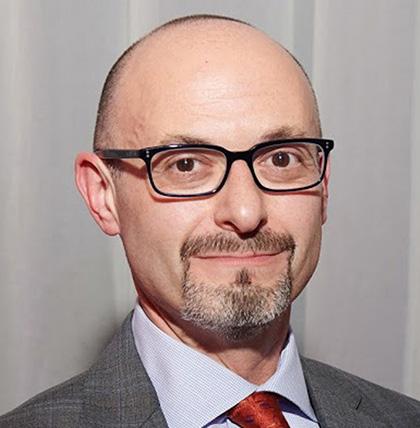

Arthur Polott, Esq. is a graduate of The University of Texas and earned his JD from Case Western Reserve University School of Law. He practiced commercial and civil litigation in Houston before relocating to DC. Arthur founded Gateway Legal Placements in 2007 to focus on law firm and in-house placements in the DC metro area; his current practice focuses on facilitating lateral partner moves. Polott speaks fluent Russian and volunteers in the community.

"Earned Upon Receipt" for Attorney Fee Arrangements Ended in Maryland
Effective July 2025
BY KELSEY B. WILLIAMS
Effective July 1, 2025, attorneys practicing law in Maryland may no longer state that their fees are “earned upon receipt” in their engagement agreements.
EFFECTIVE JULY 1, 2025, attorneys practicing law in Maryland may no longer state that their fees are “earned upon receipt” in their engagement agreements. Under the new, amended Rule 19-301.15, “[a]n attorney shall deposit into a client trust account legal fees and expenses that have been paid in advance, to be withdrawn by the attorney only as fees are earned or expenses incurred.”
Under the expiring Rule 1.15, an attorney was permitted to deposit fees directly into their operating account if the client gave “informed consent, confirmed in writing[.]” Informed consent required that the attorney give their client any explanation reasonably necessary to inform the client of the material advantages and disadvantages of the proposed course of conduct and a discussion of the client’s options and alternatives. This Rule mirrored the District of Columbia Court of Appeals’ decision in In re Mance, 980 A.2d 1196 (D.C.
2009), which held for the first time that an attorney may treat fees as earned upon receipt with informed consent confirmed in writing. Importantly, this means that the Maryland Rule will no longer align with the District of Columbia’s version of the Rule.1
The Rule, therefore, no longer permits a “carve-out” for informed consent. The change to Rule 1.15 can be visualized as follows, with the new portions of the Rule highlighted and in bold:
(c) An attorney shall deposit into a client trust
1 Compare Md. Rule 19-301.15(c) (eff. July 1, 2025), with D.C. R. Prof. Conduct, Rule 1.15(e) (stating that “[a]dvances of unearned fees and unincurred costs shall be treated as property of the client . . . unless the client gives informed consent to a different arrangement). See also Attorney Grievance Commission of Maryland, Notice: Changes to Maryland Rule 19-301.15, available at https://www.mdcourts.gov/ sites/default/files/import/attygrievance/pdfs/rule19_301_15changes.pdf.
To be sure, it is an attorney’s ethical duty—regardless of the type of representation—to be reasonably available to their clients.
account legal fees and expenses that have been paid in advance, to be withdrawn by the attorney only as fees are earned or expenses incurred.
Per the Rules Committee, this change is linked to the change to the former Rule 2-652(a), which governed what was referred to as “common law attorneys liens.”2 The previous Rule 2-652(a) provided that an attorney who had a “common-law retaining lien” for legal services rendered to a client could assert the lien by retaining the client’s papers until the attorney’s fees were satisfied.3 In its 211th Report of the Rules Committee, the Committee recommended the change because “common-law attorneys’ liens” appeared to be in conflict with the Rules of Professional Conduct 19-301.16, which requires attorneys to surrender clients’ papers upon termination.4 The Rules’ Committee stated in its Reporter’s Note: “In the wake of the [repeal of the common law attorneys’ lien], the Rules Committee received a request to revise Rule 19-301.15 to bring it into closer alignment with American Bar Association Model Rules of Professional Conduct Rule 1.15 (Model Rule 1.15).”5
The Rule change addresses an “advance payment,” not a traditional retainer. Although often used interchangeably in the legal field, there are differences between advanced payments and retainers. Simply put, as explained by the Maryland Supreme Court, an advanced payment is an advance on the fee that the attorney will eventually earn through their work, or “a payment to an attorney for future services.”6 As discussed in more detail below, common examples of advanced payments are an hourly agreement that requires a client to pay $5,000.00, up front, to then be used to pay the attorney’s hourly fee, or a flat fee arrangement where the client agrees to pay a flat fee of $5,000.00 for the terms of the representation.
A retainer, on the other hand, “is a fee paid, apart from any other compensation, to ensure that a lawyer will be available for the client if required.”7 The retainer does not pay for the attorney to provide legal services. Instead, it is paid, among other things, in consideration of the attorney’s expertise and skill in a given area of law, as a basis for the attorney prioritizing the client’s case over other work, in consideration of the attorney regularly keeping up with the areas of law that affect that client, and in
consideration of the attorney having to turn away other work that they could have otherwise accepted.8 Therefore, separate and apart from the retainer, the attorney will be “additionally compensated for actual work, if any, performed.”9
The quintessential example of a true retainer is as follows: a prospective client contacts an attorney, saying that they received a tip that they would be arrested next week and that they want an attorney to be available to them in case they are arrested, interrogated, possibly indicted, etc. The attorney and the client then enter into a retainer engagement agreement, where the attorney agrees to reject other work to make sure they are available to the client. The attorney also agrees to reject other possible clients, such as a possible co-defendant, in order to avoid a potential conflict of interest with their own client. This is what the client pays for when they enter into a retainer engagement agreement: the client pays for the attorney’s availability, and the attorney’s responsibility to reject other work that would prevent the attorney’s availability.
Retainers are also used in the corporate field. For example, an attorney may enter into a retainer engagement agreement with a corporation. By entering into this retainer agreement, the attorney agrees not to represent other corporations that might, one day, present a conflict of interest to the attorney’s client. For example, the attorney might agree not to engage with any other corporations in the technology space, even if that corporation has no present relation to their client, in case one day, the two corporations are averse to one another for any reason. The attorney would also stay on top of changes in federal regulations and other laws that affect the corporation’s business. Again, the retainer does not buy the legal services, but it buys the attorney’s availability to provide these services.
To be sure, it is an attorney’s ethical duty – regardless of the type of representation – to be reasonably available to their clients.10 Therefore, an attorney cannot simply attempt to convert an advanced fee into a retainer simply by changing the name of the engagement agreement and expect to be in compliance with the Rules. For example, an attorney attempted to charge their clients a “non-refundable engagement fee,” which they argued was a retainer, because the Agreement stated that it was paid “for the
2 Standing Committee on Rules of Practice and Procedure, 223rd Report at 254 (July 18, 2024), available at https://www.mdcourts.gov/sites/default/ files/rules/reports/223rdreport.pdf.
3 Md. Rule 2-652(a) (repealed December 2022).
4 Standing Committee on Rules of Practice and Procedure, 211th Report at 6 (July 11, 2022), available at https://www.mdcourts.gov/sites/default/files/rules/reports/211threport.pdf.
211th Report at 6. Of course, statutory attorneys’ liens remain, and they continue to be governed by Md. Rule 2-652 and Md. Code Ann., Bus. & Occ. Art. § 10-501.
5 Standing Committee on Rules of Practice and Procedure, 223rd Report at 254 (July 18, 2024), available at https://www.mdcourts.gov/sites/default/files/rules/ reports/223rdreport.pdf.
6 Attorney Grievance Commission of Maryland v. Jones, 484 Md. 155, 199 (2023).
7 Restatement (Third) of the Law Governing Lawyers § 34 cmt. e (Am. L. Inst. 2000) (cited by Jones, 484 Md. at 199).
8 Attorney Grievance Commission of Maryland v. Stinson, 428 Md. 147, 184 (2012).
9 Id.
10 See Md. Rule 19-301.4.
Attorney’s (1) willingness to provide legal advice and services to the Client; (2) ensuring their availability to the Client; and (3) willingness and availability to represent the Client, for reasonable fees, in transactions and litigation.’”11 The Supreme Court of Maryland held that “the benefit provided to [the client] in exchange for her payment of a nonrefundable . . . fee ‘was nothing more than the ethical obligation imposed on all lawyers when they agree to provide legal services to a client.’”12 The Supreme Court ultimately upheld this attorney’s disbarment (for this and other serious violations).13
To be sure, attorneys may still charge advanced fees. The important distinction is that attorneys may not treat these advanced fees as earned upon receipt. The unearned fees must be kept in trust until those fees are earned.14 For an hourly agreement, this arrangement is rather straightforward. If an attorney charges a $5,000.00 advanced fee for their hourly agreement, they must keep the $5,000.00 in their trust account and only withdraw these funds into their operating account when they work the hours to earn these funds. When the rule change to Md. Rule 19-301.15 was presented to the Rules Committee, the presenting attorney “noted that there is still peril for lawyers who charge a flat fee regarding when that fee can be deemed ‘earned,’ but the amendment clarifies the Rule for cases where the attorney charges an hourly rate.”15
The change to Rule 19-301.15 affects advanced flat fees, but this does not mean that advanced flat fees are now, per se, unethical. Instead, an attorney must be careful to remove any language from their agreement stating that they may treat the fees as earned upon receipt. A flat fee arrangement includes when an attorney, for example, agrees to represent a client in the administrative and criminal proceedings for their charge of driving under the influence for a “flat fee” of $5,000.00.16 Charging a flat fee meets an attorney’s ethical duties, even under the Rule change, provided that the fee is reasonable under Md. Rule 19-301.5.17 As the Supreme Court has explained, charging a flat fee can be “thought of as a risk allocation mechanism.”18 The client risks that they will pay more than they would have for an hourly arrangement, and the attorney risks that they earn less than they would have if they
11 Stinson, 428 Md. at 184.

The change to Rule 19-301.15 affects advanced flat fees, but this does not mean that advanced flat fees are now, per se, unethical.
had charged by the hour.19 Still, a “full flat fee is not earned until all the work associated with the fee is completed.”20 Therefore, in the above example, an attorney could not deposit a flat fee into his operating account until the DUI proceedings are completed.
Attorneys practicing in Maryland should be careful to take note of the change. Issues with comingling fees are one of the most common issues that catch the attention of the Attorney Grievance Commission. Rule violations relating to fees can – and often do – lead to discipline.
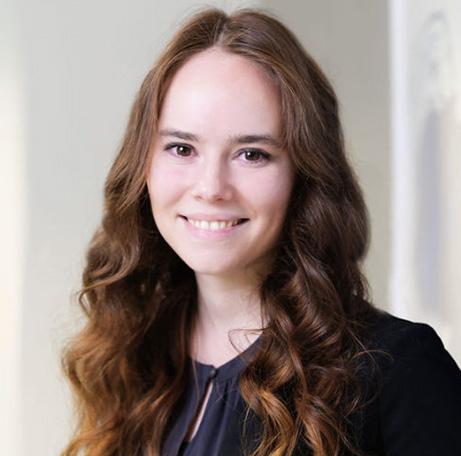
Kelsey Williams is an associate attorney with Carr Maloney, P.C., and is admitted to practice law in Maryland and the District of Columbia. She graduated cum laude from the University of Maryland Francis King Carey School of Law in May 2021. She then completed a clerkship with The Honorable Kathryn Girll Graeff on the Maryland Appellate Court. Her practice focuses on legal ethics and professional liability, including legal malpractice. She has represented clients in federal and state courts in Maryland and in the District of Columbia, and she has represented clients in disciplinary proceedings and investigations with the Maryland and District of Columbia bars.
12 Id. (quoting Iowa Supreme Court Bd. of Professional Ethics and Conduct v. Frerichs, 671 N.W.2d 470 (Iowa 2003)).
13 Id. at 197.
14 Md. Rule 19-301.15(c).
15 The Supreme Court Standing Committee on Rules of Practice and Procedure, Minutes of March 15, 2024, Meeting, at 46, accessible at https://www.mdcourts.gov/sites/default/files/ minutes-rules/minutes20240315.pdf.
16 See Jones, 484 Md. at 199 (“A flat fee . . . is a type of advance payment.”).
17 See id. at 204 (“An attorney may not contract out of their ethical obligation to charge reasonable fees.”).
18 Id. at 203.
19 Id.
20 Id. at 204 (quoting Attorney Grievance Commission v. Zuckerman, 386 Md. 341, 360 (2005).




Proper Ways to Leave Your Law Firm
BY IRWIN R. KRAMER, ESQ.
I gave ten years of my life to this firm. But I think I’ve reached my limit on the fees that I can earn.
I should fly solo, yet there’s much I must learn.
What are the proper ways to leave my law firm?
When You Depart Your Firm You Must Act Ethically To Get Off to a Great Start Once You Really Do Break Free. If You Are Ready, Just Listen to Me About the Proper Ways To Leave Your Law Firm.
It’s Okay to Plan, Fran
Your career is important. But your clients still come first. Thoughtful planning is essential in meeting your professional responsibilities.
While abrupt departures are a last resort, you must still be prepared to leave immediately if your boss feels otherwise. Before announcing your departure, you may contract for office space and equipment, form a partnership with other departing colleagues, order stationery, and take whatever practical steps may be required to minimize any disruption to your active clients.
It’s unwise to build a new firm while burning bridges with your old one. Don’t solicit clients or sign new ones behind your employer’s back. The same is true of efforts to recruit firm associates, paralegals, and secretaries. Though certain clients and staff may follow you to your new firm, clandestine deals will offend your current partners and subject you to claims of unfair competition, a breach of fiduciary duties, or intentional interference with contractual relations.
Even if you don’t engage in outright solicitation, announcing your impending departure to clients or staff before notifying your partners may be misconstrued. You may engage in “exploratory conversations” designed to assess the portability of your practice in the event of a “hypothetical departure.” But to avoid an appearance of impropriety, you must be very careful about what you say and to whom you say it.
Whether or not you anticipate turbulence from members of your current firm, consult with legal ethics counsel to help you plan the move in compliance with the Rules of Professional Conduct, to smooth your transition, and to serve as an intermediary to help resolve any disputes that arise in the course of your departure.
Don’t Rip Off the Files, Myles
As a departing lawyer, you “can’t take it with you.” Without permission, you can’t take files with you when departing your current firm. Those who do face grievances and lawsuits from the lawyers they leave behind. After proper consultation with your firm and your clients, you may maintain representation in many of your cases and take their files to your next destination. But if you’re not careful, your old firm may accuse you of stealing its business, failing to protect client property, or shirking your duty to maintain the confidentiality of the information contained in these sensitive materials.
Law firm breakups can get nasty at times. In a battle for “turf protection,” some firms have obstructed the departing lawyer’s access to their own clients and improperly withheld paper files. If you anticipate such interference, you may wish to protect them from a delay in the transfer of a paper file by downloading important materials that were stored electronically.
It’s unwise to build a new firm while burning bridges with your old one. Don’t solicit clients or sign new ones behind your employer’s back.
Technology may be helpful in that situation. But it’s also a powerful tool for the unauthorized copying of proprietary information. Using a portable hard drive, one can literally drag, drop, and steal all of a firm’s data in a matter of hours. Regardless of the technology used, you won’t be able to justify the theft of client lists, billing rates, financial statements, salary and human resources information, marketing materials, and other trade secrets.
To the extent that you personally prepared pleadings, forms, or other legal documents that may technically belong to the firm, you can probably download these materials without raising eyebrows. Lawyers typically accumulate such materials in their travels to use as forms later on. But if you’re not the author, leave it be.
There’s Much to Discuss, Gus
To quote another song, “breaking up is hard to do.” You can’t always predict and certainly can’t control your boss’s reaction. But you can announce your departure in a positive and professional manner, which may set the tone for a smooth and friendly transition.
Timing matters. If possible, don’t spring this on your colleagues on the eve of a big trial or other hectic firm business. You should certainly provide the firm with at least two weeks ’ notice, but even that may be too abrupt in many cases. Keep the message positive. Express gratitude for the opportunities and experiences provided at the firm and do not use the occasion to gripe or criticize. Treat your boss like you would wish to be treated if the roles were reversed. Recognize that your departure will create a range of issues and come prepared to address each one. Pledge your cooperation to assure that client matters and deadlines are met, and work with the firm to alleviate any hardship that may result.
Before the meeting, prepare a list of matters that you wish to keep, placing primary emphasis on clients that you brought to the firm and with whom you have strong attorneyclient relationships. You should also give thought to the division of fees and other compensation associated with contingency cases that you have worked on and those you may take with you.
Be reasonable and flexible. Fighting over one extra case or demanding a slightly greater percentage of contingency fees may make a difference in the short run. But if this goes well, you will build a referral source that may pay dividends for years to come.
Clients Get the Choice, Joyce
Just as no one owns you, no one “owns” the clients you represent.
Both you and your current law firm must inform each affected client of your impending departure, confirm the client’s autonomy in choosing counsel, and respect the client’s decision. Under Rule 1.4 of the Rules of Professional Conduct, you both have a duty to keep these clients reasonably informed about the status of their cases and to provide the information needed for them to make informed decisions regarding the representation.
Ideally, this should be presented in the form of a joint letter that is free of posturing over the client’s ultimate selection of counsel. Unless you’re leaving the practice area or the matter would conflict with those at your new firm, these clients should be given the option of staying with your old firm, staying with you, or taking their business elsewhere. Since the client must make an informed decision regarding representation, the letter must also disclose your contact information at the new firm.
You must not call or meet with clients that you haven’t personally represented. When you speak with those you have represented, you may certainly answer questions about your new
Whether or not you anticipate turbulence from members of your current firm, consult with legal ethics counsel to help you plan the move in compliance with the Rules of Professional Conduct, to smooth your transition, and to serve as an intermediary to help resolve any disputes that arise in the course of your departure.
firm, billing rates, and other important details. But avoid direct comparisons with your current firm, and always emphasize the client’s right to choose whatever lawyer they prefer.
After you leave, you may send professional announcements to other firm clients. But I wouldn’t recommend it if you wish to maintain a good relationship with your former firm. Doing so will cause resentment, arouse suspicion that you may have stolen client lists, and turn an ally into an enemy. Fish in someone else’s pond.
No Need to be Snide, Clyde
If at all possible, leave on good terms. Don’t disparage your colleagues on the way out the door. Regardless of how you may truly feel about your old firm, a true professional refrains from disparaging other lawyers or comparing one firm with another. If you have developed a positive attorney-client relationship, keep it positive. Focus on your qualities as counsel. Nothing else really matters.
Then Drop Off the Key, Bea. And Live Prosperously.

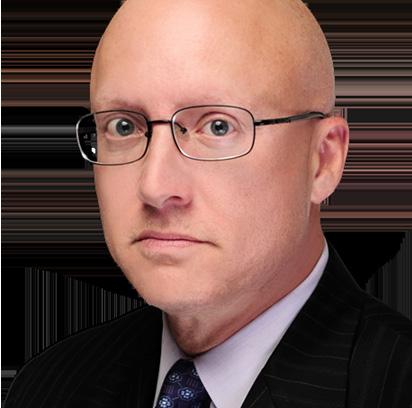
Irwin R. Kramer advises lawyers and law firms throughout Maryland and the District of Columbia. Combined with significant trial and appellate experience, his law firm management experience gives him an appreciation for the pressures of law practice and the ethical issues confronting lawyers daily. He also publishes a regular blog on ethics issues at https://attorneygrievances.com.

What Do You Really Have Control Over?
UNDERSTANDING CIRCLE OF CONCERN VS. CIRCLE OF CONTROL
BY LISA CAPLAN, DIRECTOR OF THE LAWYER ASSISTANCE PROGRAM
IN OUR DAILY LIVES, we constantly juggle concerns and responsibilities, many of which lie beyond our control. To help navigate this complexity, it's useful to understand the difference between the two concepts: the Circle of Concern and the Circle of Control.
CIRCLE OF CONCERN
The Circle of Concern includes everything you care about or worry about, but cannot directly influence. These external factors often cause stress and anxiety because they are beyond your personal control. Examples include global events, the weather, and other people's actions.
CIRCLE OF CONTROL
On the other hand, the Circle of Control consists of everything you can directly control, such as your actions, responses, attitude, and decisions. These are factors within your personal sphere of influence—things you can change or manage.
Understanding the difference between these circles can significantly reduce stress, improve focus, and increase productivity. Focusing your energy on what you can control is empowering.
TIPS FOR MANAGING YOUR CIRCLE OF CONCERN
Acknowledge what you can’t control: It's natural to worry, but the more we focus on something, the more energy we use and the more we snowball the concern or emotion. Recognizing that some things are beyond your influence will help conserve your emotional energy. Cut back on social media: Social media will suck the life right out of you. It can amplify negative emotions by encouraging comparisons with others. Most people share only the highlights of their lives, not their struggles. If social media leaves you feeling bad about yourself, consider taking a break.
Limit exposure to stressful news: Make decisions with intention. While staying informed is important, too much negative news can enlarge your Circle of Concern. Set boundaries on news consumption to protect your mental well-being.

By focusing on what you can control and accepting what you cannot, you’ll create more peace, satisfaction, and emotional resilience in your daily life. Balancing your Circle of Concern and Circle of Control can bring clarity, reduce stress, and increase your sense of fulfillment.
Practice acceptance: Embrace the things you can’t change. This can be done through mindfulness practices like meditation, which allow you to focus on the present and accept external circumstances without judgment.
Empathy, not responsibility: While it’s important to care about others, you don’t have to feel responsible for solving their problems. Offer support where you can, but release the need to fix everything.
TIPS FOR EXPANDING YOUR CIRCLE OF CONTROL
Focus on your actions: You may not control what happens to you, but you can control how you respond. Thoughtful, calm reactions to challenges expand your sense of control and help you stay grounded.
Set personal goals: Creating clear, actionable goals within your control gives you a sense of purpose and empowerment. Rather than worrying about the unknown, focus on what you can achieve today.
Listen to your body: I tell my clients that your body will talk to you, and if it needs to slow down and you don’t listen, it will slow down for you. This may come in the form of an illness or injury. Focusing on your body can help empower and ground you to the here and now.
Cultivate positive habits: Develop routines that promote physical and mental health, such as exercise, journaling, or effective time management. Habits create stability and reduce stress from external factors.
Shift your perspective: When facing challenges, assess what parts are within your control and focus on those. Reframing your approach can make problems feel more manageable. Develop emotional intelligence: Learn how to manage your emotions. While you
can't control external circumstances, you can control how you respond emotionally to them.
CREATING BALANCE BETWEEN THE TWO CIRCLES
Control your inner world, not the outer world: While the world around you is unpredictable, you can control how you react to it. Focus on cultivating internal balance rather than trying to control external circumstances.
Be proactive, not reactive: When faced with things beyond your control, take proactive steps to manage your responses. Whether it’s taking a break, reaching out to a friend, or using relaxation techniques, these actions help return focus to your Circle of Control.
Limit the “What-Ifs”: Constantly asking “What if?” can trap you in the Circle of Concern. Shift your focus to the present moment and what you can do now.
By focusing on what you can control and accepting what you cannot, you’ll create more peace, satisfaction, and emotional resilience in your daily life. Balancing your Circle of Concern and Circle of Control can bring clarity, reduce stress, and increase your sense of fulfillment.
Now that you have read the article, let’s practice taking control of what you can.
The Lawyer Assistance Program(LAP) has Assisted Thousands of Maryland Lawyers. For Confidential Assistance Call 888.388.5459
LAP provides free, confidential assistance to all Maryland lawyers, judges, law school students, and support staff by offering assessment, referral, and short-term counseling for personal concerns. If you are concerned about another lawyer, you can make an anonymous referral to LAP by contacting Lisa Caplan at her direct line, 443-703-3042, or at lisa@msba.org. We offer financial assistance for Mental Health and Addiction Treatment.
Steering the Future: Navigating Change in Maryland's Offshore Wind Energy Development
BY GLADYS P. MILES, ESQ.

THE MARYLAND OFFSHORE WIND ENERGY ACT OF
2013 amended the State’s Renewable Energy Portfolio Standard to establish the state’s first offshore wind goals and Offshore Wind Renewable Energy Credit to encourage development.
AS PART OF HIS “DAY 1” Agenda, President Donald J. Trump issued a memorandum that temporarily withdraws all areas of the Outer Continental Shelf (OCS) from consideration for new or renewed offshore wind-related leases, permits, rights-of-way, loans, and approvals. This moratorium took effect on January 21, 2025, and remains in effect until revoked, pending the outcome of a comprehensive review of federal wind leasing and permitting practices. The memorandum also directs the
Secretary of the U.S. Department of the Interior (Secretary) to separately review and provide recommendations on whether to terminate or amend existing leases within the withdrawn area and identify the legal grounds for such action.1
This directive signals a significant shift in U.S. energy policy, which could potentially slow—or even reverse—the progress the State of Maryland has made under previous federal leadership. This article examines the President’s directive and discusses how the State is responding to the Federal policy shift.2

THE PROMOTING OFFSHORE WIND
Energy Resources Act further advanced Maryland’s objective by setting a state-wide goal of producing 8.5 GW of offshore wind energy capacity by 2031. This is one of the most ambitious targets in the nation.
Maryland’s Leadership in Offshore Wind Development
Maryland is a national leader in offshore wind development. The Maryland Offshore Wind Energy Act of 2013 amended the State’s Renewable Energy Portfolio Standard to establish the state’s first offshore wind goals and Offshore Wind Renewable Energy Credit to encourage development.3 The Maryland Public Service Commission is responsible for administering the program and developing a process for reviewing projects seeking such credit.4
The Promoting Offshore Wind Energy Resources (POWER) Act further advanced Maryland’s objective by setting a state-wide goal of producing 8.5 GW of offshore wind energy capacity by 2031.5 This is one of the most ambitious targets in the nation.6 In establishing the goal, Maryland lawmakers presumed adequate federal leasing would continue to be issued in the Atlantic region to support such development.7 However, Maryland’s objectives no longer align with existing Federal policies.8
The Multilayered Legal Framework Governing Offshore Wind
Section 388 of the Energy Policy Act of 2005 (EPAct), which amends Section 8 of the Outer Continental Shelf Lands Act (OCSLA), governs offshore wind development in the United States.9 It provides the Secretary with authority to award leases, easements, and rights-of-way for activities that support the production, transportation, or transmission of energy from sources other than oil and gas.10 In 2009, the U.S. Department of the Interior issued final regulations establishing the Renewable Energy Program.11 BOEM shares
the United States on a path to achieve net-zero emissions by 2050. The administration later refined these goals and launched a nationwide initiative to deploy 30 gigawatts (GW) of offshore wind energy by 2030 and install 15 GW of floating offshore wind capacity by 2035. See EO 14008, “Tackling the Climate Crisis at Home and Abroad,” 86 Fed. Reg. 7619 (Feb. 1, 2021); The White House, FACT SHEET: Biden Administration Jumpstarts Offshore Wind Energy Projects to Create Jobs,” Mar. 29, 2021. By January 2025, the Bureau of Ocean Energy Management (BOEM) granted 39 offshore wind leases to commercial developers, which are in various stages of approval and have raised concerns. See EO Offshore Wind Energy: Actions Needed to Address Gaps in Interior’s Oversight Of Development, GAO-25-106998, Apr. 10, 2025.
3 Acts of Maryland 2013, Ch. 3 (House Bill 226)
4 Implementing regulations are codified at Code of Maryland Regulations (COMAR) §§ 20.61.06 et seq
5 Acts of Maryland 2023, Ch, 95 (Senate Bill 781)
6 National Caucus of Environmental Legislators (NCEL), Policy Update: Maryland’s “POWER” Act Establishes One of the Nation’s Largest Offshore Wind Goals, May 22, 2023.
7 Id
8 GAO Offshore Wind Energy: Actions Needed to Address Gaps in Interior’s Oversight Of Development, GAO-25-106998, Apr. 10, 2025.
9 Pub. L. No. 83-212, 67 Stat. 462 (1953), as amended by the Energy Policy Act of 2005, Pub. L. No. 109-58, tit. III, subtit. G, § 388(a), 119 Stat. 594, 744-46 (codified, as amended, at 43 U.S.C. § 1337(p)).
10 43 U.S.C. § 1337(p)(1).

responsibility with the Bureau of Safety and Environmental Enforcement (BSEE) for administering that program, which consists of four phases:12
Planning and Analysis
Leasing
Site assessment and Construction and Operation.
Throughout each phase, BOEM typically consults with other federal agencies,13 and prepares an environmental impact statement under the National Environmental Policy Act.14
The National Oceanic and Atmospheric Administration (NOAA) plays a critical role in this process, frequently consulting with BOEM under multiple statutes such as the Endangered Species Act,15 the Magnuson-Stevens Fishery Conservation and Management Act,16 and, when applicable, the National Marine Sanctuaries Act.17 Depending on the project, additional Federal permits or authorizations may be required, including the issuance of an incidental take authorization by NOAA pursuant to the MMPA.18
States also play a critical role in evaluating offshore wind projects.19 Under the Submerged Lands Act of 1953, states have jurisdiction over the “lands beneath navigable waters within [their] boundaries” and the natural resources within those lands and waters.20 For Maryland, this jurisdiction extends three nautical miles seaward into the Atlantic Ocean, and includes 16 counties bordering the Atlantic Ocean, the Chesapeake Bay, and the Potomac River (up to Washington, D.C. municipal limits), covering a total of 12,407 square miles.21 Within this area, Maryland can regulate activities subject to federal powers related to “commerce, navigation, national defense, and international affairs,” and federal preemption.22 While Section 388 of EPAct23 and Section 307 of the Coastal Management Act24 provide the state with an opportunity to provide input in the federal decision-making process, the law is clear: all areas beyond three nautical miles and extending seaward up to 200 nautical miles are subject to the exclusive jurisdiction and control of the United States.25
A New Direction: The President’s Memorandum on Offshore Wind Development
Key elements of the President’s Memorandum are:
The Secretary and other federal agencies are temporarily prohibited from issuing new or renewed wind leases, permits, right-of-way, loans, or approvals for any area in the OCS.
The moratorium remains in effect until completion of a comprehensive review of Federal leasing and permitting practices, including an assessment of the environmental impacts of wind projects, as well as an analysis of the economic costs associated with intermittent electricity generation and the extent to which subsidies affect the viability of wind energy.
The moratorium is not intended to affect existing leases, but the Secretary is required to conduct a review of the ecological, economic, and environmental justifications for terminating or amending such existing leases and make recommendations to the President, identifying the legal basis for such action.
12 BOEM General Program Authority, Outer Continental Shelf, 218 Departmental Manual (DM) 1, Sep. 14, 2022; BSEE General Program Authority, Offshore Safety Environmental Enforcement, 219 DM 1, Sep. 14, 2022; see also Reorganization of Title 30-Renewable Energy and Alternate Uses of Existing Facilities on the Outer Continental Shelf, 88 Fed. Reg. 6376 (Jan. 31, 2023 (Final Rule to be codified at 30 C.F.R. pts 285, 585 and 586); The University of Rhode Island, Offshore Renewable Energy, What Is the Permitting Process for Large Wind Farms?, Jul. 1, 2020; Adam Vann, Offshore Wind Energy Development: Legal Framework, Congressional Research Service, R40175, Feb. 28, 2023.
13 Id.; 43 U.S.C.§§ 1337(p)(1) and (4).
14 42 U.S.C. §§ 4321 et seq.
15 16 U.S.C. §§ 1531 et seq.
16 16 U.S.C. §§ 1801 et seq.
17 16 U.S.C. §§ 1431 et seq
18 16 U.S.C. § 1371(a)(5); Adam Vann, supra note 13.
19 Id. at 2.
20 Id.; 43 U.S.C. §§ 1301(a), 1311(a)(1).
21 Id. at §§ 1301(a); 1311(a)(1); and 1312; See also NOAA, Office for Coastal Management, State Coastal Zone Boundaries, Feb. 9, 2012; State of Maryland Coastal Management Program and Final Environmental Impact Statement, Aug. 1978; Maryland Heritage Areas Program, Economic Impact Summary
22 43 U.S.C. §§ 1311(a)(2), 1314(a); see also supra note 19, at 2.
23 43 U.S.C.§ 1337(p)(7).
24 16 U.S.C. § 1456.
25 43 U.S.C. § 1331(a); Gulf Offshore Co. v. Mobil Oil Corp., 453 U.S. 473, 480-81 (1981).
Additionally, for Federal wind leases that are the subject of pending litigation, the memorandum provides the U.S. Attorney General with discretion to seek a stay or delay from the court.26
Legal, Regulatory, and Political Challenges to the U.S. Wind Project U.S. Wind, Inc., a Massachusetts corporation registered in Maryland, is presently the only developer in Maryland that has received all required approvals needed to conduct the first phase of construction.27 The project, located in BOEM Commercial Lease Area OCS-A 0490, approximately 12 nautical miles east of Ocean City, is being developed in three phases:
MarWin: a 300-megawatt offshore wind farm;
Momentum Wind: a planned facility expected to generate 808 megawatts; and
Full build-out of the remaining lease area to meet ongoing state offshore wind goals.28
The developers anticipate the project will deliver clean energy to over 718,000 homes, create over 5,700 jobs, contribute over $4.1 billion in economic benefit to the state, and support the state’s greenhouse gas reduction and climate mitigation objectives.29
Despite these ambitious plans, the U.S. Wind project faces significant legal and regulatory uncertainty. Ongoing litigation challenges BOEM’s environmental review under the National Environmental Policy Act, the section 7 biological opinion issued under the Endangered Species Act by the NOAA, as well as the marine mammal incidental take
26 Supra note 2.

UNDER THE SUBMERGED LANDS ACT of 1953, states have jurisdiction over the “lands beneath navigable waters within [their] boundaries” and the natural resources within those lands and waters. 20
authorization, among other Federal permits and consultations.30 Further, relying on the President’s memorandum and an unrelated action, at least one Maryland lawmaker has requested that the Secretary pause project activities pending reassessment of these concerns.31
Although the President’s memorandum states the moratorium does not affect “rights under existing leases in the withdrawn areas,”32 the Director of BOEM has relied upon the memorandum as justification for suspending ongoing offshore wind activities involving an unrelated project.33 This action raises concerns that U.S. Wind’s project could face similar delays, which could adversely impact financing and jeopardize market positioning.
Other Federal Actions that Challenge the State’s Clean Energy Initiatives
Essentially, Federal clean energy priorities are being reversed. EO 14154 revokes support for the “Green New Deal” championed by the previous administration.34 EO 14154, which is being challenged in Federal court, also pauses disbursement of funds authorized under the Inflation Reduction Act of 2022 (Public Law 117-169) and Infrastructure Investment and
27 BOEM Approves Construction and Operations Plan for Maryland Offshore Wind Project, Dec. 3, 2024.
28 See e.g., Bureau of Ocean Energy Management, Maryland Offshore Wind Final Environmental Impact Statement (Jul. 29, 2024); see also In the Matter of the Applications of US Wind, Inc. and Skipjack Offshore Energy, LLC for a Proposed Offshore Wind Project(s) pursuant to the Maryland Offshore Wind Energy Act of 2013, Maryland Public Service Commission, Case No. 9431, Order No. 88192 (May 11, 2017); U.S. Wind, Inc.’s Qualified Offshore Wind Project’s Compliance with Conditions Approved in 2017, Case No. 9628; Skipjack Offshore Energy, LLC and US Wind, Inc.’s Offshore Wind Applications under the Clean Energy Jobs Act of 2019, Maryland Public Service Commission, Case No. 9666, Order No. 90011 (Dec. 17, 2021) and Order No. 91496 (Jan. 24, 2025).
29 Id.
30 Mayor and City Council of Ocean City, Maryland v. United States Department of the Interior, No. 1:24-cv-03111 (D. Md).
31 Sen. Carozza Requests Immediate Halt to US Wind’s Offshore Wind Project off Maryland’s Coas, WGMD - The Talk of Delmarva, Apr. 22, 2025.
32 90 Fed. Reg. at 8363.
33 BOEM Director’s Order Letter to Empire Wind, Apr. 16, 2025; Equinor Suspends Offshore Construction Activities for the Empire Wind Project, Apr. 17, 2025.
34 EO 14154 of January 20, 2025, Unleashing American Energy, 90 Fed. Reg. 14154 (Jan. 29, 2025); see Bruce Beaubouef, Trump expected to order “pause’ on offshore wind sales, Offshore (Jan. 20, 2025).

U.S. WIND, INC.,
A
MASSACHUSETTS
corporation registered in Maryland, is presently the only developer in Maryland that has received all required approvals needed to conduct the first phase of construction.27

Jobs Act (Public Law 117-58).35 And, rescinds EO 14008 (which previously set a national goal of 30 GW of offshore wind energy capacity by 2030) thereby shifting federal focus back to fossil fuels like oil, natural gas, and coal, which were the cornerstone of Trump’s 2024 campaign.36
Moreover, EO 14260 identifies State “climate change” or related energy policies as threats to American energy dominance and national security. The order directs the U.S. Attorney General to take all appropriate action to stop enforcement of all state and local laws that burden the production and use of domestic energy resources. The order specifically implicates those laws that purport to address “climate change” or involve “environmental, social, and governance” initiatives, “environmental justice,” carbon or “greenhouse gas” emissions, and funds to collect carbon penalties or carbon taxes. The order further directs the Attorney General to submit a report to the President detailing actions taken to curtail those state laws.37
These new policies could hinder Maryland’s efforts, especially as they relate to offshore wind development.
Moving Forward
In Maryland, the Trump administration’s actions have been met with mixed reviews. The Director of the Maryland Energy Administration stated that the President’s actions “undercut state leadership on climate change,” will likely
“result in Maryland residents paying more for their energy,” and “pulls the rug out from underneath the clean energy companies, high-tech firms, and startup businesses .”38 In response, Maryland has joined other jurisdictions in a lawsuit challenging the President’s Memorandum.39 Whereas others in Maryland, like Senator Mary Beth Carozza, are trying to take advantage of the President’s actions with the hopes of reevaluating concerns that were made during the U.S. Wind permit process.40
The critical issue is whether the President can legally roll back the clean energy initiative, override state laws, and cancel appropriated funds. Lawmakers, businesses, non-governmental organizations, and courts are evaluating how best to navigate and respond to these changes.41
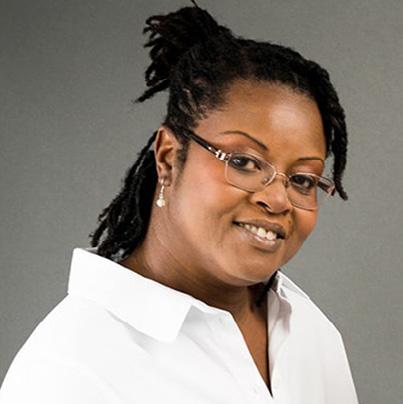
Gladys P. Miles is an attorney within the National Oceanic and Atmospheric Administration (NOAA), Office of General Counsel, Fisheries and Protected Resources Section. She provides legal counsel to the National Marine Fisheries Service. This article expresses the personal views of Ms. Miles and does not reflect the official views of NOAA or the U.S. Department of Commerce.
35 Id.; New York v. Trump, No. 25-1236 (1st Cir. Mar. 26, 2025); Woonasquatucket River Watershed Council v. USDA, No. 1:25-cv-00097-MSM-PAS (D. R.I. Apr. 15. 2025); National Council of Nonprofits v. OMB, Civ. Action No. 25-239 (D.D.C. Feb. 3, 2025).
36 Supra note 35.
37 EO 14260 of April 8, 2025, Protecting American Energy from State Overreach, 90 Fed. Reg. 15513 (Apr. 14, 2025).
38 MEA Director Responds to President Trump’s Attempt to Undercut State Leadership on Climate Change, Apr. 11, 2025
39 New York v. Trump, 1:25-cv-11221, Doc. 1 (Compl.) (D. Mass May 5, 2025).
40 See supra note 38; see also Kyle Orens, Critics Of Offshore Wind Believe The Pendulum Is Swinging In Their Direction, WBOC, Apr. 23, 2025.
41 Aton and Clark, Trump declares war on state climate laws, E&E News ClimateWire, Apr. 9, 2025.

Meet your newest member benefit! Meet your newest member benefit!

The Maryland State Bar Association is proud to offer complimentary access to Decisis, a superior research platform, as an exclusive member benefit (valued at $1740).



Search Designed for Efficiency & Accuracy
Decisis gives MSBA members access to:
Expanded nationwide database the most effective and reliable search relevance with InterCite (the Decisis Citator) a clean, easy-to-navigate user interface
LEARN MORE AT LEARN MORE AT

Just Keep Swimming: Navigating Transition During Uncertain Times
BY COURTNEY SCHAEFER, ESQ.


As a D.C.-based legal recruiter, I am speaking with many government attorneys about their options. Many are considering the private sector for the first time. Having practiced in government and private practice before becoming a recruiter, I can relate. A few suggestions for lawyers considering this transition:
Marshal Your Resources.
Be intentional about letting people know that you are looking! You want to be top of mind for as many people as possible when they hear about new opportunities.
Arrange conversations with people who might have helpful information about the market and job transitions. Every interaction does not have to be about a specific job to be useful.
Engage with alumni organizations and bar associations. They are a great resource for advice and connections.
Connect with current and former mentors.
Attend conferences in your specialty.
Consider engaging a recruiter or career coach. Not only for specific positions, but they can also provide useful feedback on your resume and cover letters, insight into market conditions, and guidance on additional options to consider based on your strengths and priorities.
Identify A Concrete Ask.
Be prepared to make specific requests of people in response to offers of assistance. A few suggestions:
Get Feedback on your resume or cover letter.
Conduct a mock interview to knock the rust off and provide feedback on your performance.
Introduce you to someone specific in their network.
Attend a particular event as their guest.
Identify thought leaders in the industry to follow.
Suggest organizations worth joining.
People are more likely to refer someone for a job when they’ve met them in person.



LinkedIn is a Powerful Tool.
Engage with it. Start slow if you need to.
Update your picture (you’re a human, not a bot!).
Add meaningful descriptions of your work history. Recruiters are scouring profiles to see if your experience aligns with their needs. Provide more than just your title and employer.
Connect with colleagues and former classmates. Follow groups and organizations that relate to your background and experience.
Like and comment on posts - seeing notifications of your activity reminds people in your circle that you exist. When you network with new people, connect with them on LinkedIn, which leads me to my next point:
Network in Person!
Other people are doing this, and you should be too.
People are more likely to refer someone for a job when they’ve met them in person.
Bring a buddy; networking is less intimidating with a friend.
Use the QR code function on LinkedIn to share your profile at the event and reach out to people later to follow up with them. Don’t hand out your resume, but do . . .
Keep Your Resume Fresh.
Your resume is a living document and should play to your audience.
Space is at a premium—use it wisely and strategically. Left-adjust bullets to maximize available space on each page.
Delete things like a four-week fellowship 20 years ago, undergraduate clubs, familiarity with the Microsoft suite, etc. The space is better utilized by providing substantive information about your more recent positions.
Do not be afraid to let certain experiences fall off your resume over time. Over time, it becomes increasingly less appropriate for a resume to include every position you have held.
Sparing use of government-specific jargon that may not be accessible to the reader.
AI is a tool, not a crutch. Maintain control and meaningful authorship of the document. Same with cover letters.
Consider creating a Representative Matters addendum. The absence of Objectives/Summary sections is rarely noticed, but poorly executed and forced ones are.
Controversial opinion: list your graduation years. You will be asked, and we can approximate it anyway. Spare everyone the mental gymnastics and provide a clear timeline of your experience.

Think about using different working versions of your resume that are tailored to specific audiences/positions.
Address the Elephant in the Room.
If most or all of your career has been in the public sector, be prepared to discuss your plan for navigating the transition to private industry, and to acknowledge that you are going to need to bring more than just subject matter knowledge to the table.
Do Your Homework.
Attempt to understand the new market you are considering and avoid potentially costly pitfalls or embarrassing missteps.

The next chapter in your career may end up looking rather different from what you are envisioning right now.
Familiarize yourself with market salaries. Know what similarly positioned attorneys in comparable roles are demanding. Do not simply negotiate your salary based on your current or most recent salary.
Learn the lingo. Does the firm have shareholders, members, or partners? How are relevant divisions titled? Are there particular acronyms that someone qualified for the position would be familiar with?
Be Flexible and Patient.
Being a government lawyer is unlike working anywhere else. Rigid expectations for your next position do you a great disservice.
Competition in the DC market is stiff, and the future is uncertain. The government provides many distinct benefits. Hours, flexibility, pensions…private practice is different from what you may be accustomed to. Mentally prepare yourself for something different (which isn’t always bad!).
Regardless of experience, law firms are hesitant to bring in senior attorneys (from government or anywhere else, really) without a book of business, a solid business development plan, a record of success in private practice, and/or a top leadership
position (especially if they don’t already know you, see above re: networking).
There have never been enough in-house jobs for every lawyer who wants one, and departing government lawyers will increase the already stiff competition for those jobs. Cast a wide net; the supply of attorneys has increased significantly while demand has not changed considerably.
JD-preferred and attorney-adjacent roles may be a great option depending on your substantive experience. Don’t discount those positions immediately.
Be prepared to approach a potential employer more than once. Sometimes it just comes down to timing. Things are constantly in flux, and needs, resources, and priorities are constantly shifting.
The next chapter in your career may end up looking rather different from what you are envisioning right now. Consider opportunities even if they do not align perfectly with your criteria matrix. The legal market is in a period of significant transition that most people are exceedingly sensitive to and eager to help in any way they realistically can. The smart move is to be open to offers of help, advice, and connection—it is impossible to predict where the next good opportunity may come from. Good luck, everyone, I’m rooting for you.
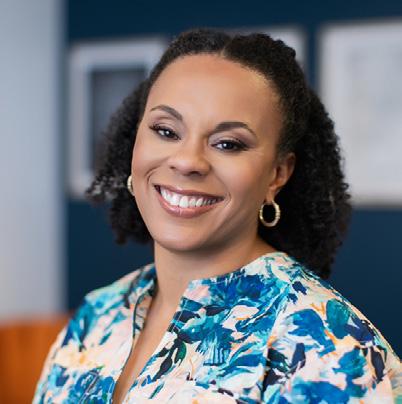
Courtney Schaefer is a D.C.-based Senior Consultant with Beacon Hill Legal. She is a Penn Law and Duke University graduate who draws on her almost two decades of experience as a litigator in government and private practice to connect highly qualified attorneys in all practice areas with corporations and large, mid-sized and boutique law firms throughout the Mid-Atlantic and Southeast.


NAVIGATING CHANGE Maryland Attorneys on Adapting to a Shifting Legal Landscape
BY CHRISTINE SORGE, LILLIAN HUMMEL, JEREMY SCHOLTES, REBECCA SCHISLER-ADAMS, AND RYAN P. SMITH
The legal profession, while rooted in tradition and adherence to precedent, is nevertheless subject to the winds of change. From technological advancements to evolving client expectations and global events, Maryland attorneys are constantly adapting to shifting legal landscapes. MSBA recently interviewed five Maryland attorneys who offered insights into their strategies for navigating the ever-changing legal environment.
Meet the Attorneys
CHRISTINE SORGE, Managing Shareholder at Selzer Gurvitch Rabin Wertheimer & Polott, PC, specializes in Estate Planning and Trust & Estate Administration. With over 25 years of experience, she focuses on structuring sophisticated estate plans that ensure an orderly transfer of assets, minimize taxes, and protect family wealth from potential creditors.
LILLIAN HUMMEL, Principal at Elville & Associates, focuses her practice on elder law, estate planning, estate and trust administration, and special needs planning. Hummel advises individuals and families on Medicaid eligibility and other programs for seniors and individuals with disabilities, long-term care navigation, and the establishment and administration of special needs trusts. She also represents clients in guardianship matters.
JEREMY SCHOLTES, Principal at Miles & Stockbridge, serves as outside general counsel for numerous companies, primarily within the construction, IT, and manufacturing sectors, many of which are also government contractors. His extensive expertise in government contracting includes assisting federal and state contractors with a variety of transactional and dispute matters.
REBECCA SCHISLER-ADAMS, a litigation attorney at McKenna Russo Livingston Burkett Burgy, focuses on a broad range of complex civil litigation. Her practice areas include real estate, business and corporate disputes, insurance defense, and estate and trust matters. Additionally, she maintains a robust guardianship practice, advocating for alleged disabled individuals in Maryland, often serving as a court-appointed attorney while also representing petitioners.
RYAN P. SMITH, Ryan P. Smith is the founding member of Ryan P. Smith Law, PLC. In his practice, he offer solutions to broker-dealers, registered investment advisers, and their associates to help them meet their regulatory obligations. This includes advising them on matters related to the Securities Exchange Act of 1934, the Investment Advisers Act of 1940 and SEC and FINRA rules; counseling them during regulatory inquiries and arbitration proceedings; and serving as Chief Compliance Officer.
Changes in Practice
For some, 2025 has brought significant transformations, driven by both personal career decisions and external forces like shifts in law and technology.
Schisler-Adams embarked on a new phase of her career by joining five colleagues to start a new firm in March 2025, McKenna Russo, with a goal "to serve clients in ways that are tailored to individual needs.” Their practice focuses on civil litigation, trusts and estates, business law, real estate, and guardianships. Schisler-Adams acknowledged that clients often come to them during the most stressful times of their lives, and shared, “[t]o ease that stress, we embrace technology to offer multiple methods of client communication, and we effectively utilize a team approach with our support staff so that if an attorney isn't available, someone is always present to address any client concerns.”
In 2025, I've integrated AI into my practice to assist with initial drafting and research.




































Hummel’s practice evolved when she embraced AI: "In 2025, I've integrated AI into my practice to assist with initial drafting and research. I'm using AI to generate drafts of both basic messages and challenging written content; it's much faster to edit written work than to start with a blank sheet of paper. For example, when I need to produce a type of work product that I haven't done before, with sufficient instruction, the majority of the time, AI can provide a solid first draft that I refine and flesh out. Additionally, I use AI for background research and citation gathering, saving time on primary source searches (with the caveat: always confirm what AI spits out!). In short, AI has been invaluable in reducing my mental load on drafting and research tasks."
For Sorge, changes in the law prompted a change in practice. He shared, "Our estate planning practice has evolved significantly in 2025. The anticipated 2026 tax law changes have spurred remarkable client interest this year, with many seeking to lock in current favorable exemptions. The new federal estate tax threshold adjustments have prompted more comprehensive wealth transfer strategies. We've incorporated digital asset planning as a standard component in all estate plans.”
Sorge noted that they also shifted back to in-person consultations, with clients requesting face-to-face meetings more frequently than in previous years. Consequently, their attorneys spend more time in the office, accommodating this preference for traditional engagement.
Changes in Client Service
Adaptability is key to client satisfaction. Smith emphasized, "I learned (and continued to learn) the business of law. And quickly."
Hummel highlighted the need for tailored communication, stating, "In an age of information overload and client 'self-help' through online searches, it's essential to meet each client where they are. I've adapted my approach to communication, specifically tailoring it to what works best for each client, rather than adhering to a rigid structure for estate planning, Medicaid applications, or disability consultations. My firm now offers content across various educational mediums, traditional seminars, social media, short videos, consultations, and more."
Schisler-Adams focuses on proactive communication, providing "regular weekly or bi-weekly updates" to anticipate questions, noting that "In a fast-moving world with a slow-moving legal system, clients often want answers and results quicker than we can make them happen. By providing clients with regular weekly or bi-weekly updates, we can anticipate questions from clients before they arise. Often, the update is simply, 'there is no update,' but everyone benefits when the strategy is clear and there's no question about whether a client's case is a priority." Her firm also embraces technology for diverse communication methods and utilizes a team approach with support staff to ensure client concerns are always addressed.



















































Guidance for Legal Professionals





When asked what advice they would give others in their field, Smith offered, "Stay intellectually curious. (Even Neil Peart of Rush took drumming lessons well into his career.)"

Scholtes advised, "Set short, mid, and long-term goals, identify the actions to implement in support of the goals, and routinely assess the effectiveness of those actions to adjust for changing conditions or missed goals. Enduring client relationships require competent legal counsel, consistent communication, and expectation management. Focus on the long game for business development by cultivating meaningful referral relationships. Build a resilient team of ethical, trustworthy, curious, and diligent professionals. Attend to the health of your own well-being, your family, and your team. Listen more and talk less."
Hummel echoed this strategic thinking, advising, "My advice is to filter the advice and updates you receive through the lens of your professional goals. Not every technological advancement will suit your practice. Change requires significant time, energy, and resources, so approach it strategically. Develop a project plan, and find a balance between adapting when necessary and avoiding knee-jerk reactions to every piece of new information about practice management. Staying focused on your long-term vision will help you navigate the ever-evolving landscape of legal practice."
Schisler-Adams offered a foundational piece of advice: "Never forget to be kind and approach all encounters with empathy— this is true when engaging with clients and opposing counsel alike. For many clients, working with attorneys is uncharted territory. I try to start new client consults by acknowledging that I know the potential new client is not calling us because they want to be, and that I hope my services can ease some inevitable anxiety. Making the client feel heard can go a long way."
Evolving Client Profiles
The nature of client relationships is also shifting. Sorge observed that while they maintain their "core clientele of established professionals and retirees," they've seen "growth among millennials seeking early planning." She added, "Business owners, real estate investors, and entrepreneurs represent an increasing segment, particularly those concerned with succession planning amid economic shifts. Blended families with complex inheritance considerations have become more common. Perhaps most gratifying is having the honor to work with several generations of families—grandparents, parents, and adult children—allowing us to develop comprehensive strategies that reflect each family's evolving dynamics and values across time."

















My advice is to filter the advice and updates you receive through the lens of your professional goals.
Not every technological advancement will suit your practice.

























































Smith stays relevant by being able to translate dense regulatory requirements into clear action items."
Sorge shared that their firm "prioritizes [s] responsiveness to client needs and maintains [s] a full team available to assist on all types of legal issues. Our strength lies in making meaning of complex legal concepts, translating technical jargon into practical implications for our clients' lives. We present regularly to colleagues and community groups, which requires thorough preparation and deepens our understanding of complex topics. We've also cultivated relationships with financial advisors, accountants, and insurance specialists who offer complementary expertise, broadening our understanding of the multidisciplinary aspects of estate planning."
Navigating New Trends and Challenges
The legal field is constantly facing new trends and challenges. Scholtes highlighted that "the new Administration's flurry of Executive Orders and adjustments to agency priorities have resulted in a significant increase in government contract stop work orders and terminations for convenience. The downstream impacts include: loss of revenue and budget adjustments; termination of employees, leases, and subcontracts; negotiation of settlement proposals; analysis of covenants under lender documents; and myriad other considerations."
Smith's challenge is "helping my clients navigate an aggressive and evolving regulatory agenda."
For Sorge, "Digital assets continue to pose unique challenges for preservation and transfer. The multigenerational household resurgence has required more sophisticated family trust structures. The uncertainty regarding estate tax laws, particularly the potential 2026 sunset of current exemption levels, has created planning urgency among clients."
Strategies for Staying Relevant
Staying relevant in a constantly evolving profession requires proactive engagement and continuous learning.
Scholtes emphasized that it is "imperative to stay current regarding rapidly changing statutes, regulations, and case law," dedicating time on a daily basis to review summaries of changes in government contracts, read secondary sources, and drill down on the most relevant primary authorities for my practice. I also set monthly goals to speak on panels or present updates, author or contribute to commentary on changes, circulate at conferences and trade shows, and engage with clients outside of billable projects. Non-billable investment is essential for continuous client development and maintenance, as well as cultivation of referral sources."
Continuous Learning and Professional Development
Hummel stays current through a "combination of traditional and modern approaches. I attend CLEs and conferences to track emerging trends and best practices. Online communities—particularly lawyer groups on platforms like Facebook— offer real-time insights into new technologies, evolving client needs, and developments in law practice management. These informal exchanges often highlight issues that aren't yet on the radar of formal programming. I also make it a point to connect regularly with colleagues and peers, asking what's new in their practices. These conversations help me stay informed and responsive in an ever-changing legal landscape."
Ryan Smith consumes "as much content as I can from the regulators in my space - the SEC and FINRA."
Sorge noted that their attorneys "subscribe to specialized legal publications and participate in advanced continuing education programs beyond minimum requirements. We hold regular firm meetings with dedicated time for discussing recent case law and legislative developments. Beyond consuming information, we actively contribute by presenting to colleagues and community groups. This teaching role requires deeper engagement with emerging topics and helps solidify our understanding. Our network of allied professionals in finance, tax, and insurance provides valuable cross-disciplinary insights that inform our evolving practice approach."
Looking Ahead
Change is constant, and proactive engagement is essential for continued success. By embracing technology, prioritizing client communication, staying informed, focusing on fundamentals, and cultivating adaptability, attorneys can thrive in an ever-evolving environment.
MSBA Resources
for Attorneys Experiencing Career Transitions
MSBA is dedicated to supporting attorneys throughout the state in all stages of their careers. To assist lawyers navigating professional crossroads, either due to job loss or the exploration of new career paths, the MSBA offers a comprehensive suite of resources, including emotional support, networking opportunities, and career development tools.
Guidance for Transitioning From Federal Work to Private Practice
Transitioning from a federal role to private practice involves adapting to new demands, such as client development, business management, and mastering Maryland court procedures. MSBA offers resources to support attorneys in navigating this shift:
ESSENTIAL PUBLICATIONS
MSBA offers publications that serve as foundational tools for attorneys acquainting themselves with the complexities of private practice, addressing both procedural mechanics and strategic considerations.
Guide to Maryland Courts: This publication provides a critical overview of Maryland's judicial structure, procedural rules, and court information, demystifying the distinctions and
expectations unique to Maryland's state court system for attorneys accustomed to federal or administrative forums.
Maryland Practice Manual: A staple for Maryland attorneys, serving as a cornerstone for new lawyers building real-world know-how and a touchstone for seasoned practitioners, with three volumes covering key practice areas of law.
Pleading Causes of Action in Maryland: This publication guides attorneys through the technical and substantive elements of complaints, defenses, and other pleadings, helping ensure compliance with Maryland's substantive law and procedural standards.
Maryland Rules of Evidence: A pocket guide providing quick and easy access to Maryland's evidence code.
Maryland Attorneys' Rules of Professional Conduct: This resource provides the complete text of Maryland's ethical rules, along with commentary and annotations.
The MSBA offers
a comprehensive suite of resources, including emotional support, networking opportunities, and career development tools.
Maryland Pattern Jury Instructions (Civil and Criminal): These instructions provide court-approved language for effective trial practice.
Civil Pre-Trial Practice: This reference offers in-depth instruction on civil practice, from initial client contact to trial preparation.
Warnken's Maryland Criminal Procedure: A comprehensive treatise for anyone involved in criminal law practice.
Maryland Discovery Problems and Solutions: This resource provides solutions to common discovery disputes.
Maryland Tort Damages: This publication offers guidance on quantifying damages in tort cases.
On-Demand Learning
MSBA offers on-demand CLE courses to help attorneys at every stage of their career enhance their skills and explore new legal areas. These programs provide flexible, accessible training on critical topics, allowing attorneys to learn at their own pace and schedule. Essential on-demand learning topics include:
IOLTA MANAGEMENT FOR LAWYERS
Mismanagement of IOLTA funds can lead to severe consequences, making this training essential for any attorney handling client funds. This program explains the specifics of IOLTA management for Maryland lawyers and the importance of knowing the rules around your IOLTA account.
HOW TO AVOID MALPRACTICE CLAIMS
Protecting your practice from malpractice claims is paramount. This program reviews, from previous cases, examples of how to avoid malpractice as a transactional practitioner.
ETHICS & PROFESSIONALISM: SKILLS THAT WILL MAKE YOU A BETTER LAWYER
Ethical conduct is the cornerstone of a successful legal career. This program is designed to emphasize the role that professionalism and civility can play in the successful outcome of any case and the success of any attorney’s career.
LAW OFFICE ECONOMICS, MANAGEMENT & FEES— ESSENTIALS OF MARYLAND PRACTICE
Running a successful law firm requires business acumen. This program covers essential topics such as office efficiency, client relations, and fee structuring, and offers practical tips.
VETTING TECHNOLOGY FOR YOUR LAW FIRM: PRACTICAL TIPS
In today's digital age, technology is essential for efficient and effective legal practice. This course guides you through the process of selecting and vetting legal technology for your practice.
EMAIL MANAGEMENT: HOW TO STOP THE EMAIL CLUTTER BEFORE IT STOPS YOU
Email overload is a common problem for busy attorneys. In this webinar, you will learn how to turn the tables on your email inbox and take back control over your day by using actionable strategies and quick-win tips to help you and your firm better manage emails and stop fighting the inbox struggle.
TECHNOLOGY TO BUILD A LAW FIRM FROM SCRATCH
If you're not sure where to start when it comes to choosing tech for your law firm, this webinar will guide your through tips for choosing tech that's compatible with your law firm's needs, the benefits of technology for law firms, and the essential legal technology solutions to keep your law firm running smoothly—wherever and however you work.
SOLO & SMALL FIRM SYMPOSIUM
This program features comprehensive sessions with expert speakers on critical topics including AI implementation, practice management, succession planning, and cybersecurity.
SUCCESSION PLANNING WORKSHOP
This program offers attorneys insight on how to plan for closing, selling, or merging their practices, and the unexpected death or incapacitation of an attorney in their practice.
Through these comprehensive resources, MSBA aims to provide Maryland attorneys with the support and tools necessary to navigate career transitions, establish successful practices, and thrive in the Maryland legal community.
HOW TO LAUNCH: WHAT IT TAKES TO START YOUR OWN LAW FIRM
Launching your own law firm may feel daunting, but this program provides you with the knowledge you need to start, including the four pillars of running a law practice: business management, technology, finance/ trust accounting, and marketing.
AI—THE ATTORNEY’S SECRET WEAPON
Taught by a successful trial attorney, this informative program discusses how attorneys can benefit from the use of emerging Artificial Intelligence tools. Designed for both technology beginners and experts and attorneys from all fields, it explains existing AI tools that can readily and easily be used by attorneys as part of their practice toolkit.
MSBA Engage
An online community platform that provides a space for connection and collaboration, allowing attorneys to seek advice, share expertise, build relationships, and access valuable resources.
MSBA Member Committees
These committees enable attorneys to contribute to the legal profession, expand their professional network, and deepen their knowledge in specific areas of law by sharing expertise, learning from experienced practitioners, staying informed about relevant legal issues, enhancing their leadership skills, and fostering relationships.
Networking Opportunities
Establishing connections within the Maryland legal community is essential, and MSBA provides numerous opportunities to network with fellow attorneys, judges, and other legal professionals. These events are designed to build relationships, seek mentorship, and stay informed about legal trends.
SOCIAL EVENTS AND RECEPTIONS: Gatherings designed to foster camaraderie and build personal connections within the legal community.
CLE PROGRAMS AND SEMINARS: While focused on continuing legal education, these events also offer chances to meet and interact with other attorneys in your field.
LOCAL BAR EVENTS: Connecting with attorneys in your specific geographic region can be beneficial for building a local practice.
Actively participating in MSBA networking opportunities can help build a strong professional network in Maryland, which can be instrumental in finding referrals, co-counsel opportunities, and feeling more connected to the local legal community.
Staying Ahead of the Curve
MSBA emphasizes the importance of adapting to evolving legal technologies, particularly artificial intelligence (AI). MSBA's AI resources help attorneys stay informed on AI developments relevant to the legal profession in Maryland and understand the ethical considerations, potential benefits, and risks of using AI in their practice. It also aids them in preparing for the future of the legal field by equipping them with the knowledge to adapt to the evolving technological landscape.
Emotional Support for Attorneys
Navigating career uncertainty is a journey that requires resilience, self-awareness, and proactive effort. By integrating self-care with focused professional development and utilizing available support systems, you can move towards a more sustainable and fulfilling career path while honoring the emotional weight of this experience. Remember to celebrate small victories along the way and remain open to new possibilities.
The MSBA Lawyer Assistance Program (LAP) provides free, confidential assistance to all Maryland lawyers, judges, law school students, and support staff by offering assessment, referral, short-term counseling, and continued support for personal concerns. If you are concerned about another lawyer, you can make an anonymous referral to LAP by contacting Lisa Caplan at her direct line, 443-703-3042, or at lisa@msba.org. For confidential assistance, call 888.388.5459.
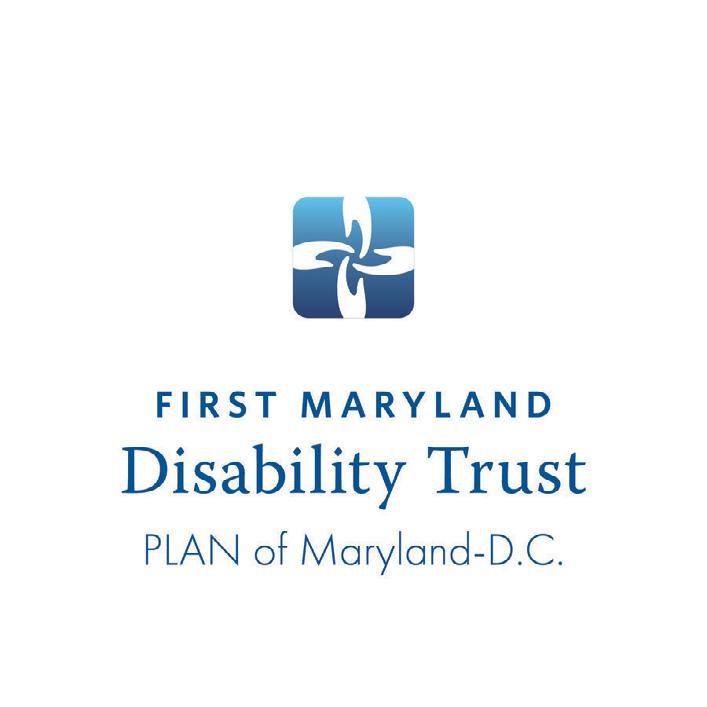
Protecting Your Practice
Securing professional liability insurance is crucial for attorneys transitioning to private practice. MSBA offers support through the Bar Associations Insurance Agency, Inc. (BAIA), a joint venture involving MSBA, the Bar Association of Baltimore City, and the Bar Association of Montgomery County. BAIA collaborates with TriBridge Partners to provide members access to a range of insurance products, including professional liability coverage, to protect firms and employees, and often includes risk management resources.
Through these comprehensive resources, MSBA aims to provide Maryland attorneys with the support and tools necessary to navigate career transitions, establish successful practices, and thrive in the Maryland legal community.



Remembering Those Who Have Passed
MSBA commemorates members who passed away during the last Bar Year.

Francis Alamia
Raymond F. Altman
Kenneth Aneckstein
Thomas Ashwell
D. Sean Baer
Herb Belgrad
Barry J. Beran
Anthony Birch
Robert Wayne Bateman Jr.
Michael J. Cefalo
Charles Marshall Davison III
Thomas Leo Doran
Hon. Robert F. Fischer
Barry Howard Friedman
Herbert S. Garten
Edward J. Gilliss
Eric John Helfrich
Jakub Jan Jablonski
Hon. Glenn L. Klavans
William E. Liebig
Daniel Francis Lynch
Richard William Maybach
Hon. John McAuliffe
Thomas McCarthy
Timothy F. McCormack
Paul J. McGarvey
Thomas J. McKeever Jr.
Lt. Col. J. Bruce Medaris Jr.
John C. Monahan
Brian John Moyer
Robert K. Nead
Doyle L. Niemann
Dean Park
Olivia Harrison Phillips
Lawrence F. Regan
Joseph Ruddy
Hon. R. Russell Sadler
James Sherbin
K. Jenny Silva
Eric Roddy Smith
Hon. Andrew Sonner
Hon. Michael John Stamm
John R. Tjaden
David H. Topol
Basil Wadkovsky
David Whitworth
Kenneth M. Williams

HERBERT J. BELGRAD
A Legacy of Legal Leadership and Public Service
MSBA mourns the death of Herbert J. Belgrad, who passed away on April 6, 2025, at the age of 90. A former MSBA president and distinguished attorney, Belgrad will be remembered for his commitment to the legal profession, contributions to the state of Maryland, and remarkable ability to unite people.
Belgrad's influence within MSBA and other bar associations is a cornerstone of his legacy. In addition to his tenure as MSBA President (1985-86), he served as President of the Junior Bar Association of Baltimore City (1969-70), President of the Bar Association of Baltimore City (1981-82), and President of the Maryland Bar Foundation (1989-91). His commitment to strengthening the legal profession extended to the national level, where he served as a member of the ABA House of Delegates.
Throughout his career, Belgrad was known for his even-handedness, ability to foster trust, and commitment to finding a solution that served the best interests of the entire state. A former colleague recalled how, during his time as MSBA President, Belgrad skillfully navigated a contentious issue that threatened to divide the state's legal community: the proposal to create a Southern Division of the U.S. District Court of Maryland. This dispute had created significant polarization between the Baltimore Bar and the Washington suburban bars, and raised the possibility of the division of the MSBA.
Recognizing the gravity of the situation, he took decisive action, establishing a "Juried Commission" to study the issue and make a recommendation. This commission, composed of nine members representing diverse geographic areas and practice backgrounds within Maryland, was a testament to Belgrad's inclusive approach. The commission's recommendation in favor of creating the Southern Division, though initially met with objections from some quarters, ultimately prevailed.
While his contributions to bar associations are a significant part of his story, Belgrad was also a highly respected attorney. He began his career in 1964 as an Assistant City Solicitor. In 1968, he became a partner at Tydings and Rosenberg, where he remained until his retirement in 2020. Belgrad specialized in labor law, municipal law, and family law.

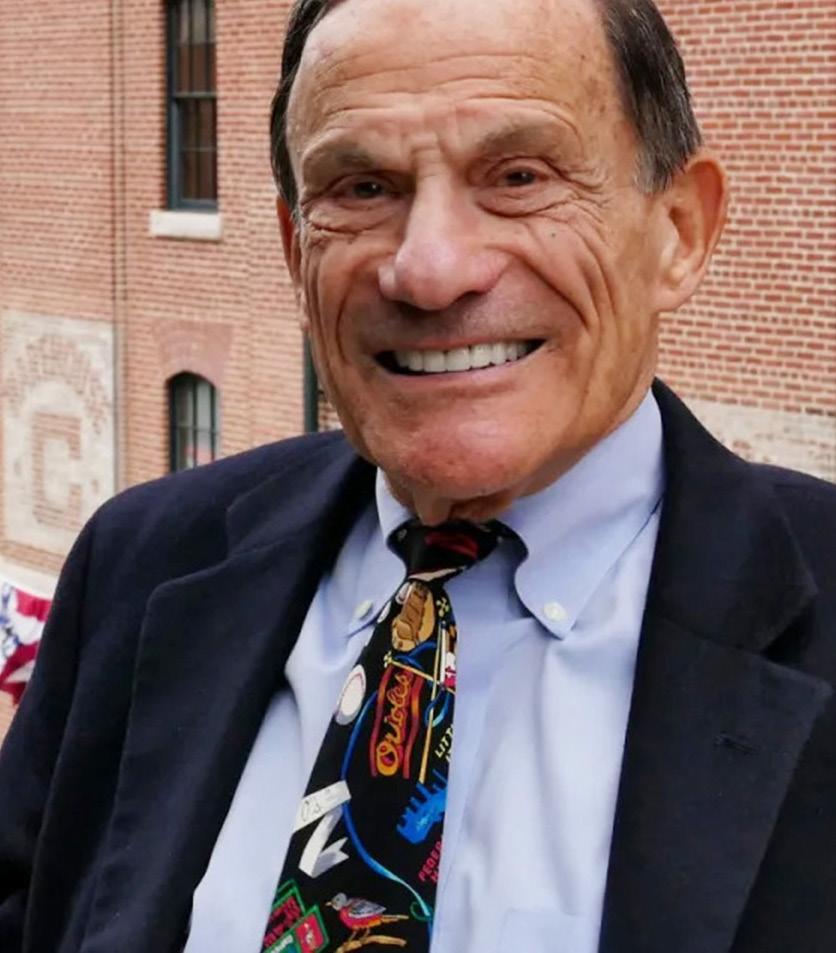
Belgrad's influence, however, extended beyond the courtroom and bar associations. He is also widely celebrated for his role as the first chairman of the Maryland Stadium Authority. Appointed in 1986, he served in this capacity for nine years, during which he oversaw the development of Oriole Park at Camden Yards. This project was transformative for the city of Baltimore and the state of Maryland. Oriole Park at Camden Yards was not merely a new baseball stadium; it was a symbol of urban renewal and a testament to Belgrad's leadership and vision. His ability to navigate complex negotiations, forge partnerships, and maintain a steady focus on the project's goals was crucial to its success. His role in ensuring the preservation of the B&O Warehouse, a key architectural element of the park, further demonstrates his understanding of the importance of history and context in urban development. Belgrad's contributions to the Maryland Stadium Authority also included efforts to bring an NFL team back to Baltimore, which ultimately proved successful with the arrival of the Ravens.
Beyond his professional achievements, Herbert J. Belgrad was deeply committed to his community. He dedicated his time and energy to numerous non-profit organizations, including Associated Jewish Charities, the Board of Jewish Education, Sinai Hospital, and the Greater Baltimore Medical Center. He also served on the Maryland State Ethics Commission and the Board of the Maryland Legal Services Corporation.
Those who knew and worked with Herbert J. Belgrad consistently speak of his calm demeanor, fairness, and ability to build consensus. He was a respected colleague, a trusted advisor, and a mentor to many. He approached negotiation with a focus on achieving fair outcomes for all parties involved and believed in the value of personal relationships and collegiality within the legal profession.
Belgrad was a devoted family man as well. He is survived by his wife of 65 years, Joanne Lott Belgrad, their three children, Steve Belgrad, Susie Hayes, and Leslie Finton, and eight grandchildren. Herbert J. Belgrad's life serves as an inspiration to attorneys, public servants, and all who aspire to make a positive difference in their communities. His legacy will endure through the institutions he strengthened, the projects he led, and the countless lives he touched.
Maryland State Bar Association, Inc. Committee on Ethics

MSBA ETHICS OPINION 2025-01 PROVIDING LEGAL SERVICES THROUGH ACCOUNTING FIRMS WITH NON-ATTORNEY OWNERSHIP
On February 27, 2025, the Maryland State Bar Association (MSBA) Ethics Committee (the committee) was requested to draft an opinion identifying the restrictions and requirements under the Maryland Attorneys’ Rules of Professional Conduct (MARPC) applicable to Maryland attorneys employed by accounting firms (such as KPMG, Deloitte, etc.) that also provide legal services in jurisdictions where nonattorney ownership of law firms is not prohibited. The Committee approved the following as our written opinion:
QUESTIONS PRESENTED
1. Can an accounting firm that has an office in a state that allows nonattorney ownership of law firms provide legal services in Maryland?
2. Could the same accounting firm hire a Maryland attorney to work remotely from that jurisdiction and provide legal services in Maryland?
BRIEF CONCLUSION
No. An accounting firm with nonattorney ownership cannot provide legal services in Maryland, even if such services are permitted in other jurisdictions. Nor could the firm hire a Maryland attorney to work remotely (from the jurisdiction where nonattorney ownership of law firms is permitted) to provide legal services in Maryland.
While a Maryland attorney could work for such a firm to provide legal services in other jurisdictions where non-attorney ownership is permitted, if the attorney is licensed to practice in that jurisdiction, the attorney cannot share fees from Maryland legal services with non-attorneys. Any legal services provided in Maryland would need to be structured to comply with Maryland’s prohibition on non-attorney ownership of law firms and fee-sharing.
ANALYSIS/DISCUSSION
The disciplinary authority and choice of law provisions within Maryland Rule 19-308.5 provide guidance on these issues:
Rule 8.5. Disciplinary Authority; Choice of Law
(a) Disciplinary Authority. (1) An attorney admitted by the Court of Appeals to practice in this State is subject to the disciplinary authority of this State, regardless of where the attorney’s conduct occurs. (2) An attorney not admitted to practice in this State is also subject to the disciplinary authority of this State if the attorney: (A) provides or offers to provide any legal services in this State, (B) holds himself or herself out as practicing law in this State, or (C) has an obligation to supervise or control another attorney practicing law in this State whose conduct constitutes a violation of these Rules. (3) An attorney may be subject to the
a matter pending before a tribunal, the rules of the jurisdiction in which the tribunal sits, unless the rules of the tribunal provide otherwise; and (2) for any other conduct, the rules of the jurisdiction in which the attorney’s conduct occurred, or, if the predominant effect of the conduct is in a different jurisdiction, the rules of that jurisdiction shall be applied to the conduct. An attorney shall not be subject to discipline if the attorney’s conduct conforms to the rules of a jurisdiction in which the attorney reasonably believes the predominant effect of the attorney’s conduct will occur.
What Constitutes the Practice of Law in Maryland
In determining whether an accounting firm would be engaging in the practice of law in Maryland, we must consider Maryland’s statutory definition.
Under MD Business Occupations and Professions Code § 10-101(h), “practice
An accounting firm with non-attorney ownership cannot provide legal services in Maryland, even if such services are permitted in other jurisdictions.
disciplinary authority of both this State and another jurisdiction for the same conduct.
(b) Choice of Law. In any exercise of the disciplinary authority of this State, the rule of professional conduct to be applied shall be as follows: (1) for conduct in connection with
law” is defined as “giving legal advice; representing another person before a unit of the State government or of a political subdivision; or performing any other service that the Supreme Court of Maryland defines as practicing law.”
The statute further specifies that the practice of law includes “advising in
the administration of probate of estates of decedents in an orphans’ court of the State; preparing an instrument that affects title to real estate; preparing or helping in the preparation of any form or document that is filed in a court or affects a case that is or may be filed in a court; and giving advice about a case that is or may be filed in a court.” This broad definition encompasses many services that accounting firms might be tempted to offer as adjuncts to their traditional accounting services. 1
or other systematic and continuous presence in Maryland for the practice of law and from holding out to the public or making other representations that he or she is admitted to practice law in this State . As noted in Ethics Docket No. 2019-01 , an attorney not admitted to practice in this State is subject to the disciplinary authority of this State if the attorney provides or offers to provide any legal services in this State or holds himself or herself out as practicing law in this State. 2
the MARPC because the other state’s ethics rules would take precedence for services provided in that jurisdiction.
Question 2: Could the same accounting firm hire a Maryland attorney to work remotely from that jurisdiction and provide legal services in Maryland?
As recognized in Ethics Docket No. 2019-01, an attorney admitted in another United States jurisdiction, and not disbarred or suspended from practice in any jurisdiction, may
Maryland prohibits non-attorney ownership of law firms and the sharing of legal fees with non-attorneys.
1
Taking the questions in order:
Question 1: Can an accounting firm that has an office in a state that allows non-attorney ownership of law firms provide legal services in Maryland?
The answer depends on the nature and scope of the services being offered. Maryland prohibits non-attorney ownership of law firms and the sharing of legal fees with non-attorneys. Therefore, an accounting firm with non-attorney ownership would not be permitted to directly provide legal services in Maryland, particularly where “the predominant effect of the attorney’s conduct will occur in Maryland” (Rule 19-308.5(b)(2)).
Except as otherwise permitted by the MARPC or law, an attorney who is not admitted to practice in Maryland is prohibited from establishing an office
However, the mere fact that an accounting firm provides accounting services in Maryland, while also having offices in other jurisdictions that provide legal services where non-attorney ownership is permitted, would not necessarily subject them to Maryland Rules of Professional Conduct for those out-of-state legal services. This is because the predominant impact of those services would be in jurisdictions that allow non-attorney ownership.
If the Maryland attorney is either admitted to practice in the other state, associates with attorneys who are licensed in the other state, or expects to be admitted pro hac vice in the other state in conjunction with the representation, then those legal services being offered outside of Maryland would not be prohibited by
provide legal services on a temporary basis in Maryland in certain limited circumstances . However, this principle does not extend to allowing attorneys to circumvent Maryland’s prohibition on non-attorney ownership by establishing permanent remote work arrangements specifically designed to evade Maryland’s ethical requirements.
An attorney working for the accounting firm cannot provide legal services in Maryland through the accounting firm, as they would not be allowed to share any fees resulting from those Maryland legal services with nonattorneys. Therefore, such services would likely need to be offered outside the employment relationship with the accounting firm to avoid any inappropriate fee sharing.
Additionally, Maryland attorneys should be aware of their reporting obligations regarding the unauthorized
rules apply. (See ABA Formal Opinion 495) Rather, whether the MARPC is applicable to an attorneys conduct with conflicting ethical rules will depend upon the factors set forth in MD Rule 19-305.5.)
practice of law. As clarified in Ethics Docket No. 2019-01, an attorney who knows that another attorney has committed a violation of the MARPC that raises a substantial question as to that attorney’s honesty, trustworthiness or fitness as an attorney in other respects, shall inform the appropriate professional authority . This would include reporting instances where non-attorney owned firms attempt to provide legal services in Maryland in violation of Maryland’s rules.
Importantly, 19-01 also emphasized that prior to reporting misconduct, Rule 1.6 requires the Maryland attorney to consult with his or her client about the consequences of revealing information learned during representation . If the client consents, then the attorney may disclose the information to the Attorney Grievance Commission. Without consent, the attorney may, but is not required to, report professional misconduct if doing so falls into one of the exceptions under Rule 1.6(b).
CONCLUSION
Maryland attorneys considering arrangements with accounting firms should be careful to ensure that their organizational structure and fee arrangements comply with the MARPC, particularly with respect to fee-sharing prohibitions and conflicts of interest. Additionally, they should be clear with clients about which entity is providing which services and ensure proper informed consent is obtained where necessary. 3
We hope this response is helpful. Thank you for contacting the Committee on Ethics.
Very truly yours,
MSBA COMMITTEE ON ETHICS
Maryland attorneys should be aware of their reporting obligations regarding the unauthorized practice of law.
REFERENCES: RULES CITED:
MRPC 19-308.5, 19-305.5, 19-308.3, 19-301.6
Ethics Dockets cited: Ethics Docket No. 2019-01
Other authority cited: MD CODE ANN., BUS. OCC. & PROF. § 10601(a), § 10-101(h)
(1) MD. RULE 19-305.5(b); MD CODE ANN., BUS. OCC. & PROF. § 10-601(a)
(2) MD. RULE 19-308.5(a)(2)
(3) MD. RULES 19-305.5(c)(1)–(4), (d)(2); see also, Ethics Docket 2016-05
(4) MD. RULE 19-308.3(a)
(5) MD. RULE 19-301.6
(6) MD. RULE 19-301.6(b); Ethics Docket 89-46; Ethics Docket 9246; Ethics Docket 94-26
3
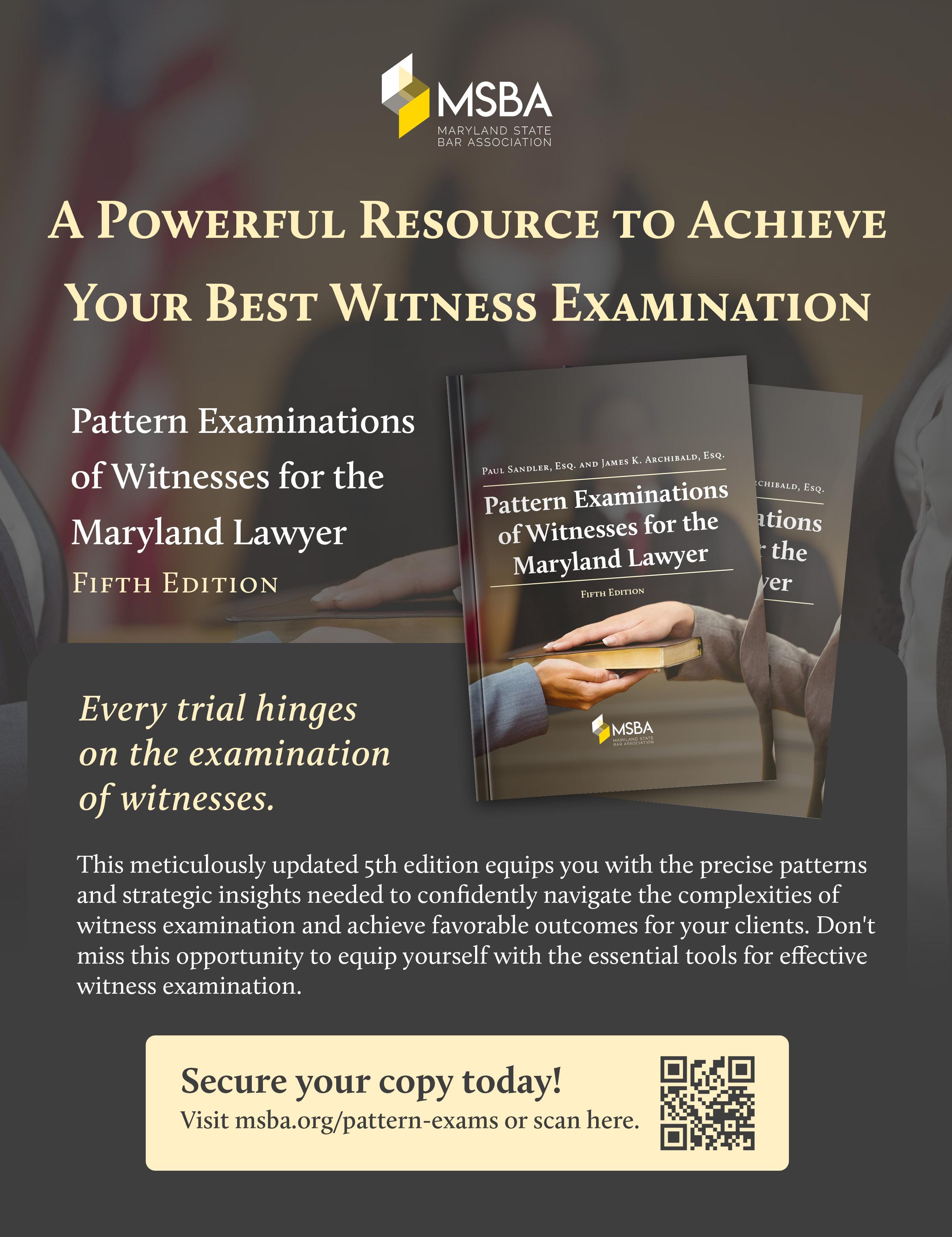
Pamela Langham LEGAL CONTENT ATTORNEY
MSBA LEGAL CONTENT
ATTORNEY Pamela Langham knew from a young age that the law was her calling. A 1991 law school graduate, Pamela skillfully balanced a demanding legal career with 35 years of marriage and the joys of raising three children and a menagerie of pets. Now serving as a Legal Content Attorney at MSBA, Pamela brings a wealth of diverse experiences to her role.
Tell us a little about yourself. Family, friends, and faith are very important to me. I grew up in a small town in Louisiana with educator parents who ingrained in me a deep appreciation for learning. Since about age 12, I wanted to be a lawyer, which instilled in me a strong belief in the U.S. justice system and the constitutional framework that is uniquely American. I currently work for MSBA as a Legal Content Attorney on a part-time basis, while still maintaining a limited legal practice.
What did you do before you joined MSBA?
Before I joined MSBA, I had a varied background with significant experience representing both corporate and governmental entities, and individuals in civil, criminal, and appellate cases. I have over 30 years of legal experience, including over 350 trials. As general counsel for a public higher education institution, I applied my legal experiences to oversee, and manage defense of all claims against the university; serving as a consultant on all employment and student issues, business transactions, and compliance with state and federal law; providing legal analysis and evaluation for the president, cabinet and board of trustees; conducted educational training for the campus and board of trustees on legal issues; was responsible for evaluation
of all board regulations and policies to ensure compliance with state and federal law and drafted new regulations and policies; reviewed and negotiated large scale contracts; and, served as counsel for the university on all collective bargaining committees.
Tell us about your role at MSBA.
Working as a legal content attorney at MSBA is very rewarding. The MSBA leadership allows me to explore a diverse range of legal issues and challenges confronting the legal profession. At their request—and my enthusiastic interest—I’ve focused my research and writing on legal articles
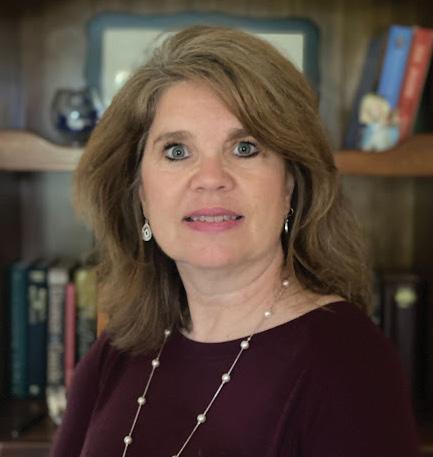
With one foot in the courtroom and one foot in writing legal publications, I can remain current on legal issues, enhancing my ability to write practical legal articles that meaningfully assist other lawyers.
concerning the implementation of generative artificial intelligence into the legal field.
What's your favorite part of your job?
My favorite part of my job is reading new laws, learning about new technologies that impact the legal profession, and writing about them for other lawyers. Being a current and former law firm owner, business advisor, and past general counsel for a public university, I have always kept up with new laws, new technologies, and evolving policies to run an efficient business and to advise and counsel my clients. Now, as a legal content attorney,
I get to do the same thing in service to other lawyers. With one foot in the courtroom and one foot in writing legal publications, I can remain current on legal issues, enhancing my ability to write practical legal articles that meaningfully assist other lawyers.
What do you do to de-stress or unwind?
Exercise, read, garden, watch BBC murder mysteries, and spend time on the water with family and friends watching dolphins.
Strategic Path Forward for FY26
Every year brings a chance for renewal, and here at the MSBA, we are energized to tackle the work ahead on your behalf. As I reflect on our path forward for 2025-2026, I want to share three key areas where we will focus our collective energy. First and foremost is our shared duty to uphold the rule of law and protect judicial independence. This is the core of who we are as lawyers. In today's climate, our principled, non-partisan voice is more important than ever. We will continue to be a pillar of support for our colleagues on the bench and a trusted resource for the public on why an independent judiciary matters.
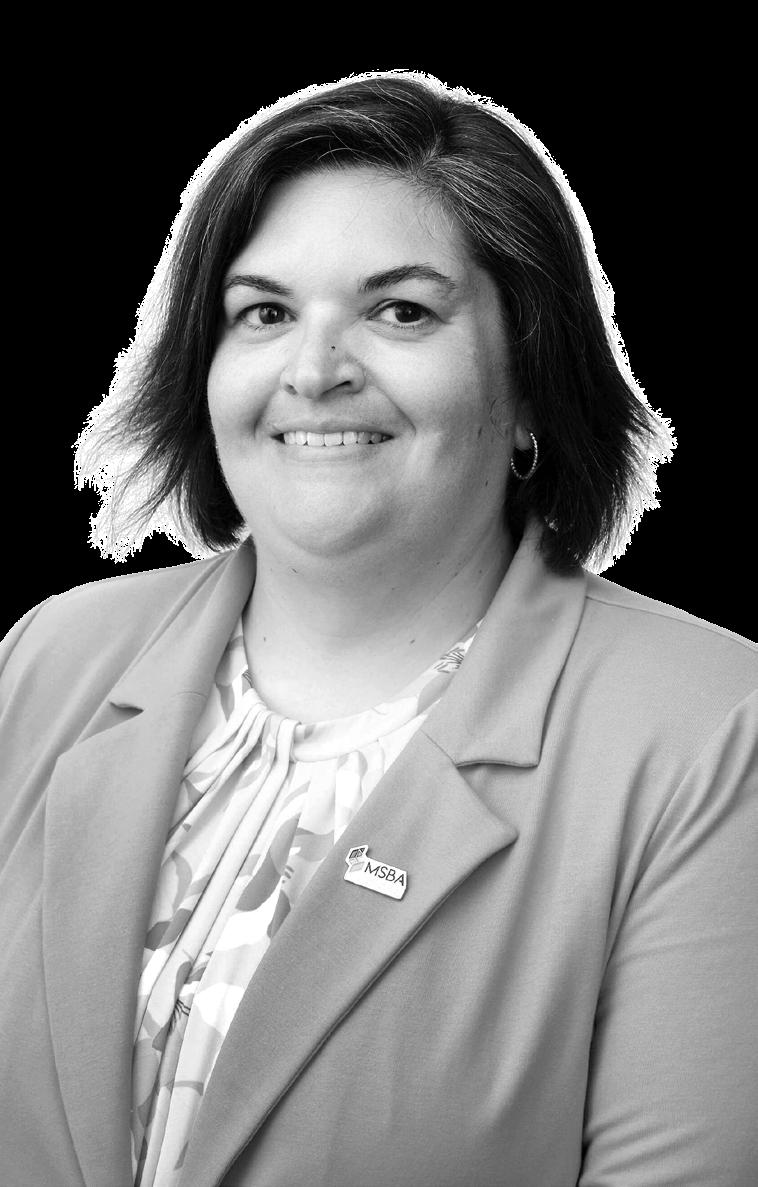
Next, we are looking inward to plan for the future through a new strategic planning process. A great organization never stops asking, "How can we do better?" We want to build an MSBA that not only meets your needs today but anticipates the challenges of tomorrow. This process will be open and inclusive, and I personally invite you to share your vision for our association with us.
Lastly, MSBA will continue its strong advocacy work. We know that practicing law is also a business. That is why we are doubling down on our advocacy to protect your law practice. From Annapolis to Washington D.C., we are watching out for your bottom line. We will continue to be
We want to build an MSBA that not only meets your needs today but anticipates the challenges of tomorrow. This process will be open and inclusive, and I personally invite you to share your vision for our association with us.
your advocate on issues that impact your ability to thrive, ensuring the legal marketplace in Maryland remains strong and fair for its attorneys. In partnership with the Access to Justice Commission (A2JC), MSBA will also continue its advocacy efforts for increased funding for our colleagues working with legal services organizations. These organizations are committed to serving Maryland’s most vulnerable residents, and reduced funding will make this work even more difficult.
This is our commitment to you this year: to defend our shared principles, build a stronger association together, and protect the legal profession in Maryland.
Thank you for your continued membership and trust in the MSBA. I am truly excited to see what we can accomplish together.

Anna Sholl, Executive Director
ABA
First
LawPay/MyCase INSIDE COVER
The McCammon Group BACK COVER
McMillan Metro Faerber PAGE 81

Venable LLP PAGE
